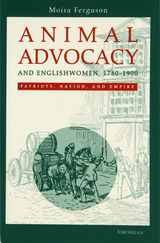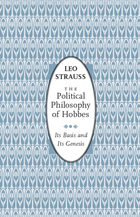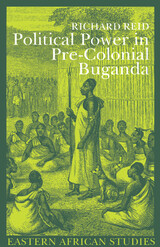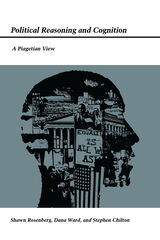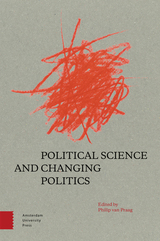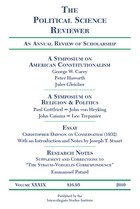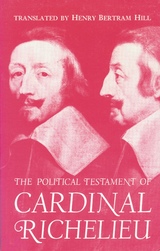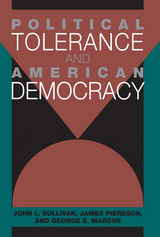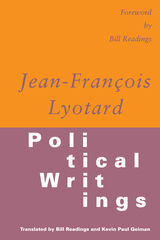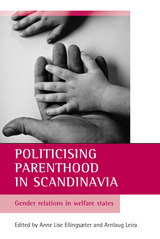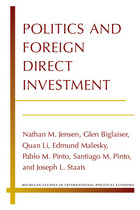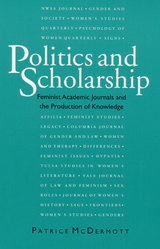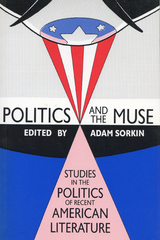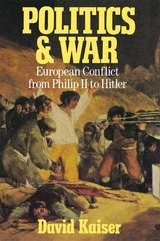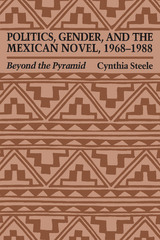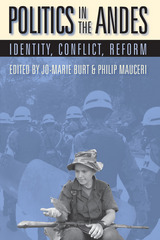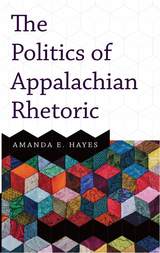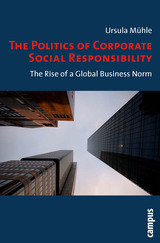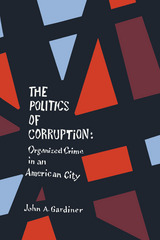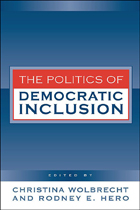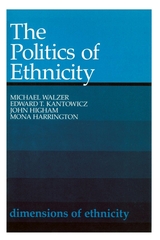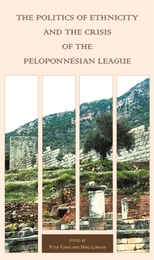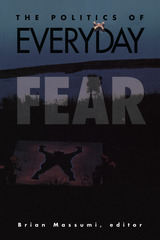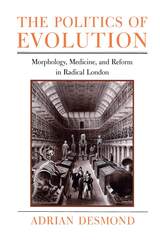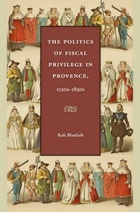Political Philosophy: From Plato to Mao
Martin Cohen
Pluto Press, 2008 Guiding the reader through the key arguments of the classic figures of Western political philosophy, from Plato through to the modern era, this revised edition includes new essays on Aristotle's 'Politics', Confucianism, Islamic social philosophy and Nazism, as well as additional material on 'Roman Law', Anarchism and 'anti-capitalism'.
Cohen moves chronologically through the development of political philosophy. He presents key texts in their own terms, before offering short, precise analyses of their strengths, weaknesses and influence. The book finishes with a discussion of modern liberalism and conservatism.
Providing both a broad overview and precise summaries of key ideas, this is an invaluable guide for all students of political thought.
The Political Philosophy of Hobbes: Its Basis and Its Genesis
Leo Strauss
University of Chicago Press, 1996 In this classic analysis, Leo Strauss pinpoints what is original and innovative in the political philosophy of Thomas Hobbes. He argues that Hobbes's ideas arose not from tradition or science but from his own deep knowledge and experience of human nature. Tracing the development of Hobbes's moral doctrine from his early writings to his major work The Leviathan, Strauss explains contradictions in the body of Hobbes's work and discovers startling connections between Hobbes and the thought of Plato, Thucydides, Aristotle, Descartes, Spinoza, and Hegel.
 The Political Philosophy of Pierre Manent: Political Form and Human Action
Joseph Wood
Catholic University of America Press, 2024 This book presents and evaluates the understanding of political form in the work of Pierre Manent. The study of political form is Manent’s central philosophical task. He is interested in the nature of man, in the action that makes us human, and thus in politics and political action as privileged windows into human nature and what it is to be human. Manent places himself in the classical political tradition, with its foundations in human nature and in a politics that accords with nature. He also situates himself within a triangle of faith, philosophy, and politics, all of which interest him as part of the reality of things even as he avoids an exclusive commitment to any one vertex in his investigation. The book first examines the major influences on Manent; the overarching questions that guide his work on political form, the “theologico-political question” and the question of the “modern difference” with the ancient view of man and politics; and his two intertwined paths of inquiry into political events and political thought.
Manent describes political forms as “the modes of human association that no science has taken as its specific object.” City, empire, Church, national monarchy or nation-state, and modern state are the principal forms that he examines. The book discusses Manent’s thinking on each form in turn together with the tensions that propel the changes or motion in political form that Manent sees as driving and revealing the course of European political development. Using the work of Alasdair MacIntyre, Russell Hittinger, Étienne Gilson, Robert Sokolowski, and Francis Slade, the book evaluates Manent’s insights into the modern state and political condition, which he judges to be exhausted, as well as his call for the preservation of the form of the “nation marked by Christianity.”
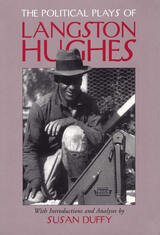 The Political Plays of Langston Hughes
Introductions and Analyses by Susan Duffy
Southern Illinois University Press, 2000 Among the most influential poets of the Harlem Renaissance, Langston Hughes is perhaps best remembered for the innovative use of jazz rhythms in his writing. While his poetry and essays received much public acclaim and scholarly attention, Hughes’ dramas are relatively unknown. Only five of the sixty-three plays Hughes scripted alone or collaboratively have been published (in 1963). Published here, for the first time, are four of Hughes’ most poignant, poetic, and political dramas, Scottsboro Limited, Harvest (also known as Blood on the Fields), Angelo Herndon Jones, and De Organizer. Each play reflects Hughes’ remarkable professionalism as a playwright as well as his desire to dramatize the social history of the African American experience, especially in the context of the labor movements of the 1930s and their attempts to attract African American workers. Hughes himself counted prominent members of these leftist groups among his close friends and patrons; he formed a theater group with Whittaker Chambers, prompting an FBI investigation of Hughes and his writing in the 1930s. These plays, while easily read as idealistic propaganda pieces for the left, are nonetheless reflective of Hughes’ other more influential and studied works. The first scholar to offer a systematic study of Hughes’ plays, Susan Duffy provides an informed introduction as well as a detailed analysis of each of the four plays. Duffy also establishes that De Organizer, a collaboration with noted jazz pianist and composer James P. Johnson (who also wrote its score) was indeed performed by the Labor Stage. By making these forgotten texts available, and by presenting them within a scholarly discussion of 1930s leftist political movements, Duffy seeks to spark a renewed interest in Langston Hughes as an American playwright and political figure.
 Political Policing: The United States and Latin America
Martha K. Huggins
Duke University Press, 1998 Reconstructing eighty years of history, Political Policing examines the nature and consequences of U.S. police training in Brazil and other Latin American countries. With data from a wide range of primary sources, including previously classified U.S. and Brazilian government documents, Martha K. Huggins uncovers how U.S. strategies to gain political control through police assistance—in the name of hemispheric and national security—has spawned torture, murder, and death squads in Latin America. After a historical review of policing in the United States and Europe over the past century, Huggins reveals how the United States, in order to protect and strengthen its position in the world system, has used police assistance to establish intelligence and other social control infrastructures in foreign countries. The U.S.-encouraged centralization of Latin American internal security systems, Huggins claims, has led to the militarization of the police and, in turn, to an increase in state-sanctioned violence. Furthermore, Political Policing shows how a domestic police force—when trained by another government—can lose its power over legitimate crime as it becomes a tool for the international interests of the nation that trains it. Pointing to U.S. responsibility for violations of human rights by foreign security forces, Political Policing will provoke discussion among those interested in international relations, criminal justice, human rights, and the sociology of policing.
 Political Political Theory: Essays on Institutions
Jeremy Waldron
Harvard University Press, 2016 Political institutions are the main subject of political theory—or they ought to be. Making the case with his trademark forcefulness and intellectual aplomb, Jeremy Waldron argues in favor of reorienting the theory of politics toward the institutions and institutional principles of modern democracy and the mechanisms through which democratic ideals are achieved.
Too many political theorists are preoccupied with analyzing the nature and importance of justice, liberty, and equality, at the cost of ignoring the governmental institutions needed to achieve them. By contrast, political scientists have kept institutions in view, but they deploy a meager set of value-conceptions in evaluating them. Reflecting on an array of issues about constitutional structure, Waldron considers the uses and abuses of diverse institutions and traditions, from separation of powers and bicameralism to judicial review of legislation, the principle of loyal opposition, the nature of representation, political accountability, and the rule of law. He refines his well-known argument about the undemocratic character of judicial review, providing a capacious perspective on the proper role of courts in a constitutional democracy, and he offers an illuminating critique of the contrasting political philosophies of Hannah Arendt and Isaiah Berlin.
Even if political theorists remain fixated on expounding the philosophical foundations of democracy, they need to complement their work with a firmer grasp of the structures through which democracy is realized. This is what political political theory means: theory addressing itself to the way political institutions frame political disagreements and orchestrate resolutions to our disputes over social ideals.
Political Power in Pre-Colonial Buganda: Economy, Society, and Warfare in the Nineteenth Century
Richard Reid
Ohio University Press, 2002 Blessed with fertile and well-watered soil, East Africa’s kingdom of Buganda supported a relatively dense population and became a major regional power by the mid-nineteenth century. This complex and fascinating state has also long been in need of a thorough study that cuts through the image of autocracy and military might. Political Power in Pre-Colonial Buganda explores the material basis of Ganda political power, gives us a new understanding of what Ganda power meant in real terms, and relates the story of how the kingdom used the resources at its disposal to meet the challenges that confronted it. Reid further explains how these same challenges ultimately limited Buganda’s dominance of the East African great lakes region.
 The Political Power of the Word: Press and Oratory in Nineteenth-century Latin America
Edited by Ivan Jaksic
University of London Press, 2002 This volume includes seven essays on the development of the press and the significance of political oratory in nineteenth-century Latin America. The authors discuss developments in Mexico, Guatemala, Colombia, Venezuela, Peru, Chile and Agentina, while paying attention to influences and comparisons with the United States and Europe. Four essays concentrate on the periodical press and the wider spectrum of print, and three others on oratory, but all posit and explore a significant overlap between written and oral cultures. The findings and theoretical issues discussed in this volume provide fresh evidence on largely unknown areas of nineteenth-century history and invite further research on a rich new topic of study. Contributors include: Charles A. Hale, University of Iowa; Rebecca Earle, University of Warwick; Carmen McEvoy, University of the South, Sewanee; Carlos Malamud, Universidad Nacional de Educacion a Distancia, Spain; Eduardo Posada-Carbo, University of Warwick; Sol Serrano, Pontifica Universidad Catolica de Chile; Douglass Sullivan Gonzalez, University of Mississippi.
 Political Prairie Fire: The Nonpartisan League, 1915-1922
Robert L. Morlan
University of Minnesota Press, 1955 Political Prairie Fire was first published in 1955. Minnesota Archive Editions uses digital technology to make long-unavailable books once again accessible, and are published unaltered from the original University of Minnesota Press editions. Political Prairie Fire was first published in 1955. The farmers of North Dakota were ripe for revolt when the magnetic figure of A. C. Townley strode into their midst and offered them a new political formula to redress their grievances. Townley's plan was simple but revolutionary; it called for the formation of a Nonpartisan Political League dedicated to the election of candidates through the established two-party system and to a platform emphasizing public ownership of certain vital farm services and facilities, such as terminal grain elevators and hail insurance on crops. Like the great prairie fires of the plains states, the political flames of the Nonpartisan League spread swiftly from one farm to the next across North Dakota and into the adjoining states. The League is regarded by many as the last of the great agrarian protest movements. It is historically significant because it achieved a measure of success well beyond that of most similar movements. It controlled the government of one state for some years, elected state officials and legislators in a number of midwestern and western states, and sent several congressmen to Washington. Its impact helped shape the destinies of a dozen states and the political philosophies of an important segment of the nation's voters. The League's methods of operation often serve today as a guide for political action. This is the first detailed, unbiased history of the Nonpartisan League. Thoroughly documented for the specialist, it is nevertheless equally interesting for the general reader.
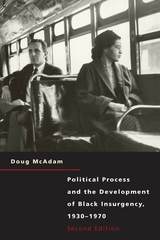 Political Process and the Development of Black Insurgency, 1930-1970
Doug McAdam
University of Chicago Press, 1999 In this classic work of sociology, Doug McAdam presents a political-process model that explains the rise and decline of the black protest movement in the United States. Moving from theoretical concerns to empirical analysis, he focuses on the crucial role of three institutions that foster protest: black churches, black colleges, and Southern chapters of the NAACP. He concludes that political opportunities, a heightened sense of political efficacy, and the development of these three institutions played a central role in shaping the civil rights movement. In his new introduction, McAdam revisits the civil rights struggle in light of recent scholarship on social movement origins and collective action.
"[A] first-rate analytical demonstration that the civil rights movement was the culmination of a long process of building institutions in the black community."—Raymond Wolters, Journal of American History
"A fresh, rich, and dynamic model to explain the rise and decline of the black insurgency movement in the United States."—James W. Lamare, Annals of the American Academy of Political and Social Science
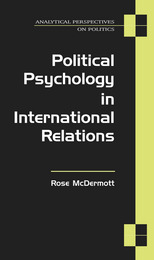 Political Psychology in International Relations
Rose McDermott
University of Michigan Press, 2004 This outstanding book is the first to decisively define the relationship between political psychology and international relations. Written in a style accessible to undergraduates as well as specialists, McDermott's book makes an eloquent case for the importance of psychology to our understanding of global politics.
In the wake of September 11, the American public has been besieged with claims that politics is driven by personality. Saddam Hussein, Osama bin Laden, Kim Chong-Il, Ayatollah Khameinei-America's political rogues' gallery is populated by individuals whose need for recognition supposedly drives their actions on the world stage. How does personality actually drive politics? And how is personality, in turn, formed by political environment? Political Psychology in International Relations provides students and scholars with the analytical tools they need to answer these pressing questions, and to assess their implications for policy in a real and sometimes dangerous world.
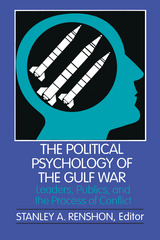 The Political Psychology of the Gulf War: Leaders, Publics, and the Process of Conflict
Stanley Renshon
University of Pittsburgh Press, 1993
In these original essays, widely respected experts analyze the personal psychologies and public belief systems of the individuals and nations involved in the Gulf War - from George Bush and Saddam Hussein to the peoples of the United States, Israel, and Arab countries. Approaching the events of 1990-1991 from the perspectives of psychology, history, mass communications, and political science, these scholars examine the dynamic relationship of events, behavior, and perceptions.
Part I deals with the psychological and political origins of the war; part II focuses on George Bush, Saddam Hussein, and the nature of their leadership and judgement; part III discusses the battle for public perceptions and beliefs waged by both sides; part IV analyzes the results of that battle as revealed by the understanding of the U.S., Israeli, and Arab publics; and part V deals with the war’s consequences. A postscript by Stanley Renshon covers military actions in the Gulf in late 1992 and early 1993.
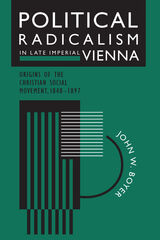 Political Radicalism in Late Imperial Vienna: Origins of the Christian Social Movement, 1848-1897
John W. Boyer
University of Chicago Press, 1995 John Boyer offers a meticulously researched examination of the social and political atmosphere of late imperial Vienna. He traces the demise of Vienna's liberal culture and the burgeoning of a new radicalism, exemplified by the rise of Karl Lueger and the Christian Socialist Party during the latter half of the nineteenth century. This important study paves the way for new readings of fin de siecle Viennese politics and their broader European significance.
"Offers a comprehensive, multicausal study of the rise of Christian Socialism in Vienna, that phenomenon which was experienced nowhere else in urban Central Europe and which culminated in the famous clash between the Austrian establishment and the colourful, domineering lead of the movement, Karl, Lueger."—R.J.W. Evans, History
"Boyer's analysis is masterful in terms of research, exposition, and organization. His use of available economic data is judicious, and his sense of the social structure of late nineteenth-century Vienna is formidable."—William A. Jenks, American Historical Review
"To understand Viennese and even imperial politics in the latter half of the nineteenth century, Boyer's book is absolutely essential.""—Robert Wegs, Review of Politics
Political Reasoning and Cognition: A Piagetian View
Shawn Rosenberg, Dana Ward, and Stephen Chilton
Duke University Press, 1989 This work presents a new, alternative approach to studying the formation of political ideologies and attitudes, addressing a concern in political science that research in this area is at a crossroads. The authors provide an epistemologically grounded critique on the literature of belief systems, explaining why traditional approaches have reached the limits of usefulness. Following the lead of such continental theorists such as Jurgen Habermas and Anthony Giddens, who stress the importance of Jean Piaget to the development of a strong theoretical perspective in political psychology, the authors develop a different epistemology, theory,and research strategy based on Piaget, then apply it in two emperical studies of belief systems, and finally present a third theoretical study of political culture and political development.
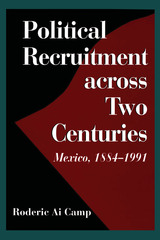 Political Recruitment across Two Centuries: Mexico, 1884-1991
By Roderic Ai Camp
University of Texas Press, 1995 During more than twenty years of field research, Roderic Ai Camp built a monumental database of biographical information on more than 3,000 leading national figures in Mexico. In this major contribution to Mexican political history, he draws on that database to present a definitive account of the paths to power Mexican political leaders pursued during the period 1884 to 1992. Camp’s research clarifies the patterns of political recruitment in Mexico, showing the consequences of choosing one group over another. It calls into question numerous traditional assumptions, including that upward political mobility was a cause of the Mexican Revolution of 1910. Comparing Mexican practices with those in several East Asian countries also allows Camp to question many of the tenets of political recruitment theory. His book will be of interest to students not only of Mexican politics but also of history, comparative politics, political leadership, and Third World development.
 Political Representation in France
Philip E. Converse and Roy Pierce
Harvard University Press, 1986 There can scarcely be a greater tribute to the vitality of the Fifth Republic's democracy than this monumental work. A searching analysis of how the will of the voters is translated into authoritative political decision making, this book not only uncovers political truths about contemporary France but also provides a model for the study of other popular forms of government.
The authors set out to find an answer to the perplexing question of how representative government operates in France in the seemingly unstable context of multiparties. By interviewing voters as well as legislators in 1967 and in 1968 after the great upheaval, and by monitoring policies of the National Assembly from 1967 to 1973, the authors test relationships between public opinion and decision making. They are able to sort out the abiding political cues that orient the French voter, to establish the normal electoral processes, to gauge the nature of mass perceptions of the political options available to voters, and to interpret the strikes, riots, and demonstrations of 1968 as a channel of communication parallel to the electoral process itself.
Lucid in style, methodologically sophisticated, and often comparative in approach, Political Representation in France is a seminal work for political scientists, sociologists, and historians.
 Political Repression in Modern America: FROM 1870 TO 1976
Robert Justin Goldstein
University of Illinois Press, 1978 Robert Justin Goldstein's Political Repression in Modern America provides the only comprehensive narrative account ever published of significant civil liberties violations concerning political dissidents since the rise of the post-Civil War modern American industrial state. A history of the dark side of the "land of the free," Goldstein's book covers both famous and little-known examples of governmental repression, including reactions to the early labor movement, the Haymarket affair, "little red scares" in 1908, 1935, and 1938-41, the repression of opposition to World War I, the 1919 "great red scare," the McCarthy period, and post-World War II abuses of the intelligence agencies.
Enhanced with a new introduction and an updated bibliography, Political Repression in Modern America remains an essential record of the relentless intolerance that suppresses radical dissent in the United States.
Political Science and Changing Politics
Edited by Philip Van Praag
Amsterdam University Press, 2017 Politics is about conflict, struggle, decision-making, power and influence. But not every conflict and not every situation in which power is exercised is widely regarded as politics. A football coach who decides to leave a player on the bench because he has given him a bit of lip, is exerting power, and there is conflict here, too. However, few people would consider this a political issue. The same applies to a mother who quarrels with her adolescent daughter about going to a house party, a schoolteacher who gives a student detention, and so on. But if we were to limit our understanding of politics to official decisions that are taken by governments, in parliaments or on municipal councils, we would fail to recognise the political meaning of trade unions, lobbyists, protest groups, corporations and other more-or-less organised groups that influence collective decision-making.
The Political Science Reviewer: Volume 39
Bruce P. Frohnen
Intercollegiate Studies Institute, 2010
Volume 39 of the Political Science Reviewer, an annual review of scholarship, features two symposia, one on “American constitutionalism,” the other on “religion and politics.” Also, of real note is the publication of a lecture by Christopher Dawson on the topic of conservatism from 1932.
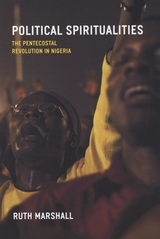 Political Spiritualities: The Pentecostal Revolution in Nigeria
Ruth Marshall
University of Chicago Press, 2009 After an explosion of conversions to Pentecostalism over the past three decades, tens of millions of Nigerians now claim that “Jesus is the answer.” But if Jesus is the answer, what is the question? What led to the movement’s dramatic rise and how can we make sense of its social and political significance? In this ambitiously interdisciplinary study, Ruth Marshall draws on years of fieldwork and grapples with a host of important thinkers—including Foucault, Agamben, Arendt, and Benjamin—to answer these questions.
To account for the movement’s success, Marshall explores how Pentecostalism presents the experience of being born again as a chance for Nigerians to realize the promises of political and religious salvation made during the colonial and postcolonial eras. Her astute analysis of this religious trend sheds light on Nigeria’s contemporary politics, postcolonial statecraft, and the everyday struggles of ordinary citizens coping with poverty, corruption, and inequality.
Pentecostalism’s rise is truly global, and Political Spiritualities persuasively argues that Nigeria is a key case in this phenomenon while calling for new ways of thinking about the place of religion in contemporary politics.
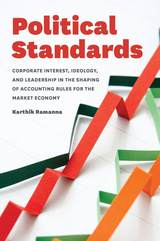 Political Standards: Corporate Interest, Ideology, and Leadership in the Shaping of Accounting Rules for the Market Economy
Karthik Ramanna
University of Chicago Press, 2015 Prudent, verifiable, and timely corporate accounting is a bedrock of our modern capitalist system. In recent years, however, the rules that govern corporate accounting have been subtly changed in ways that compromise these core principles, to the detriment of the economy at large. These changes have been driven by the private agendas of certain corporate special interests, aided selectively—and sometimes unwittingly—by arguments from business academia
With Political Standards, Karthik Ramanna develops the notion of “thin political markets” to describe a key problem facing technical rule-making in corporate accounting and beyond. When standard-setting boards attempt to regulate the accounting practices of corporations, they must draw on a small pool of qualified experts—but those experts almost always have strong commercial interests in the outcome. Meanwhile, standard setting rarely enjoys much attention from the general public. This absence of accountability, Ramanna argues, allows corporate managers to game the system. In the profit-maximization framework of modern capitalism, the only practicable solution is to reframe managerial norms when participating in thin political markets. Political Standards will be an essential resource for understanding how the rules of the game are set, whom they inevitably favor, and how the process can be changed for a better capitalism.
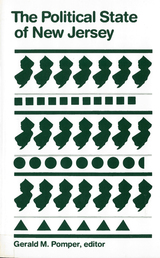 The Political State of New Jersey
Edited by Gerald M. Pomper
Rutgers University Press, 1986 The Political State of New Jersey, sponsored by the Eagleton Institute of Politics of Rutgers University, is a comprehensive analysis of contemporary New Jersey politics. The contributors to this volume are both academic specialists and experienced governmental figures. They have provided citizens of the state of New Jersey with an invaluable guide to political life in New Jersey. Gerald M. Pomper is Professor of Political Science at Rutgers University and the Eagleton Institute of Politics. He is a contributor to the two editions of Politics in New Jersey, author of Voters, Elections, and Parties, and coauthor of The Election of 1984.
A major theme of this book is the emergence of the state government as a significant factor in New Jersey political life. Only recently has the state, as opposed to local or private institutions, become a dominant influence. This trend is evident in the political culture and political parties, the legislature, the governor's office and the courts, the state's finances, and in the agencies for education, environmental protection, and economic development.
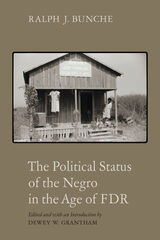 Political Status of the Negro in the Age of FDR: A Carnegie-Myrdal Report Emphasizing the American South
Ralph J. Bunche
University of Chicago Press, 1973 A Nobel Peace Prize winner's groundbreaking work of social science that offered one of the earliest portraits of Black life in twentieth-century America
This volume presents the essence of a massive report prepared in 1940 by a team headed by political scientist and civil rights leader Ralph J. Bunche for the Carnegie Corporation’s Survey of the Negro in America. The report was used by Swedish social economist Gunnar Myrdal in writing his monumental An American Dilemma, and it shaped Myrdal’s treatment of the Black political experience. As a valuable historical document, it provides a backdrop against which we can measure change in the Black American’s political status and interpret the origins and consequences of the second Reconstruction.
The Political Status of the Negro introduces essential information about political practices in the Southern states. It offers insight into the historical, economic, sociological, and psychological factors that accounted for these practices, as well as some understanding of the myths, stereotypes, and symbols that contemporaries often used to explain and justify them. The study’s most enduring value lies in its wealth of personal interviews which were conducted in the South in the late 1930s and in its first-hand impressions of the African Americans and Southern politics.
The book is divided into two parts: The first contains Bunche’s explanations, comments, and analytical writings on the subject; the second includes almost all of the interviews and field reports. To this text historian Dewey W. Grantham added a comprehensive introduction that discusses Bunche and his work, the preparation of the research manuscript, and the book’s role in Gunnar Myrdal’s later work.
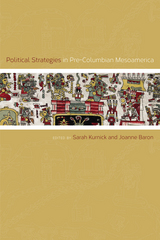 Political Strategies in Pre-Columbian Mesoamerica
Sarah Kurnick
University Press of Colorado, 2020 Political authority contains an inherent contradiction. Rulers must reinforce social inequality and bolster their own unique position at the top of the sociopolitical hierarchy, yet simultaneously emphasize social similarities and the commonalities shared by all. Political Strategies in Pre-Columbian Mesoamerica explores the different and complex ways that those who exercised authority in the region confronted this contradiction. New data from a variety of well-known scholars in Mesoamerican archaeology reveal the creation, perpetuation, and contestation of politically authoritative relationships between rulers and subjects and between nobles and commoners. The contributions span the geographic breadth and temporal extent of pre-Columbian Mesoamerica—from Preclassic Oaxaca to the Classic Petén region of Guatemala to the Postclassic Michoacán—and the contributors weave together archaeological, epigraphic, and ethnohistoric data. Grappling with the questions of how those exercising authority convince others to follow and why individuals often choose to recognize and comply with authority, Political Strategies in Pre-Columbian Mesoamerica discusses why the study of political authority is both timely and significant, reviews how scholars have historically understood the operation of political authority, and proposes a new analytical framework to understand how rulers rule.
Contributors include Sarah B. Barber, Joanne Baron, Christopher S. Beekman, Jeffrey Brzezinski, Bryce Davenport, Charles Golden, Takeshi Inomata, Arthur A. Joyce, Sarah Kurnick, Carlo J. Lucido, Simon Martin, Tatsuya Murakami, Helen Perlstein Pollard, and Víctor Salazar Chávez.
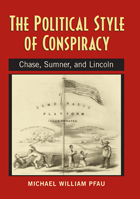 The Political Style of Conspiracy: Chase, Sumner, and Lincoln
Michael William Pfau
Michigan State University Press, 2005 The turbulent history of the United States has provided a fertile ground for conspiracies, both real and imagined. From the American Revolution to the present day, conspiracy discourse—linguistic and symbolic practices and artifacts revolving around themes, claims, or accusations of conspiracy—has been a staple of political rhetoric. Some conspiracy theories never catch on with the public, while others achieve widespread popularity. Whether successful or not, the means by which particular conspiracy theories spread is a rhetorical process, a process in which persuasive language, symbolism, and arguments act upon individual minds within concrete historical and political settings.
Conspiracy rhetoric was a driving force in the evolution of antebellum political culture, contributing to the rise and fall of the great parties in the nineteenth century. One conspiracy theory in particular—the "slave power" conspiracy—was instrumental in facilitating the growth of the young Republican Party's membership and ideology. The Political Style of Conspiracy analyzes the concept and reality of the "slave power" in the rhetorical discourse of the mid-nineteenth-century, in particular the speeches and writing of politicians Salmon P. Chase, Charles Sumner, and Abraham Lincoln. By examining their mainstream texts, Pfau reveals that, in addition to the "paranoid style" of conspiracy rhetoric that inhabits the margins of political life, Lincoln, Chase, and Sumner also engaged in a distinctive form of conspiracy rhetoric that is often found at the center of mainstream American society and politics.
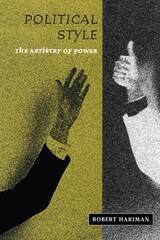 Political Style: The Artistry of Power
Robert Hariman
University of Chicago Press, 1995 In this book, Robert Hariman demonstrates how matters of style—of diction, manners, sensibility, decor, and charisma—influence politics.
In critical studies of classic texts, Hariman identifies four dominant political styles. The realist style, as found in Machiavelli's The Prince, creates a world of sheer power, constant calculation, and emotional control; this style is the common sense of modern political science. The courtly style, depicted in Kapuscinski's The Emperor, is characterized by high decorousness, hierarchies, and fixation on the body of the sovereign; this style infuses mass media coverage of the American presidency. The republican style, reflected in Cicero's letters to Atticus, promotes the art of oratory, consensus, and civility; it informs our ideal of democratic conversation. The bureaucratic style, as captured in Kafka's The Castle, emphasizes institutional procedures, official character, and the priority of writing; this style structures everday life.
Hariman looks at effective political artistry in figures from antiquity to modern politicians such as Vaclav Havel, Ronald Reagan, and Bill Clinton. He discusses the crises to which each style is susceptible, as well as the social and moral consequences of each style's success.
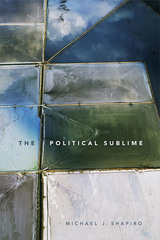 The Political Sublime
Michael J. Shapiro
Duke University Press, 2018 In The Political Sublime Michael J. Shapiro formulates an original politics of aesthetics through an analysis of the experience of the sublime. Turning away from Kant's analysis of the sublime experience as a validation of the existence of a universal common sense, Shapiro draws on Deleuze, Lyotard, and Rancière to show how incomprehensible events and dilemmas provide openings for new political formations. He approaches the sublime through a range of artistic and cultural texts that address social crises and natural disasters, from the writing of James Baldwin and Ta-Nehisi Coates to the films of Ingmar Bergman and Spike Lee; these works suggest ways to channel the disruptive effects of the sublime into resistance to authority and innovative political initiative. Whether stemming from the threat of nuclear annihilation or the aftermath of an earthquake, the violence of racism and terrorism or the devastation of industrialism, sublime experience, Shapiro contends, allows for a rethinking of events in ways that reveal, redistribute, and create conditions of possibility for alternative communities of sense.
Political Support in Canada: The Crisis Years
Allan Kornberg and Harold D. Clarke, editors
Duke University Press, 1983 All governments require popular support, and in democracies this support must be maintained by noncoercive means. This book analyzes the question of political support in Canada, a country in which the maintenance of the integrity of the political community has been and continues to be, in the words of the editors, "the single most salient aspect of the country's political life."
The nature of popular support is first considered in broad, theoretical terms, then from the standpoint of those agents most responsible for maintaining support in Canadian democracy, then as influenced by particular issues and policies, and finally as it affects and is affected by the separatist movement in Quebec.
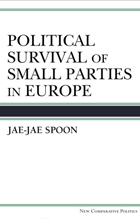 Political Survival of Small Parties in Europe
Jae-Jae Spoon
University of Michigan Press, 2015 It is often thought that small party survival or failure is a result of institutional constraints, the behavior of large parties, and the choices of individual politicians. Jae-Jae Spoon, in contrast, argues that the decisions made by small parties themselves determine their ability to balance the dual goals of remaining true to their ideals while maximizing their vote and seat shares, thereby enabling them to survive even in adverse electoral systems. Spoon employs a mixed-methods approach in order to explore the policy, electoral, and communication strategies of West European Green Parties from 1980 to the present. She combines cross-national data on these parties with in-depth comparative case studies of two New Politics parties, the French and British Green Parties, that have survived in similar national-level plurality electoral systems. Both of these parties have developed as organizations which run candidates in elections at the local, national, and European levels in their respective countries. The parties’ survival, Spoon asserts, results from their ability to balance their competing electoral, policy, and communication goals.
The Political Testament of Cardinal Richelieu: The Significant Chapters and Supporting Selections
Translated by Henry Bertram Hill
University of Wisconsin Press, 1964 “Hill has prepared an excellent translation of the more important parts of the Political Testament; his notes are clear, concise, informative, and accurate, and his short introduction will provide students who wish to delve into the French original with an indication of the road that is open to them. . . . Offers a window to the mind of the redoubtable Richelieu.”—American Historical Review
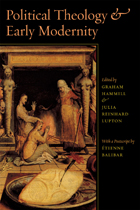 Political Theology and Early Modernity
Edited by Graham Hammill and Julia Reinhard Lupton
University of Chicago Press, 2012 Political theology is a distinctly modern problem, one that takes shape in some of the most important theoretical writings of the twentieth and twenty-first centuries. But its origins stem from the early modern period, in medieval iconographies of sacred kinship and the critique of traditional sovereignty mounted by Hobbes and Spinoza. In this book, Graham Hammill and Julia Reinhard Lupton assemble established and emerging scholars in early modern studies to examine the role played by sixteenth- and seventeenth-century literature and thought in modern conceptions of political theology. Political Theology and Early Modernity explores texts by Shakespeare, Machiavelli, Milton, and others that have served as points of departure for such thinkers as Schmitt, Strauss, Benjamin, and Arendt. Written from a spectrum of positions ranging from renewed defenses of secularism to attempts to reconceive the religious character of collective life and literary experience, these essays probe moments of productive conflict, disavowal, and entanglement in politics and religion as they pass between early modern and modern scenes of thought. This stimulating collection is the first to answer not only how Renaissance and baroque literature help explain the persistence of political theology in modernity and postmodernity, but also how the reemergence of political theology as an intellectual and political problem deepens our understanding of the early modern period.
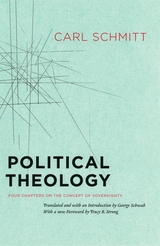 Political Theology: Four Chapters on the Concept of Sovereignty
Carl Schmitt
University of Chicago Press, 2005 Written in the intense political and intellectual tumult of the early years of the Weimar Republic, Political Theology develops the distinctive theory of sovereignty that made Carl Schmitt one of the most significant and controversial political theorists of the twentieth century.
Focusing on the relationships among political leadership, the norms of the legal order, and the state of political emergency, Schmitt argues in Political Theology that legal order ultimately rests upon the decisions of the sovereign. According to Schmitt, only the sovereign can meet the needs of an "exceptional" time and transcend legal order so that order can then be reestablished. Convinced that the state is governed by the ever-present possibility of conflict, Schmitt theorizes that the state exists only to maintain its integrity in order to ensure order and stability. Suggesting that all concepts of modern political thought are secularized theological concepts, Schmitt concludes Political Theology with a critique of liberalism and its attempt to depoliticize political thought by avoiding fundamental political decisions.
 Political Theology Reimagined
Alex Dubilet and Vincent W. Lloyd, editors
Duke University Press, 2025 Political theology has emerged as an enormously energetic, creative way of exploring the complex relationships between religion, politics, and culture around the world. Political Theology Reimagined centers decolonial, Black, queer, feminist, and Marxist modes of critical practice to offer a cutting-edge vision of the field that foregrounds a political theology animated by both a fascination with and a suspicion of the secular. Among other things, contributors explore how religious ideas, practices, and imaginations are inflected by anti-Blackness, patriarchy, and colonial histories; theorize anew the status of secularization narratives; probe the universality and translatability of conceptual abstractions; and experiment with the powers of genealogy and speculation. In short, they grapple with religion and critique in all their complexity, opening new itineraries in political theology by transforming its fundamental theoretical coordinates. Traversing diverse sites, from South Asia to the Middle East to Indigenous North America, and working across diverse scales, from the national to the planetary to the cosmic, this volume models the future of political theology by pairing rigorous critique with a commitment to collective liberation.
Contributors. Prathama Banerjee, Agata Bielik-Robson, Kirill Chepurin, Alex Dubilet, James Edward Ford III, Lucia Hulsether, Basit Kareem Iqbal, Ada S. Jaarsma, Siobhan Kelly, David Kline, Adam Kotsko, Dana Lloyd, Vincent W. Lloyd, Beatrice Marovich, Aseel Najib, Milad Odabaei, Inese Radzins, George Shulman, Martin Shuster, Rafael Vizcaíno
 Political Theory and Praxis: New Perspectives
Terence Ball, Editor
University of Minnesota Press, 1977 Political Theory and Praxis was first published in 1977. Minnesota Archive Editions uses digital technology to make long-unavailable books once again accessible, and are published unaltered from the original University of Minnesota Press editions. Nine distinguished contributors—philosophers and political scientists at universities and colleges in the United States, Europe, Canada, and Australia—write essays for this volume in political philosophy. The book is dedicated to the memory of Hannah Arendt, the writer and philosopher who died in 1975. The contributors discuss various aspects of the concepts of theory and practice and their interrelationship. All of the essays were written expressly for this volume. In an introduction, Professor Ball, the volume editor, notes that the essays reflect the diversity of conceptions of theory, of practice, and of their conceptual and practical interrelations, and that the contributors explore various ways and byways of approaching the age-old questions of theory and its relation to practice. Part I: Origins "On the History of 'Theory' and 'Praxis'," Nicholas Lobkowicz; "Creatures of a Day: Thought and Action in Thucydides,"J. Peter Euben; " Plato and Aristotle: The Unity Versus the Autonomy of Theory and Practice." Terence Ball. Part II: Developments "Kant on Theory and Practice," Carl Raschke; "Theory and Practice in Hegel and Marx: An Unfinished Dialogue,"Peter Fuss; "The Unity of Theory and Practice: The Science of Marx and Nietzsche," Edward Andrew. Part II: Dilemmas and New Directions "Hannah Arendt: The Ambiguities of Theory and Practice," Richard J. Bernstein; "Rebels, Beginners, and Buffoons: Politics as Action," Raymond L. Nichols; "How People Change Themselves: The Relationship between Critical Theory and Its Audience," Brian Fay
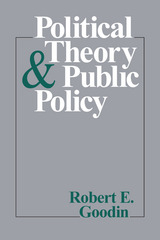 Political Theory and Public Policy
Robert E. Goodin
University of Chicago Press, 1983 Some say that public policy can be made without the benefit of theory—that it emerges, instead, through trial-and-error. Others see genuine philosophical issues in public affairs but try to resolve them through fanciful examples. Both, argues Robert E. Goodin, are wrong.
Goodin—a political scientist who is also an associate editor of Ethics—shows that empirical and ethical theory can and should guide policy. To be useful, however, these philosophical discussions of public affairs must draw upon actual policy experiences rather than contrived cases. Further, they must reflect the broader social consequences of policies rather than just the dilemmas of personal conscience.
Effectively integrating the literatures of social science, policy science, and philosophy, Goodin provides a theoretically sophisticated yet empirically well-grounded analysis of public policies, the principles underlying them, the institutions shaping them, and the excuses offered for their failures. This analysis is enhanced by the author's discussion of such specific cases as the disposal of nuclear wastes and the priority accorded national defense—cases that illustrate Goodin's theoretical and methodological framework for approaching policy issues.
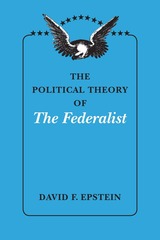 The Political Theory of The Federalist
David F. Epstein
University of Chicago Press, 1986 In The Political Theory of “The Federalist,” David F. Epstein offers a guide to the fundamental principles of American government as they were understood by the framers of the Constitution. Epstein here demonstrates the remarkable depth and clarity of The Federalist’s argument, reveals its specifically political (not merely economic) view of human nature, and describes how and why the American regime combines liberal and republican values.
“While it is a model of scholarly care and clarity, this study deserves an audience outside the academy. . . . David F. Epstein’s book is a fine demonstration of just how much a close reading can accomplish, free of any flights of theory or fancy references.”—New Republic
“Epstein’s strength lies in two aspects of his own approach. One is that he reads the text with uncommon closeness and sensitivity; the other is an extensive knowledge of the European political thought which itself forms an indispensable background to the minds of the authors.”—Times Literary Supplement
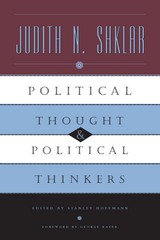 Political Thought and Political Thinkers
Judith N. Shklar
University of Chicago Press, 1998 Ethics described Judith Shklar as "a towering presence" at Harvard for decades, an "influential teacher and mentor to many of the best known political theorists working today in the United States." One of this century's most important liberal scholars, she is remembered for her "sharp intellect, forceful personality, and passionate intellectual honesty and curiosity." Political Thought and Political Thinkers makes startlingly clear her role in the reinvigoration of liberal theory that has been taking place over the last two decades.
This second volume of Shklar's work—which follows the 1997 publication of Redeeming American Political Thought—brings together heretofore uncollected (and several unpublished) essays on a number of themes, including the place of the intellect in the modern political world and the dangers of identity politics. While many of these essays have been previously published, they remain far from accessible. In collecting the work scattered over the past forty years in journals and other publications, noted political theorist Stanley Hoffmann provides an essential guide to Shklar's thought, complemented by George Kateb's comprehensive introduction to her work. Hoffmann's selection, which includes Shklar's classic essay "The Liberalism of Fear," showcases her distinctive defense of liberalism and follows her explorations in this history of moral and political thought as she engages with Bergson, Arendt, and Rousseau.
Political Thought and Political Thinkers displays one of the century's most compelling and flexible intellects in action and is the definitive collection of her work on European history and thinkers.
"Shklar's legacy is an inspiring example of liberal thought at its arresting best, unflinchingly courageous and unmoved by the dreary and unmeaning harmonies conjured up by theories of justice and rights."—John Gray, Times Literary Supplement
Judith N. Shklar (1928-1992) was Cowles Professor of Government at Harvard University and the author of nine books in political theory.
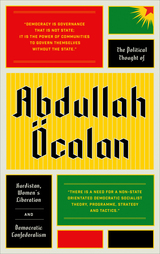 The Political Thought of Abdullah Öcalan: Kurdistan, Women's Revolution and Democratic Confederalism
Abdullah Öcalan
Pluto Press, 2017 Abdullah Öcalan actively led the Kurdish liberation struggle as the head of the PKK from its foundation in 1978 until his abduction on February 15, 1999. Now, writing from isolation in Turkey’s Imrali Island Prison, he has shaped a new political movement in the Middle East called Democratic Confederalism, which is rapidly developing and spreading across the Middle East because it combats powerful religious sectarianism while also providing the blueprints for a burgeoning democratic society.
Bringing together Öcalan’s ideas in one slim volume for the first time, The Political Thought of Abdullah Öcalan contains a selection of his most influential writings over his lifetime. These ideas can be read in light of Öcalan’s continuing legacy during the ongoing revolution and the battle against conservatism and religious extremism. As the political situation in Syria intensifies, this book offers a timely and essential introduction for anyone wanting to come to grips with his political ideas on the Kurdish question, gender, Democratic Confederalism, and nationalism.
Political Tolerance and American Democracy
John L. Sullivan, James Piereson, and George E. Marcus
University of Chicago Press, 1982 This path-breaking book reconceptualizes our understanding of political tolerance as well as of its foundations. Previous studies, the authors contend, overemphasized the role of education in explaining the presence of tolerance, while giving insufficient weight to personality and ideological factors. With an innovative methodology for measuring levels of tolerance more accurately, the authors are able to explain why particular groups are targeted and why tolerance is an inherently political concept. Far from abating, the degree of intolerance in America today is probably as great as it ever was; it is the targets of intolerance that have changed.
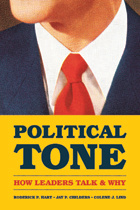 Political Tone: How Leaders Talk and Why
Roderick P. Hart, Jay P. Childers, and Colene J. Lind
University of Chicago Press, 2013 It’s not what you say, but how you say it. Solving problems with words is the essence of politics, and finding the right words for the moment can make or break a politician’s career. Yet very little has been said in political science about the elusive element of tone.
In Political Tone, Roderick P. Hart, Jay P. Childers, and Colene J. Lind analyze a range of texts—from speeches and debates to advertising and print and broadcast campaign coverage— using a sophisticated computer program, DICTION, that parses their content for semantic features like realism, commonality, and certainty, as well as references to religion, party, or patriotic terms. Beginning with a look at how societal forces like diversity and modernity manifest themselves as political tones in the contexts of particular leaders and events, the authors proceed to consider how individual leaders have used tone to convey their messages: How did Bill Clinton’s clever dexterity help him recover from the Monica Lewinsky scandal? How did Barack Obama draw on his experience as a talented community activist to overcome his inexperience as a national leader? And how does Sarah Palin’s wandering tone indicate that she trusts her listeners and is open to their ideas?
By focusing not on the substance of political arguments but on how they were phrased, Political Tone provides powerful and unexpected insights into American politics.
 The Political Transformation of Gulf Tribal States: Elitism and the Social Contract in Kuwait, Bahrain and Dubai, 1918-1970s
Shaul Yanai
Sussex Academic Press, 2022 The reform movements and attempts to establish parliamentary institutions in the Persian Gulf states of Kuwait, Bahrain and Dubai between the First World War and the independent era of the 1970s were not inspired by western example or by any tradition of civil representation. The move to a parliamentary system not only represented a milestone in the history of the region, creating a legacy for future generations, but was a unique transition in the Arab world. The transformation of these states from loose chiefdoms of minimal coherence and centralization, into centralizing and institutionalized monarchies, involved the setting up of primary institutions of government, the demarcation of borders, and establishment of a monarchical order. As this new political and social order evolved, ideas of national struggle and national rights penetrated Gulf societies. Gulf citizens who had spent time in Arab states, mostly in Egypt and Iraq, took part in the genesis of a public Arab-Gulf national discourse, enabling the Gulf population to become acquainted with national struggles for independence. As a result merchants of notable families, newly educated elements, and even workers, began to oppose the dominance of the rulers. Both the rulers and the commercial elites (including members of the ruling families) tried to formulate a new and different social contract with the rulers seeking to entrench their political power by using new administrative means and financial power. Opposition against this current crystallized in 1938 among the ranks of the commercial oligarchy as well as within the ruling families. In spite of its failure to create its own political institutions, the oligarchy remained the foremost social and economic class. But the ruling families could no longer treat national oil revenues as their private income, and they began to channel part of these funds to public needs. The most important consequence of the '1938' movement was the formation of a new social contract between the two traditional power centers: the governing structures were fitted into the political and economic reality brought about by the oil wealth, but remained essentially tribal and committed to the power division between the major Gulf families.
Political Trust in China
Lianjiang Li
University of Michigan Press, 2025 The authoritarian regime in China is a prime target of the US-led war on autocracy; however, the regime claims a majority of the Chinese people trust the government, with national surveys since the 1990s supporting this assertion. How much do Chinese citizens actually trust the one-party regime? Instead of dismissing survey results, Li examines the contexts in which Chinese citizens are predisposed to say they trust the government. He argues that political trust in China is a power-accommodating and nonbinding hope rather than a rights-based and binding expectation as Chinese citizens do not have the right to grant and retract trust through free and fair elections.
 The Political Use of Racial Narratives: School Desegregation in Mobile, Alabama, 1954-97
Richard A. Pride
University of Illinois Press, 2002 Arguing that politics is essentially a contest for meaning and that telling a story is an elemental political act, Richard A. Pride lays bare the history of school desegregation in Mobile, Alabama, to demonstrate the power of narrative in cultural and political change. This book describes the public, personal, and meta-narratives of racial inequality that have competed for dominance in Mobile. Pride begins with a white liberal's quest to desegregate the city's public schools in 1955 and traces which narratives--those of biological inferiority, white oppression, the behavior and values of blacks, and others--came to influence public policy and opinion over four decades. Drawing on contemporaneous sources, he reconstructs the stories of demonstrations, civic forums, court cases, and school board meetings as citizens of Mobile would have experienced them, inviting readers to trace the story of desegregation in Mobile through the voices of politicians, protestors, and journalists and to determine which narratives were indeed most powerful. Exploring who benefits and who pays when different narratives are accepted as true, Pride offers a step-by-step account of how Mobile's culture changed each time a new and more forceful narrative was used to justify inequality. More than a retelling of Mobile's story of desegregation, The Political Use of Racial Narratives promotes the value of rhetorical and narrative analysis in the social sciences and history.
 Political Violence in Ancient India
Upinder Singh
Harvard University Press, 2017 Mahatma Gandhi and Jawaharlal Nehru helped create the myth of a nonviolent ancient India while building a modern independence movement on the principle of nonviolence (ahimsa). But this myth obscures a troubled and complex heritage: a long struggle to reconcile the ethics of nonviolence with the need to use violence to rule. Upinder Singh documents the dynamic tension between violence and nonviolence in ancient Indian political thought and practice over twelve hundred years.
Political Violence in Ancient India looks at representations of kingship and political violence in epics, religious texts, political treatises, plays, poems, inscriptions, and art from 600 BCE to 600 CE. As kings controlled their realms, fought battles, and meted out justice, intellectuals debated the boundary between the force required to sustain power and the excess that led to tyranny and oppression. Duty (dharma) and renunciation were important in this discussion, as were punishment, war, forest tribes, and the royal hunt. Singh reveals a range of perspectives that defy rigid religious categorization. Buddhists, Jainas, and even the pacifist Maurya emperor Ashoka recognized that absolute nonviolence was impossible for kings.
By 600 CE religious thinkers, political theorists, and poets had justified and aestheticized political violence to a great extent. Nevertheless, questions, doubt, and dissent remained. These debates are as important for understanding political ideas in the ancient world as for thinking about the problem of political violence in our own time.
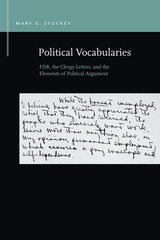 Political Vocabularies: FDR, the Clergy Letters, and the Elements of Political Argument
Mary E. Stuckey
Michigan State University Press, 2018 Political Vocabularies: FDR, the Clergy Letters, and the Elements of Political Argument uses a set of letters sent to Franklin D. Roosevelt in 1935 by American clergymen to make a larger argument about the rhetorical processes of our national politics. At any given moment, national politics are constituted by competing political imaginaries, through which citizens understand and participate in politics. Different imaginaries locate political authority in different places, and so political authority is very much a site of dispute between differing political vocabularies. Opposing political vocabularies are grounded in opposing characterizations of the specific political moment, its central issues, and its citizens, for we cannot imagine a political community without populating it and giving it purpose. These issues and people are hierarchically ordered, which provides the imaginary with a sense of internal cohesion and which also is a central point of disputation between competing vocabularies in a specific epoch. Each vocabulary is grounded in a political tradition, read through our national myths, which authorize the visions of national identity and purpose and which contain significant deliberative aspects, for each vision of the nation impels distinct political imperatives. Such imaginaries are our political priorities in action. Taking one specific moment of political change, the author illuminates the larger processes of change, competition, and stability in national politics.
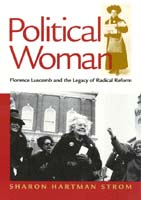 Political Woman: Florence
Sharon Strom
Temple University Press, 2001 Florence Hope Luscomb's life spanned nearly all of the twentieth century. Born into a remarkable family of abolitionists and progressive thinkers, the young Florence accompanied her feminist mother to lectures and political rallies, soon choosing a course of political engagement and social activism from which she never retreated.
Politcal Women counters the traditional narratives that place men at the center of political thinking and history. Showing how three generations of Luscomb's family had set the stage for her activism, this biography presents her story against the backdrop of Boston's politics and larger struggles for social justice. Luscomb participated in every significant social reform movement of her time -- from securing women's right to vote and supporting trade unionism to advocating an end to the war in Vietnam. Luscomb also ran for public office; she was narrowly defeated when she ran for Boston's city council in 1922. Although unsuccessful as a third-party candidate for Congress (in 1936 and 1950) and for Governor of Massachusetts (in 1952), she was one of the few women of her time to seek office. Independent, athletic, and spirited, she apparently never thought that traditional gender prescriptions applied to her. A practicing architect before the First World War, an exuberant hiker all her life, and a member in collective-living arrangements, Luscomb enjoyed a life of rich experiences and sustaining relationships.
In Florence Luscomb's biography, Sharon Hartman Strom suggests that although women were excluded from the activities and sites associated with conventional politics until recently, they did political work that gave purpose to their lives and affected political thinking in their communities, states, and ultimately the nation.
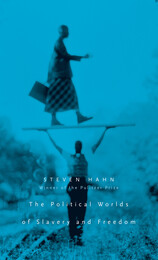 The Political Worlds of Slavery and Freedom
Steven Hahn
Harvard University Press, 2009 Pulitzer Prize–winner Steven Hahn’s provocative new book challenges deep-rooted views in the writing of American and African-American history. Moving from slave emancipations of the eighteenth century through slave activity during the Civil War and on to the black power movements of the twentieth century, he asks us to rethink African-American history and politics in bolder, more dynamic terms.
Historians have offered important new perspectives and evidence concerning the geographical expanse of slavery in the United States and the protracted process of abolishing it. They have also uncovered a wealth of new material on the political currents running through black communities from enslavement to the present day. Yet their scholarship has failed to dislodge familiar interpretive frameworks that may no longer make much sense of the past.
Based on the Nathan I. Huggins Lectures at Harvard University, The Political Worlds of Slavery and Freedom asks why this may be so and offers sweeping reassessments. It defines new chronological and spatial boundaries for American and African-American politics during the first half of the nineteenth century. It suggests, with historical comparisons, that we may have missed a massive slave rebellion during the Civil War. And it takes a serious look at the development and appeal of Garveyism and the hidden history of black politics it may help to reveal. Throughout, it presents African Americans as central actors in the arenas of American politics, while emphasizing traditions of self-determination, self-governance, and self-defense among them.
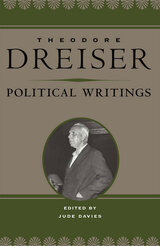 Political Writings
Edited by Jude Davies
University of Illinois Press, 2011 Theodore Dreiser staked his reputation on fearless expression in his fiction, but he never was more outspoken than when writing about American politics, which he did prolifically. Although he is remembered primarily as a novelist, the majority of his twenty-seven books were nonfiction treatises. To Dreiser, everything was political. His sense for the hype and hypocrisies of politics took shape in reasoned but emphatic ruminations in his fiction and nonfiction on the hopes and disappointments of democracy, the temptations of nationalism and communism, the threat and trumpets of war, and the role of writers in resisting and advancing political ideas. Spanning a period of American history from the Progressive Era to the advent of the Cold War, this generous volume collects Dreiser's most important political writings from his journalism, broadsides, speeches, private papers, and long out-of-print nonfiction books. Touching on the Great Depression, the New Deal, and both World Wars as well as Soviet Russia and the persecution of Jews in Nazi Germany, these writings exemplify Dreiser's candor and his penchant for championing the defenseless and railing against corruption. Positing Dreiser as an essential public intellectual who addressed the most important issues of the first half of the twentieth century, these writings also navigate historical terrain with prescient observations on topics such as religion, civil rights, national responsibility, individual ethics, global relations, and censorship that remain particularly relevant to a contemporary audience. Editor Jude Davies provides historical commentaries that frame these selections in the context of his other writings, particularly his novels.
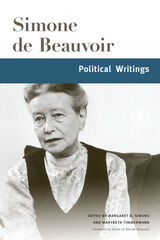 Political Writings
Simone de Beauvoir; Edited by Margaret A. Simons and Marybeth Timmermann; Foreword by Sylvie Le Bon de Beauvoir
University of Illinois Press, 2021 Political Writings offers an abundance of newly translated essays by Simone de Beauvoir that demonstrate a heretofore unknown side of her political philosophy. The writings in this volume range from Beauvoir's surprising 1952 defense of the misogynistic eighteenth-century pornographer, the Marquis de Sade, to a co-written 1974 documentary film, transcribed here for the first time, which draws on Beauvoir's analysis of how socioeconomic privilege shapes the biological reality of aging. The volume traces nearly three decades of Beauvoir's leftist political engagement, from exposés of conditions in fascist Spain and Portugal in 1945 and hard-hitting attacks on right-wing French intellectuals in the 1950s, to the 1962 defense of an Algerian freedom fighter, Djamila Boupacha, and a 1975 article arguing for what is now called the "two-state solution" in Israel. Together these texts prefigure Beauvoir's later feminist activism and provide a new interpretive context for reading her multi-volume autobiography, while also shedding new light on French intellectual history during the turbulent era of decolonization.
Political Writings
Coluccio Salutati
Harvard University Press, 2014 Coluccio Salutati (1332–1406) was chancellor of the Florentine Republic (1375–1406) and the leader of the humanist movement in Italy in the generation after Petrarch and Boccaccio. As such, he was among the first humanists to apply his Classical learning to political theory and his rhetorical skills to the defense of republican liberty. This volume contains a new English version of Salutati’s important treatise On Tyranny, Antonio Loschi’s Invective against the Florentines, which provoked Salutati’s long Reply to a Slanderous Detractor, and a selection of Salutati’s state letters written for the Florentine Republic. Most of the texts are here critically edited and translated into English for the first time.
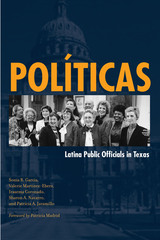 Políticas: Latina Public Officials in Texas
By Sonia R. García, Valerie Martinez-Ebers, Irasema Coronado, Sharon A. Navarro, and Patricia A. Jaramillo
University of Texas Press, 2008 In the decades since Latinas began to hold public office in the United States in the late 1950s, they have blazed new trails in public life, bringing fresh perspectives, leadership styles, and policy agendas to the business of governing cities, counties, states, and the nation. As of 2004, Latinas occupied 27.4 percent of the more than 6,000 elected and appointed local, state, and national positions filled by Hispanic officeholders. The greatest number of these Latina officeholders reside in Texas, where nearly six hundred women occupy posts from municipal offices, school boards, and county offices to seats in the Texas House and Senate. In this book, five Latina political scientists profile the women who have been the first Latinas to hold key elected and appointed positions in Texas government. Through interviews with each woman or her associates, the authors explore and theorize about Latina officeholders' political socialization, decision to run for office and obstacles overcome, leadership style, and representational roles and advocacy. The profiles begin with Irma Rangel, the first Latina elected to the Texas House of Representatives, and Judith Zaffirini and Leticia Van de Putte, the only two Latinas to serve in the Texas Senate. The authors also interview Lena Guerrero, the first and only Latina to serve in a statewide office; judges Linda Yanes, Alma Lopez, Elma Salinas Ender, Mary Roman, and Alicia Chacón; mayors Blanca Sanchez Vela (Brownsville), Betty Flores (Laredo), and Olivia Serna (Crystal City); and Latina city councilwomen from San Antonio, El Paso, Dallas, Houston, and Laredo.
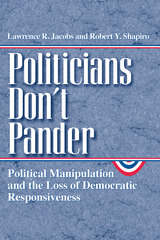 Politicians Don't Pander: Political Manipulation and the Loss of Democratic Responsiveness
Lawrence R. Jacobs and Robert Y. Shapiro
University of Chicago Press, 2000 Public opinion polls are everywhere. Journalists report their results without hesitation, and political activists of all kinds spend millions of dollars on them, fueling the widespread assumption that elected officials "pander" to public opinion—that they tailor their policy decisions to the results of polls.
In this provocative and engagingly written book, the authors argue that the reality is quite the opposite. In fact, when not facing election, contemporary presidents and members of Congress routinely ignore the public's policy preferences and follow their own political philosophies, as well as those of their party's activists, their contributors, and their interest group allies. Politicians devote substantial time, effort, and money to tracking public opinion, not for the purposes of policymaking, but to change public opinion—to determine how to craft their public statements and actions to win support for the policies they and their supporters want.
Taking two recent, dramatic episodes—President Clinton's failed health care reform campaign, and Newt Gingrich's "Contract with America"—as examples, the authors show how both used public opinion research and the media to change the public's mind. Such orchestrated displays help explain the media's preoccupation with political conflict and strategy and, the authors argue, have propelled levels of public distrust and fear of government to record highs.
Revisiting the fundamental premises of representative democracy, this accessible book asks us to reexamine whether our government really responds to the broad public or to the narrower interests and values of certain groups. And with the 2000 campaign season heating up, Politicians Don't Pander could not be more timely.
"'Polling has turned leaders into followers,' laments columnist Marueen Dowd of The New York Times. Well, that's news definitely not fit to print say two academics who have examined the polls and the legislative records of recent presidents to see just how responsive chief executives are to the polls. Their conclusion: not much. . . . In fact, their review and analyses found that public opinion polls on policy appear to have increasingly less, not more, influence on government policies."—Richard Morin, The Washington Post
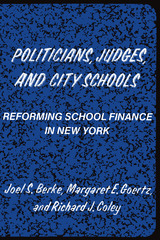 Politicians, Judges, and City Schools: Reforming School Finance in New York
Joel S. Berke
Russell Sage Foundation, 1984 During the 1970s, a nationwide school finance reform movement—fueled by litigation challenging the constitutionality of state education funding laws—brought significant changes to the way many states finance their public elementary and secondary school systems. School finance reform poses difficult philosophical questions: what is the meaning of equality in educational opportunity and of equity in the distribution of tax burdens? But it also involves enormous financial complexity (for example, dividing resources among competing special programs) and political risk (such as balancing local control with the need for statewide parity). For those states (like New York) that were slow to make changes a new decade has brought new constraints and complications. Sluggish economic growth, taxpayer revolts, reductions in federal aid, all affect education revenues. And the current concern with educational excellence may obscure the needs of the poor and educationally disadvantaged. This book will provide New York's policy makers and other concerned specialists with a better understanding of the political, economic, and equity issues underlying the school finance reform debate. It details existing inequities, evaluates current financing formulas, and presents options for change. Most important, for all those concerned with education and public policy in New York and elsewhere, it offers a masterful assessment of the trade-offs involved in developing reform programs that balance the conflicting demands of resource equalization, political feasibility, and fiscal responsibility. "Synthesizes the political and fiscal research [on school finance reform] and applies it to the New York Context....A blueprint for how to redesign state school finance....A fine book." —Public Administration Review "This is a book that lucidly discusses the issues in school finance and provides valuable reference material." —American Political Science Review
Politicising parenthood in Scandinavia: Gender relations in welfare states
Edited by Anne Lise Ellingsaeter, Arnlaug Leira, Jon Kvist, Johan Fritzell, Bjorn Hvinden, and Olli Kangas
Bristol University Press, 2006 How to respond to the needs of working parents has become a pressing social policy issue in contemporary Western Europe. This book highlights the politicising of parenthood in the Scandinavian welfare states - focusing on the relationship between parents and the state, and the ongoing renegotiations between the public and the private.
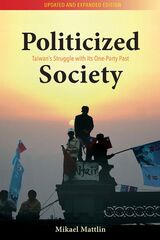 Politicized Society (2nd ed.): The Long Shadow of Taiwan's One-party Legacy
Mikael Mattlin
National University of Singapore Press, 2011 Taiwan's gradual democratization has been celebrated as one of the most successful cases of political transformation, due to an initially smooth political transition from one-party authoritarianism to multi-party politics. Yet, this transition is incomplete and, especially since 2000 when the first non-Kuomintang president was elected, Taiwan has seen an intense and persistent politicization of its society. Institutional flaws are not enough to explain the shortcomings of Taiwan's democratic politics or those in other transitional democracies, the author argues. Rather, when an old dominant party like the Kuomintang continues to thrive even after the end of one-party rule, the process of political liberalization and transition contains within itself the seeds of structural politicization. This is, then, a study with empirical value - warning that extreme politicization is the main internal threat to the sustainability of Taiwan's democratic politics - but its analysis also applies to other transitional democracies around the world.
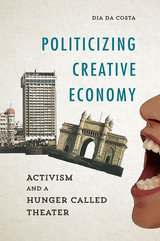 Politicizing Creative Economy: Activism and a Hunger Called Theater
Dia Da Costa
University of Illinois Press, 2016 Scholars increasingly view the arts, creativity, and the creative economy as engines for regenerating global citizenship, renewing decayed local economies, and nurturing a new type of all-inclusive politics. Dia Da Costa delves into the global development, nationalist and leftist/progressive histories shaping these ideas with a critical ethnography of two activist performance groups in India: the Communist-affiliated Jana Natya Manch, and Budhan Theatre, a community-based group of the indigenous Chhara people.
As Da Costa shows, commodification, heritage, and management discussions inevitably creep into performance. Yet the ability of performance to undermine such subtle invasions make activist theater a crucial site for considering what counts as creativity in the cultural politics of creative economy. Da Costa explores the precarious lives, livelihoods, and ideologies at the intersection of heritage projects, planning discourse, and activist performance. By analyzing the creators, performers, and activists involved--individuals at the margins of creative economy as well as society--Da Costa builds a provocative argument. Their creative economy practices may survive, challenge, and even reinforce the economies of death, displacement, and divisiveness used by the urban poor to survive.
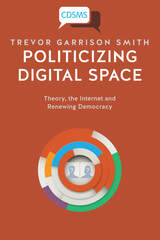 Politicizing Digital Space: Theory, the Internet, and Renewing Democracy
Trevor Garrison Smith
University of Westminster Press, 2017 The objective of this book is to outline how a radically democratic politics can be reinvigorated in theory and practice through the use of the internet. The author argues that politics in its proper sense can be distinguished from anti-politics by analyzing the configuration of public space, subjectivity, participation, and conflict. Each of these terrains can be configured in a more or less political manner, though the contemporary status quo heavily skews them towards anti-political configuration. Using this understanding of what exactly politics entails, this book considers how the internet can both help and hinder efforts to move each area in a more political direction. By explicitly interpreting contemporary theories of the political in terms of the internet, this analysis avoids the twin traps of both technological determinism and technological cynicism. Raising awareness of what the word ‘politics’ means, the author develops theoretical work by Arendt, Rancière, Žižek and Mouffe to present a clear and coherent view of how in theory, politics can be digitized and alternatively how the internet can be deployed in the service of trulydemocratic politics.
 Politicizing Gender: Narrative Strategies in the Aftermath of the French Revolution
Kadish, Doris Y
Rutgers University Press, 1991 It is Doris Kadish's contention in this book that gender and politics went hand-in-hand in the nineteenth century; that nineteenth-century works can often be read as retellings of the French Revolution; and that the political meanings of these works can be gleaned through the study of narrative strategies that she chooses to call "semiotic readings." Building on the work of Marina Warner, Lynn Hunt, Joan Landes, Nancy Armstrong, Foucault and others, she shows how the strategy of politicizing gender during and after the revolution served many functions--among them to articulate representations of revolution, to form the nineteenth-century public sphere, to constitute bourgeois ideology, to distance the unruly masses, and ultimately, perhaps, to express a deep seated fear of women as a threat to the status quo. Looking at the French and English novel, and even selected relevant paintings in this way, she is able to read much-read texts in new and refreshing ways. She shows us how a collective story or master narrative of the revolution was retold and refashioned throughout the century, even where we might least expect to find it. She looks first at small details in order to see the larger patterns, and is among the first to show us how semiotics may make a contribution to gender studies.
 Politicizing Islam in Austria: The Far-Right Impact in the Twenty-First Century
Farid Hafez
Rutgers University Press, 2024 Among its Continental peers, Austria has stood out for its longstanding state recognition of the Muslim community as early as 1912. A shift has occurred more recently, however, as populist far-right voices within the Austrian government have redirected public discourse and put into question Islam’s previously accepted autonomous status within the country.
Politicizing Islam in Austria examines this anti-Muslim swerve in Austrian politics through a comprehensive analysis of government policies and regulations, as well as party and public discourses. In their innovative study, Hafez and Heinisch show how the far-right Austrian Freedom Party (FPÖ) adapted anti-Muslim discourse to their political purposes and how that discourse was then appropriated by the conservative center-right Austrian People’s Party (ÖVP). This reconfiguration of the political landscape prepared the way for a right-wing coalition government between conservatives and far-right actors that would subsequently institutionalize anti-Muslim political demands and change the shape of the civic conditions and public perceptions of Islam and the Muslim community in the republic.
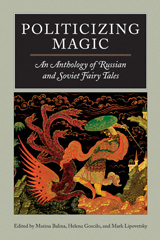 Politicizing Magic: An Anthology of Russian and Soviet Fairy Tales
Balina/Goscilo/Lipovetsky
Northwestern University Press, 2005 A compendium of folkloric, literary, and critical texts that show how the Russian fairy tale acquired political and historical meanings during the Soviet era
We were born to make fairy tales come true. As one of Stalinism's more memorable slogans, this one suggests that the fairy tale figured in Soviet culture as far more than a category of children's literature. How much more-and how cannily Russian fairy tales reflect and interpret Soviet culture, especially in its utopian ambitions-becomes clear for the first time in Politicizing Magic, a compendium of folkloric, literary, and critical texts that demonstrate the degree to which ancient fairy-tale fantasies acquired political and historical meanings during the catastrophic twentieth century.
Introducing Western readers to the most representative texts of Russian folkloric and literary tales, this book documents a rich exploration of this colorful genre through all periods of Soviet literary production (1920-1985) by authors with varied political and aesthetic allegiances. Here are traditional Russian folkloric tales and transformations of these tales that, adopting the didacticism of Soviet ideology, proved significant for the official discourse of Socialist Realism. Here, too, are narratives produced during the same era that use the fairy-tale paradigm as a deconstructive device aimed at the very underpinnings of the Soviet system. The editors' introductory essays acquaint readers with the fairy-tale paradigm and the permutations it underwent within the utopian dream of Soviet culture, deftly placing each-from traditional folklore to fairy tales of Socialist Realism, to real-life events recast as fairy tales for ironic effect-in its literary, historical, and political context.
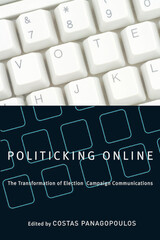 Politicking Online: The Transformation of Election Campaign Communications
Panagopoulos, Costas
Rutgers University Press, 2009 Of the many groundbreaking developments in the 2008 presidential election, the most important may well be the use of the Internet. In Politicking Online contributors explorethe impact of technology for electioneering purposes, from running campaigns andincreasing representation to ultimately strengthening democracy. The book reveals how social networking sites such as MySpace and Facebook are used in campaigns along withe-mail, SMS text messaging, and mobile phones to help inform, target, mobilize, and communicate with voters. While the Internet may have transformed the landscape of modern political campaigns throughout the world, Costas Panagopoulos reminds readers that officials and campaign workers need to adapt to changing circumstances, know the limits of their methods, and combine new technologies with more traditional techniques to achieve an overall balance.
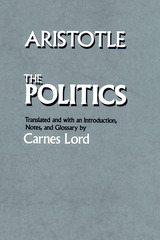 The Politics
Aristotle
University of Chicago Press, 1984
This new translation of one of the fundamental texts of Western political thought combines strict fidelity to Aristotle's Greek with a contemporary English prose style. Lord's intention throughout is to retain Aristotle's distinctive style.
The accompanying notes provide literary and historical references, call attention to textual problems, and supply other essential information and interpretation. A glossary supplies working definitions of key terms in Aristotle's philosophical-political vocabulary as well as a guide to linguistic relationships that are not always reflected in equivalent English terms. Lord's extensive Introduction presents a detailed account of Aristotle's life in relation to the political situation and events of his time and then discusses the problematic character and history of Aristotle's writings in general and of the Politics in particular. Lord also outlines Aristotle's conception of political science, tracing its relation to theoretical science on the one hand and to ethics on the other. In conclusion, he briefly traces the subsequent history and influence of the Politics up to modern times.
"Lord's translation is clearly the best available."—Claremont Review
 Politics
Aristotle
Harvard University Press, 1944 The natural state of mankind.
Aristotle, great Greek philosopher, researcher, reasoner, and writer, born at Stagirus in 384 BC, was the son of a physician. He studied under Plato at Athens and taught there (367–347); subsequently he spent three years at the court of a former pupil in Asia Minor. After some time at Mitylene, in 343–342 he was appointed by King Philip of Macedon to be tutor of his teen-aged son Alexander. After Philip’s death in 336, Aristotle became head of his own school (of “Peripatetics”), the Lyceum at Athens. Because of anti-Macedonian feeling there after Alexander’s death in 323, he withdrew to Chalcis in Euboea, where he died in 322.
Nearly all the works Aristotle prepared for publication are lost; the priceless ones extant are lecture-materials, notes, and memoranda (some are spurious). They can be categorized as follows:
I Practical: Nicomachean Ethics; Great Ethics (Magna Moralia); Eudemian Ethics; Politics; Economics (on the good of the family); On Virtues and Vices.
II Logical: Categories; Analytics (Prior and Posterior); Interpretation; Refutations used by Sophists; Topica.
III Physical: Twenty-six works (some suspect) including astronomy, generation and destruction, the senses, memory, sleep, dreams, life, facts about animals, etc.
IV Metaphysics: on being as being.
V Art: Rhetoric and Poetics.
VI Other works including the Constitution of Athens; more works also of doubtful authorship.
VII Fragments of various works such as dialogues on philosophy and literature; and of treatises on rhetoric, politics, and metaphysics.
The Loeb Classical Library® edition of Aristotle is in twenty-three volumes.
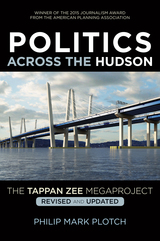 Politics Across the Hudson: The Tappan Zee Megaproject
Philip Mark Plotch
Rutgers University Press, 2015 Winner of the 2015 American Planning Association New York Metro Chapter Journalism Award
The State of New York built one of the world’s longest, widest, and most expensive bridges—the new Tappan Zee Bridge—stretching more than three miles across the Hudson River, approximately thirteen miles north of New York City. In Politics Across the Hudson, urban planner Philip Plotch offers a behind-the-scenes look at three decades of contentious planning and politics centered around this bridge, recently renamed for Governor Mario M. Cuomo, the state's governor from 1983 to 1994. He reveals valuable lessons for those trying to tackle complex public policies while also confirming our worst fears about government dysfunction. Drawing on his extensive experience planning megaprojects, interviews with more than a hundred key figures—including governors, agency heads, engineers, civic advocates, and business leaders—and extraordinary access to internal government records, Plotch tells a compelling story of high-stakes battles between powerful players in the public, private, and civic sectors. He reveals how state officials abandoned viable options, squandered hundreds of millions of dollars, forfeited more than three billion dollars in federal funds, and missed out on important opportunities. Faced with the public’s unrealistic expectations, no one could identify a practical solution to a vexing problem, a dilemma that led three governors to study various alternatives rather than disappoint key constituencies. This revised and updated edition includes a new epilogue and more photographs, and continues where Robert Caro’s The Power Broker left off and illuminates the power struggles involved in building New York’s first major new bridge since the Robert Moses era. Plotch describes how one governor, Andrew Cuomo, shrewdly overcame the seemingly insurmountable obstacles of onerous environmental regulations, vehement community opposition, insufficient funding, interagency battles, and overly optimistic expectations...
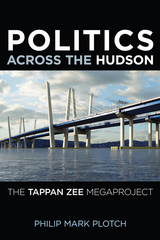 Politics Across the Hudson: The Tappan Zee Megaproject
Philip Mark Plotch
Rutgers University Press, 2015 The State of New York is now building one of the world’s longest, widest, and most expensive bridges—the new Tappan Zee Bridge—stretching more than three miles across the Hudson River, approximately thirteen miles north of New York City. In Politics Across the Hudson, urban planner Philip Plotch offers a behind-the-scenes look at three decades of contentious planning and politics centered around this bridge, recently renamed for Governor Mario M. Cuomo, the state's governor from 1983 to 1994. He reveals valuable lessons for those trying to tackle complex public policies while also confirming our worst fears about government dysfunction. Drawing on his extensive experience planning megaprojects, interviews with more than a hundred key figures—including governors, agency heads, engineers, civic advocates, and business leaders—and extraordinary access to internal government records, Plotch tells a compelling story of high-stakes battles between powerful players in the public, private, and civic sectors. He reveals how state officials abandoned viable options, squandered hundreds of millions of dollars, forfeited more than three billion dollars in federal funds, and missed out on important opportunities. Faced with the public’s unrealistic expectations, no one could identify a practical solution to a vexing problem, a dilemma that led three governors to study various alternatives rather than disappoint key constituencies. Politics Across the Hudson continues where Robert Caro’s The Power Broker left off and illuminates the power struggles involved in building New York’s first major new bridge since the Robert Moses era. Plotch describes how one governor, Andrew Cuomo, shrewdly overcame the seemingly insurmountable obstacles of onerous environmental regulations, vehement community opposition, insufficient funding, interagency battles, and overly optimistic expectations.
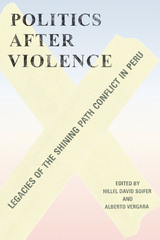 Politics after Violence: Legacies of the Shining Path Conflict in Peru
Edited by Hillel David Soifer and Alberto Vergara
University of Texas Press, 2019 Between 1980 and 1994, Peru endured a bloody internal armed conflict, with some 69,000 people killed in clashes involving two insurgent movements, state forces, and local armed groups. In 2003, a government-sponsored “Truth and Reconciliation Committee” reported that the conflict lasted longer, affected broader swaths of the national territory, and inflicted higher costs in both human and economic terms than any other conflict in Peru’s history. Of those killed, 75 percent were speakers of an indigenous language, and almost 40 percent were among the poorest and most rural members of Peruvian society. These unequal impacts of the violence on the Peruvian people revealed deep and historical disparities within the country. This collection of original essays by leading international experts on Peruvian politics, society, and institutions explores the political and institutional consequences of Peru’s internal armed conflict in the long 1980s. The essays are grouped into sections that cover the conflict itself in historical, comparative, and theoretical perspectives; its consequences for Peru’s political institutions; its effects on political parties across the ideological spectrum; and its impact on public opinion and civil society. This research provides the first systematic and nuanced investigation of the extent to which recent and contemporary Peruvian politics, civil society, and institutions have been shaped by the country’s 1980s violence.
 Politics against Domination
Ian Shapiro
Harvard University Press, 2016 Ian Shapiro makes a compelling case that the overriding purpose of politics should be to combat domination. Moreover, he shows how to put resistance to domination into practice at home and abroad. This is a major work of applied political theory, a profound challenge to utopian visions, and a guide to fundamental problems of justice and distribution.
“Shapiro’s insights are trenchant, especially with regards to the Citizens United decision, and his counsel on how the ‘status-quo bias’ in national political institutions favors the privileged. After more than a decade of imperial overreach, his restrained account of foreign policy should likewise find support.”
—Scott A. Lucas, Los Angeles Review of Books
“Shapiro has a brief and compelling section on the importance of hope in his first chapter. This book enacts and encourages hope, with its analytical clarity, deep engagement of complicated political issues that resist easy theorizing, and emphasis on the politically possible.”
—Kathleen Tipler, Political Science Quarterly
“Offers important insights for thinking about democracy’s prospects.”
—Christopher Hobson, Perspectives on Politics
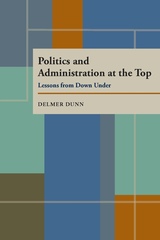 Politics and Administration at the Top: Lessons from Down Under
Delmer Dunn
University of Pittsburgh Press, 1997
Winner of the 1998 Charles Levine Award for best book on administration and policy
Dunn focuses on two levers of power in modern democracies, the elected party politician and the professional state bureaucrat, using Australia as his example. Dunn uses interviews with Cabinet ministers, members of their staffs, and department heads of two governments in Australia to see how ministers seek to provide political direction to the bureaucracy. He examines the extent to which they succeed and how their direction is both influenced by and acted on by the departments.
Dunn's analysis provides a rare look at high-level relationships between politicians and executive departments in one democratic government and offers insights into issues of accountability and responsibility in democratic governments. His findings, based on his in-depth look at a government that blends many features of both U.S. and British governments, reveal the fundamentals that are necessary to make this key relationship work well and are thus pertinent to public administration in all democracies.
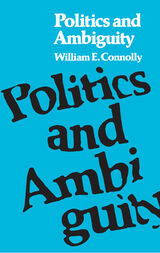 Politics and Ambiguity
William E. Connolly
University of Wisconsin Press, 1987 In a series of stimulating essays, William E. Connolly explores the element of ambiguity in politics. He argues that democratic politics in a modern society requires, if it is to flourish, an appreciation of the ambiguous character of the standards and principles we cherish the most. Connolly’s work, lucidly, presented and intellectually challenging, will be of interest to students and scholars of political science, philosophy, rhetoric, and law, and to all whose interests include the connections between contemporary epistemological arguments and politics and, more broadly, between thought and language.
Connolly criticizes the ways in which contemporary politics extends normalization into various areas of modern existence. He argues, against this trend, for an approach that would provide relief from the rigid identity formations that result from normalization.
In supporting his thesis, Connolly shows how the imperative for growth must be relaxed if normalizing pressures are to be obviated. His, however, is not the familiar antigrowth argument; rather, he ties his thesis to his general antinormalization argument, asking how one could create an ethic that would sustain itself when the growth imperatives are relaxed. Connolly’s chapters on the work of other thinkers (including Michel Foucault, Jürgen Habermas, Richard Rorty, and Charles Taylor) are linked with his main theme, as he shows how various tendencies in the philosophy of the social sciences and in political theory aid and abed the normalizing tendency.
His analyses of Rorty and Taylor are especially important. Connolly shows the significance of antifoundationalism (Rorty’s contribution to the debate on epistemology), while providing a compelling critique both of Rorty’s stance and Taylor's alternative to it.
Especially important to Connolly’s thesis is the ontology on which it rests. He shows how the endorsement of an ontology of discordance within concord—a view that all systems of meaning impose order on that which was not designed to fit neatly within them—can support a more democratizing process. His final chapter, “Where the Word Breaks Off,” vindicates the ontology of discordance, which has governed the argument throughout the text.
Throughout these essays, Connolly builds a consistent argument for the politicalization of normalization, disclosing forms of normalization where others have seen unproblematic modes of communication and problem solving. Original in concept and bold in presentation, Connolly’s work will form the basis for considerable debate in the several disciplines it serves.
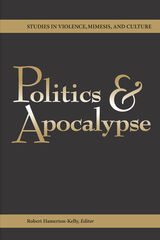 Politics and Apocalypse
Robert Hamerton-Kelly
Michigan State University Press, 2007 Apocalypse. To most, the word signifies destruction, death, the end of the world, but the literal definition is "revelation" or "unveiling," the basis from which renowned theologian René Girard builds his own view of Biblical apocalypse. Properly understood, Girard explains, Biblical apocalypse has nothing to do with a wrathful or vengeful God punishing his unworthy children, and everything to do with a foretelling of what future humans are making for themselves now that they have devised the instruments of global self-destruction. In this volume, some of the major thinkers about the interpretation of politics and religion— including Eric Voegelin, Leo Strauss, and Carl Schmitt— are scrutinized by some of today's most qualified scholars, all of whom are thoroughly versed in Girard’s groundbreaking work.
Including an important new essay by Girard, this volume enters into a philosophical debate that challenges the bona fides of philosophy itself by examining three supremely important philosopher of the twentieth century. It asks how we might think about politics now that the attacks of 9/11 have shifted our intellectual foundations and what the outbreak of rabid religion might signify for international politics.
 The Politics and Challenges of Achieving Health Equity
Alan B. Cohen, Colleen M. Grogan, and Jedediah Horwitt, special issue editors
Duke University Press, 2017 The existence of health inequities across racial, ethnic, gender, and class lines in the United States has been well documented. Less well understood have been the attempts of major institutions, health programs, and other public policy domains to eliminate these inequities. This issue, a collaboration with the Robert Wood Johnson Foundation Investigator Awards in Health Policy Research Program, brings together respected historians, political scientists, economists, sociologists, and legal scholars to focus on the politics and challenges of achieving health equity in the United States.
Articles in this issue address the historical, legal, and political contexts of health equity in the United States. Contributors examine the role of the courts in shaping health equity; document the importance of political discourse in framing health equity and establishing agendas for action; look closely at particular policies to reveal current challenges and the potential to achieve health equity in the future; and examine policies in both health and nonhealth domains, including state Medicaid programs, the use of mobile technology, and education and immigration policies. The issue concludes with a commentary on the future of health equity under the Trump administration and an analysis of how an ACA repeal would impact health equity.
Contributors. Alan B. Cohen, Keon L. Gilbert, Daniel Q. Gillion, Colleen M. Grogan, Mark A. Hall, Jedediah N. Horwitt, Tiffany D. Joseph, Alana M.W. LeBron, Julia F. Lynch, Jamila D. Michener, Vanessa Cruz Nichols, Francisco Pedraza, Isabel M. Perera, Rashawn Ray, Jennifer D. Roberts, Sara Rosenbaum, Sara Schmucker, Abigail A. Sewell, Deborah Stone, Keith Wailoo
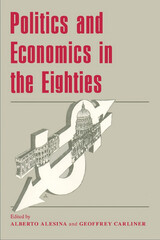 Politics and Economics in the Eighties
Edited by Alberto Alesina and Geoffrey Carliner
University of Chicago Press, 1991 Is the federal budget deficit a result of congressional deadlocks, gross miscalculation of economic trends, or a Republican strategy to tie the budgetary hands of future Democratic leadership? To what extend does the partisan split between Congress and the executive branch constrain the president's agenda? In this volume, political scientists and economists tackle these and many other contentious issues, offering a variety of analytical perspectives.
Certain to provoke controversy, this interdisciplinary volume brings together policy experts to provide a coherent analysis of the most important economic policy changes of the 1980s. Through a detailed examination of voting patterns, monetary and fiscal policies, welfare spending, tax reform, minimum wage legislation, the savings and loan collapse, and international trade policy, the authors explore how politics can influence the direction of economic policymaking.
Politics and Foreign Direct Investment
Nathan M. Jensen, Glen Biglaiser, Quan Li, Edmund Malesky, Pablo M. Pinto, Santiago M. Pinto, and Joseph L. Staats
University of Michigan Press, 2012 For decades, free trade was advocated as the vehicle for peace, prosperity, and democracy in an increasingly globalized market. More recently, the proliferation of foreign direct investment has raised questions about its impact upon local economies and politics. Here, seven scholars bring together their wide-ranging expertise to investigate the factors that determine the attractiveness of a locale to investors and the extent of their political power. Multinational corporations prefer to invest where legal and political institutions support the rule of law, protections for property rights, and democratic processes. Corporate influence on local institutions, in turn, depends upon the relative power of other players and the types of policies at issue.
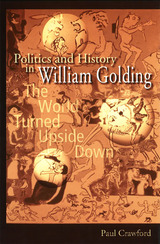 Politics and History in William Golding: The World Turned Upside Down
Paul Crawford
University of Missouri Press, 2002
Politics and History in William Golding provides a much needed politicized and historicized reading of William Golding’s novels as a counter to previous, universalizing criticism. Paul Crawford argues that an understanding of fantastic and carnivalesque modes in Golding’s work is vital if we are to appreciate fully his interrogation of twentieth-century life.
Golding’s early satirical novels question English constructions of national identity in opposition to Nazism and the “totalitarian personality.” For Crawford, Golding can and must be studied in the wider European tradition of “literature of atrocity.” His early novels, especially Lord of the Flies, are preoccupied with atrocity, whereas the later work betrays a greater concern for the status of language and literature.
In Golding’s later fiction, such as Darkness Visible, the fantastic and carnivalesque are used in an increasingly nonsatirical manner to complement first modernist and then postmodernist self-consciousness and indeterminacy. Even his critique of class and religious authority, which carries through all of his fiction, gives way to more lighthearted productions—a symptom of which is his crude, absurd attack against the English literary industry in The Paper Men. This reduction of satire marks a decline in Golding’s political commitment and the production of more complex and arguably less satisfying novels.
The fantastic and carnivalesque are foundational to both the satirical and nonsatirical approaches that mark Golding’s early and late fiction. No previous study has analyzed this structure that is so central to his work. Politics and History in William Golding examines this writer’s work more fully than it has been studied within the convoluted context of the last half of the twentieth century. Crawford directly links Golding’s various deployments of the fantastic and carnivalesque to historical, political, and social change.
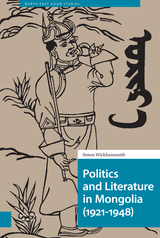 Politics and Literature in Mongolia (1921-1948)
Simon Wickhamsmith
Amsterdam University Press, 2020 Politics and Literature in Mongolia (1921-1948) investigates the relationship between literature and politics during Mongolia’s early revolutionary period. Between the 1921 socialist revolution and the first Writers’ Congress held in April 1948, the literary community constituted a key resource in the formation and implementation of policy. At the same time, debates within the party, discontent among the population, and questions of religion and tradition led to personal and ideological conflict among the intelligentsia and, in many cases, to trials and executions. Using primary texts, many of them translated into English for the first time, Simon Wickhamsmith shows the role played by the literary arts — poetry, fiction and drama — in the complex development of the ‘new society’, helping to bring Mongolia’s nomadic herding population into the utopia of equality, industrial progress and social well-being promised by the Mongolian People’s Revolutionary Party.
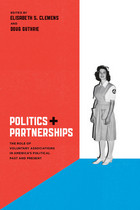 Politics and Partnerships: The Role of Voluntary Associations in America's Political Past and Present
Edited by Elisabeth S. Clemens and Doug Guthrie
University of Chicago Press, 2011 Exhorting people to volunteer is part of the everyday vocabulary of American politics. Routinely, members of both major parties call for partnerships between government and nonprofit organizations. These entreaties increase dramatically during times of crisis, and the voluntary efforts of ordinary citizens are now seen as a necessary supplement to government intervention.
But despite the ubiquity of the idea of volunteerism in public policy debates, analysis of its role in American governance has been fragmented. Bringing together a diverse set of disciplinary approaches, Politics and Partnerships is a thorough examination of the place of voluntary associations in political history and an astute investigation into contemporary experiments in reshaping that role. The essays here reveal the key role nonprofits have played in the evolution of both the workplace and welfare and illuminate the way that government’s retreat from welfare has radically altered the relationship between nonprofits and corporations.
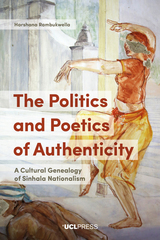 Politics and Poetics of Authenticity: A Cultural Genealogy of Sinhala Nationalism
Harshana Rambukwella
University College London, 2018 What is the role of cultural authenticity in the making of nations? Much scholarly and popular commentary on nationalism dismisses authenticity as a romantic fantasy or, worse, a deliberately constructed mythology used for political manipulation. The Politics and Poetics of Authenticity places authenticity at the heart of Sinhala nationalism in late-nineteenth and twentieth-century Sri Lanka. It argues that the passion for the "real" or the "authentic" has played a significant role in shaping nationalist thinking and argues for an empathetic yet critical engagement with the idea of authenticity.
Through a series of fine-grained and historically grounded analyses of the writings of individual figures central to the making of Sinhala nationalist ideology the book demonstrates authenticity’s rich and varied presence in Sri Lankan public life and its key role in understanding postcolonial nationalism in Sri Lanka and elsewhere in South Asia and the world. It also explores how notions of authenticity shape certain strands of postcolonial criticism and offers a way of questioning the nature of the nation as a unit of analysis but at the same time critically explore the deep imprint of nations and nationalisms on people’s lives.
Politics and Policies in Post-Communist Transition: Primary and Secondary Privatisation in Central Europe and the Former Soviet Union
Károly Attila Soós
Central European University Press, 2011 Discusses the policies, practices and outcomes of privatization in six transition economies: the Czech Republic, Hungary, Poland, Russia, Slovenia and Ukraine, paying particular attention to cross-country differences and to interrelations between the processes of privatisation and the political transition from communism to a new system.The analysis is restricted to the privatisation in those fields where its methods have been strongly different from privatisations in advanced market economies and where differences of privatisation principles and techniques among our six countries were also rather various. This is basically the privatisation of middle-sized and large enterprises, not including banks, non-bank financial companies, natural monopolies and agricultural entities.
 Politics and Policy in Traditional Korea
James B. Palais
Harvard University Press James B. Palais theorizes in his important book on Korea that the remarkable longevity of the Yi dynasty (1392–1910) was related to the difficulties the country experienced in adapting to the modern world. He suggests that the aristocratic and hierarchical social system, which was the source of stability of the dynasty, was also the cause of its weakness.
The period from 1864 to 1873 was one in which the monarchy attempted to increase and expand central power at the expense of the powerful aristocracy. But the effort failed, and 1874 saw a rebirth of bureaucratic and aristocratic dominance. What this meant when Korea was “opened” two years later to the outside world was that the country was poorly suited to the attainment of modern national objectives—the aggrandizement of state wealth and power—in competition with other nations. Thus any sense of national purpose was subverted, and the leadership could not generate the unified support needed for either modernization or domestic harmony. The consequences for the twentieth-century world have been portentous.
 Politics and Policy in Traditional Korea
James B. Palais
Harvard University Press, 1975 James B. Palais theorizes in his important book on Korea that the remarkable longevity of the Yi dynasty (1392–1910) was related to the difficulties the country experienced in adapting to the modern world. He suggests that the aristocratic and hierarchical social system, which was the source of stability of the dynasty, was also the cause of its weakness.
The period from 1864 to 1873 was one in which the monarchy attempted to increase and expand central power at the expense of the powerful aristocracy. But the effort failed, and 1874 saw a rebirth of bureaucratic and aristocratic dominance. What this meant when Korea was “opened” two years later to the outside world was that the country was poorly suited to the attainment of modern national objectives—the aggrandizement of state wealth and power—in competition with other nations. Thus any sense of national purpose was subverted, and the leadership could not generate the unified support needed for either modernization or domestic harmony. The consequences for the twentieth-century world have been portentous.
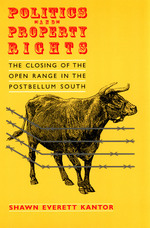 Politics and Property Rights: The Closing of the Open Range in the Postbellum South
Shawn Everett Kantor
University of Chicago Press, 1998 After the American Civil War, agricultural reformers in the South called for an end to unrestricted grazing of livestock on unfenced land. They advocated the stock law, which required livestock owners to fence in their animals, arguing that the existing system (in which farmers built protective fences around crops) was outdated and inhibited economic growth. The reformers steadily won their battles, and by the end of the century the range was on the way to being closed.
In this original study, Kantor uses economic analysis to show that, contrary to traditional historical interpretation, this conflict was centered on anticipated benefits from fencing livestock rather than on class, cultural, or ideological differences. Kantor proves that the stock law brought economic benefits; at the same time, he analyzes why the law's adoption was hindered in many areas where it would have increased wealth. This argument illuminates the dynamics of real-world institutional change, where transactions are often costly and where some inefficient institutions persist while others give way to economic growth.
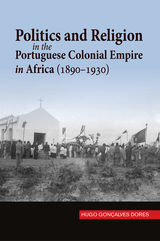 Politics and Religion in the Portuguese Colonial Empire in Africa (1890–1930)
Hugo Gonçalves Dores
Sussex Academic Press, 2022 The Portuguese authorities balanced missionary and political dynamics as they sought to strengthen their claims over African territories in an imperial and colonial world that was becoming increasingly internationalized. This book sets out to investigate how missionary authorities reacted to national challenges from the monarchical and republican regimes, and rising competition within the Catholic world, as well as the “Protestant threat”, at the international level. To what degree were religious and missionary projects a political instrument? Was this situation similar in other colonial empires?
The 1890 British Ultimatum was part of a process of conflicting religious competition in Africa (among Catholics, and between Catholics and Protestants) in parallel with inter-imperial disputes. The Portuguese authorities saw missionary presence as a potentially useful political weapon, but it cut two ways: in favour of or against its colonial rule. Foreigner missionaries in what was considered the Portuguese empire were viewed as “threats” since they could act as political bridgeheads for other imperial powers or could influence the native populations against Portuguese colonial presence. Anglo-Portuguese competition in Africa, the “native” uprisings against Portuguese rule, the attempts to negotiate a concordat with the Holy See, the Portuguese First Republic, and the aftermath of the First World War had powerful effects on the direction of Portuguese statehood, and were reflected in substantive internal debate and political disagreement.
The overview of missionary experience in the Portuguese empire provided in this book is a major contribution to the international historiography of missions and empires.
Politics and Scholarship: Feminist Academic Journals and the Production of Knowledge
Patrice McDermott
University of Illinois Press, 1994 "Well argued and documented, Politics and Scholarship is a fascinating reading of a broader historical perspective of feminist concerns than just the three journals of focus: Feminist Studies, Frontiers, and Signs. The author's historical framework establishes an important overview that should have greater visibility."
-- J'nana Morse Sellery, coauthor of Elizabeth Bowen: A Bibliography
 Politics and Sinology: The Case of Naito Konan, 1866-1934
Joshua A. Fogel
Harvard University Press, 1984 Naito Konan's periodization of Chinese history is responsible for shaping the twentieth-century Western view of China. Naito was a journalist in the vibrant Meiji press for twenty years, during which he became recognized as Japan's leading Sinologist. He then assumed a chair in China Studies at Kyoto University, where he taught for twenty years, remaining all the while a prolific writer on public affairs. Joshua Fogel's biography treats Naito holistically, pointing up the intricate connections between his Sinological and political interests.
As a part of an ongoing tradition based in jitsugaku (concern with the practical applications of knowledge), Naito focused on what he took to be Japan's mission, after its own Meiji reforms, to help China implement comparable reforms. His emphasis on Chinese history and culture as the central influence in East Asia strengthened his Pan-Asian political convictions.
Fogel's study offers a penetrating look at a scholar-journalist whose influence, fifty years after his death, is still powerful.
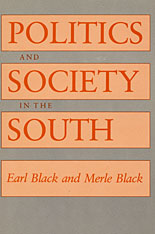 Politics and Society in the South
Earl Black and Merle Black
Harvard University Press, 1987 This wide-ranging examination of the “newest” South is a leading candidate to replace the classic work by V. O. Key, now two generations old. Politics and Society in the South is a systematic interpretation of the most important national and state tendencies in southern politics since 1920. The authors begin by describing the salient features of the old southern politics, against which they then depict the emergence of the new South: the changing composition of the population, the growth of industry and cities, economic diversification, and the rise of an urban middle class. A major component of the greatest southern transformation since the Civil War is the altered status of blacks from a disfranchised underclass to a franchised citizenry, a change that the authors discuss in all its ramifications. The decline of the Democratic Party is charted and related to the rise of the black vote and the transitional attitudes of white southerners. Finally, regional trends in presidential, senatorial, and gubernatorial politics are set forth, and the overall political directions that are still reshaping southern politics and creating a two-party system for the first time are defined.
The authors contend that, notable improvements in race relations notwithstanding, the central tendencies in southern politics are primarily established by the values, beliefs, and objectives of the expanding white urban middle class. This is the crucible for a more competitive two-party politics that is emerging in the South.
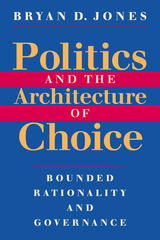 Politics and the Architecture of Choice: Bounded Rationality and Governance
Bryan D. Jones
University of Chicago Press, 2001 Politics and the Architecture of Choice draws on work in political science, economics, cognitive science, and psychology to offer an innovative theory of how people and organizations adapt to change and why these adaptations don't always work. Our decision-making capabilities, Jones argues, are both rational and adaptive. But because our rationality is bounded and our adaptability limited, our actions are not based simply on objective information from our environments. Instead, we overemphasize some factors and neglect others, and our inherited limitations—such as short-term memory capacity—all act to affect our judgment.
Jones shows how we compensate for and replicate these limitations in groups by linking the behavioral foundations of human nature to the operation of large-scale organizations in modern society. Situating his argument within the current debate over the rational choice model of human behavior, Jones argues that we should begin with rationality as a standard and then study the uniquely human ways in which we deviate from it.
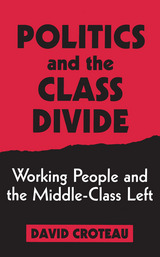 Politics and the Class Divide: Working People and the Middle Class Left
David Croteau
Temple University Press, 1994 Finalist for Transformational Politics Book Award, American Political Science Association, 1996
"In this useful introduction to the connection between social class and political participation in the modern United States, David Croteau explores the 'class divide' separating middle-class activism and working-class non-participation in left political and social movements."
--Labour History Review
"People don't believe they have a say anymore, so they've given up."
That's the cynical conclusion of one worker in this study of the relationships between working people and the middle-class left. This rare accessible book on class differences in American life examines the impact of class status on an individual's participation--or non-participation--in the political process.
Focusing on the relative absence of white working-class involvement in many contemporary U.S. liberal and left social movements, David Croteau goes straight to the source: members of the working class and activists in the environmental, peace, women's, and other social movements. Croteau rejects standard assumptions that apathy or simple conservatism explain working-class nonparticipation. Instead, he highlights the role of class-based resources and explores how varying cultural "tools" developed in different classes are more or less helpful in navigating and influencing the existing political environment. Commonly, he finds, the result is a middle-class sense of power and entitlement and a working-class sense of powerlessness and fatalism.
Contemplating the future of social movements, he explores how lack of diversity hurts the effectiveness of what have become isolated middle-class movements, and proposes solutions that would increase the future political participation of working people in social movements.
 Politics and the Constitution in the History of the United States
William W. Crosskey
University of Chicago Press, 1980 When the first two volumes of William Crosskey's monumental study of the Constitution appeared in 1953, Arthur M. Schlesinger called it "perhaps the most fertile commentary on that document since The Federalist papers." It was highly controversial as well. The work was a comprehensive reassessment of the meaning of the Constitution, based on examination of eighteenth-century usages of key political and legal concepts and terms. Crosskey's basic thesis was that the Founding Fathers truly intended a government with plenary, nationwide powers, and not, as in the received views, a limited federalism.
This third volume of Politics and the Constitution, which Crosskey began and William Jeffrey has finished, treats political activity in the period 1776-87, and is in many ways the heart of the work as Crosskey conceived it. In support of the lexicographic analysis of volumes 1 and 2, volume 3 shows that nationalist ideas and sentiments were a powerful force in American public opinion from the Revolution to the eve of the Constitutional Convention. The creation of a generally empowered national government in Philadelphia, it is argued, was the fruition of a long-active political movement, not the unintended or accidental result of a temporary conservative coalition.
This view of the political background of the Constitutional Convention directly challenges the Madisonian-Jeffersonian orthodoxy on the subject. In support of his interpretation, Crosskey amassed a wealth of primary source materials, including heretofore unexplored pamphlets and newspapers. This exhaustive research makes this unique work invaluable for scholars of the period, both for the primary sources collected as well as for the provocative interpretation offered.
Politics and the Constitution in the History of the United States, Volumes 1 and 2
William W. Crosskey
University of Chicago Press, 1953 This view of the political background of the Constitutional Convention directly challenges the Madisonian-Jeffersonian orthodoxy on the subject. In support of his interpretation, Crosskey amassed a wealth of primary source materials, including heretofore unexplored pamphlets and newspapers. This exhaustive research makes this unique work invaluable for scholars of the period, both for the primary sources collected as well as for the provocative interpretation offered.
Politics and the Human Body: Assault on Dignity
Jean Bethke Elshtain
Vanderbilt University Press, 1995 Who or what determines the right to die? Do advancing reproductive technologies change reproductive rights? What forces influence cultural standards of beauty? How do discipline, punishment, and torture reflect our attitudes about the human body?
In this challenging new book, Jean Bethke Elshtain, a nationally recognized scholar in political science and philosophy, and J. Timothy Cloyd, a strong new voice in social and political science, have assembled a collection of thought-provoking essays on these issues written by some of the finest minds of our day.
Politics and the Muse: Studies in the Politics of Recent American Literature
Adam J. Sorkin
University of Wisconsin Press, 1989 These fourteen original essays on the politics of literature investigate aspects of our understanding of the political muse, with a focus on American writing since World War II. Essays include: “American Literature, Politics, and the Last Good War,” “The Literary Art of the Hollywood Ten,” “The Plight of the Left-Wing Screenwriter,” and “Amiri Baraka and the Politics of Popular Culture.”
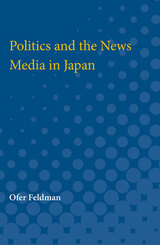 Politics and the News Media in Japan
Ofer Feldman
University of Michigan Press, 1993 Written by a longtime resident of Japan, Politics and the News Media in Japan describes and analyzes political communication in Japan with a particular focus on the relationship between the news media and politicians.In this pioneering work, Ofer Feldman shows how the close connection between reporters and members of the Japanese National Diet influences the coverage of politics in the media and how the news media and reporters function as information sources for Diet members. The author discusses the importance of the national dailies in Japanese political life; reporters' work patterns and their formal and informal interaction with political news sources; the objectives reporters and politicians have vis-à-vis one another; and how Japanese cultural factors affect the role reporters play in politics.This volume fills a serious gap in the literature on the Japanese media and its role in the political system by focusing on the structure and process of news-gathering by Japanese reporters. It is the first work based on a survey of rank-and-file members of the Japanese National Diet; newsmen and editors of national and local newspapers, news agencies, and broadcast media; political party officials; and secretaries to Diet members. It will appeal especially to those interested in comparative politics, comparative mass communication, and Japanese studies.
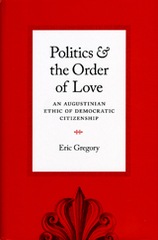 Politics and the Order of Love: An Augustinian Ethic of Democratic Citizenship
Eric Gregory
University of Chicago Press, 2008 Augustine—for all of his influence on Western culture and politics—was hardly a liberal. Drawing from theology, feminist theory, and political philosophy, Eric Gregory offers here a liberal ethics of citizenship, one less susceptible to anti-liberal critics because it is informed by the Augustinian tradition. The result is a book that expands Augustinian imaginations for liberalism and liberal imaginations for Augustinianism.
Gregory examines a broad range of Augustine’s texts and their reception in different disciplines and identifies two classical themes which have analogues in secular political theory: love—and related notions of care, solidarity, and sympathy—and sin—as well as related notions of cruelty, evil, and narrow self-interest. From an Augustinian point of view, Gregory argues, love and sin constrain each other in ways that yield a distinctive vision of the limits and possibilities of politics.
In providing a constructive argument for Christian participation in liberal democratic societies, Gregory advances efforts to revive a political theology in which love’s relation to justice is prominent. Politics and the Order of Love will provoke new conversations for those interested in Christian ethics, moral psychology, and the role of religion in a liberal society.
Politics and War: European Conflict from Philip II to Hitler, Enlarged Edition
David Kaiser
Harvard University Press David Kaiser looks at four hundred years of modern European history to find the political causes of general war in four distinct periods (1559–1659, 1661–1713, 1792–1815, and 1914–1945). He shows how war became a natural function of politics, a logical consequence of contemporary political behavior. Rather than fighting simply to expand, states in each war fought for specific political and economic reasons. The book illustrates the extraordinary power of politics and war in modern Western civilization, if not in history as a whole.
In a provocative and original new preface and chapter, Kaiser shows which aspects of four past areas of conflict do, and do not, seem relevant to the immediate future, and he sketches out some new possibilities for Europe.
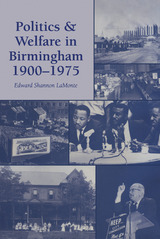 Politics and Welfare in Birmingham, 1900–1975
Edward Shannon LaMonte
University of Alabama Press, 1995 This well-written volume explores the relationships between politics and welfare programs for low-income residents in Birmingham during four periods in the twentieth century: • 1900-1917, the formative period of city building when welfare was predominantly a responsibility of the private sector; • 1928-1941, when the Great Depression devastated the local economy and federal intervention became the principal means of meeting human need; • the mid 1950s, when the lasting impacts of the New Deal could be assessed and when matters of race relations became increasingly significant; • 1962-1975, when an intense period of local government reform, the Civil Rights movement, federal intervention in the form of the War on Poverty, and increasing demands for citizen participation all reinforced one another.
From the time of its founding in 1871, Birmingham has had a biracial population, so the theme of race relations runs naturally throughout the narrative. LaMonte pays particular attention to those efforts to achieve a more harmonious biracial community, including the failed effort to establish an Urban League in the 1940s, the progressive activities of the Community Chest’s Interracial Division in the 1950s, which were abruptly terminated, and the dramatic events of the Civil Rights Movement in the 1960s, when local events were elevated to international significance.
Politics as a Moral Problem
János Kis
Central European University Press, 2008 In a world where politics is often associated with notions such as moral decay, frustration and disappointment, the feeling of betrayal, and of democracy in trouble, Kis examines theories about the morality of political action. Amending the two classical theses of realism and of indirect motivation in politics, Kis argues for a constrained thesis of realism and a wide thesis of indirect motivation. By these means the place of moral motivation and common deliberation can be identified, and political agents can be held morally accountable. The analysis refers to a broad range of classic and contemporary literature as well as to recent cases from international politics which call for moral judgment. The Appendix is dedicated to Václav Havel’s seminal essay on “The Power of the Powerless,” which sheds light on the diversity of approaches dissident intellectuals have taken to politics.
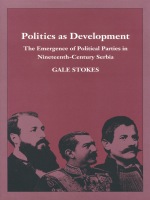 Politics as Development: The Emergence of Political Parties in Nineteenth-Century Serbia
Gale Stokes
Duke University Press, 1990 Nineteenth-century Serbia was an economically and socially backward country with an urban population of approximately 3 percent and a literacy rate in the countryside of less than 10 percent. Still, during that century it created a functioning democracy with a constitution, independent courts, political parties, and civil liberties. The Serbian experience challenges the view that political structures fundamentally depend on socioeconomic ones, since Serbia created a modern political system without developing economically. Politics as Development analyzes one aspect of that process, the emergence of political parties in the 1870s and the 1880s, especially the creation of the Serbian Radical Party under the leadership of Nikola Pasic. By mobilizing the peasantry through organizing the countryside, the Radicals proved themselves the most original nineteenth-century Balkan political movement. Based on thorough research of primary documents, Stokes’s study supports the view that the state and its attending class constitute an independent variable in the developmental process.
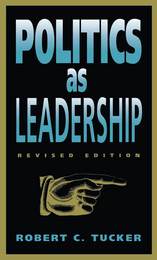 Politics as Leadership: Revised Edition
Robert C. Tucker
University of Missouri Press, 1995 Robert C. Tucker begins this invaluable book with an analytical look at politics, leadership, and the effect each has on the other. Aligning himself with Plato's view of politics as leadership, Tucker argues that politics is more usefully defined from this perspective than from the more familiar stance of the exercise of power. He maintains leaders must define collective problems, prescribe actions or policies, and finally seek support for their diagnoses and policy prescriptions. Tucker contends that political science must take account not only of leadership by those in state authority, but also of sociopolitical movements for change as vehicles of attempted leadership of political communities. Dividing such movements into those for reform and those for revolution, he illustrates this distinction with examples, including Martin Luther King Jr. as a reform leader and Lenin as a revolutionary one. Finally, Tucker raises a central question of his study: how can leadership save humankind from itself in the troubled world of today? In an insightful and moving discussion of what he calls the "crisis syndrome," Tucker analyzes problems such as population growth, resource depletion, and environmental degradation with respect to leadership. He argues that the current political process has focused on the immediate present while ignoring crises with far-reaching implications that require tough solutions. In the epilogue to this revised edition, Tucker draws on his expertise as a Russian specialist, extending the book's discussion of leadership by viewing Mikhail Gorbachev as a reform leader in Soviet Russia and Boris Yeltsin as a post-Soviet Russian leader. Tucker also readdresses the "crisis syndrome" by examining leaders' responses in the 1980s and early 1990s. Tucker's incisive reasoning, original insights, and commentary on the theory and practice of politics should make this revised edition of Politics as Leadership equally valuable and fascinating for experts in the field of political science and for concerned citizens.
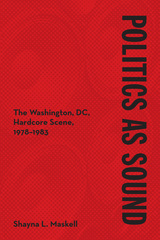 Politics as Sound: The Washington, DC, Hardcore Scene, 1978-1983
Shayna L. Maskell
University of Illinois Press, 2021 Uncompromising and innovative, hardcore punk in Washington, DC, birthed a new sound and nurtured a vibrant subculture aimed at a specific segment of the city's youth. Shayna L. Maskell explores DC's hardcore scene during its short but storied peak. Led by bands like Bad Brains and Minor Threat, hardcore in the nation's capital unleashed music as angry and loud as it was fast and minimalistic. Maskell examines the music's aesthetics and the unique impact of DC's sociopolitical realities on the sound and the scene that emerged. As she shows, aspects of the music's structure merged with how bands performed it to put across distinctive representations of race, class, and gender. But those representations could be as complicated and contradictory as they were explicit. A fascinating analysis of a punk rock hotbed, Politics as Sound tells the story of how a generation created music that produced--and resisted--politics and power.
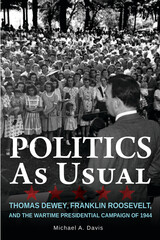 Politics as Usual: Thomas Dewey, Franklin Roosevelt, and the Wartime Presidential campaign of 1944
Michael A. Davis
Northern Illinois University Press, 2014 The presidential election of 1944, which unfolded against the backdrop of the World War II, was the first since 1864—and one of only a few in all of US history—to take place while the nation was at war. After a brief primary season, the Republican Party settled upon New York governor Thomas E. Dewey, the former district attorney and popular special prosecutor of Legs Diamond and Lucky Luciano, as its nominee for president of the United States. The Democratic nominee for president, meanwhile, was the three-term incumbent, sixty-two year-old Franklin Delano Roosevelt. Sensitive to the wartime setting of the election, both Roosevelt and Dewey briefly adopted dignified and low-key electoral strategies early in their campaigns. Within a few months however, “politics as usual” returned as the campaign degenerated into a vigorously fought, chaotic, unpredictable, and highly competitive contest.
While Politics as Usual is a comprehensive study of the campaign, Davis focuses attention on the loser, Dewey, and shows how he emerged as a central figure for the Republican Party. Davis examines the political landscape in the United States in the early 1940s, including the state of the two parties, and the rhetoric and strategies employed by both the Dewey and Roosevelt campaigns. He details the survival of partisanship in World War II America and the often overlooked role of Dewey—who sought to rebuild the Republican Party “to be worthy of national trust”—as party leader at such a critical time. Although Dewey fell short of victory, Dewey kept his party unified, helped steer it away from isolationist influences, and rebuilt it to fit into (and to be a relevant alternative within) the post-World War II, New Deal order.
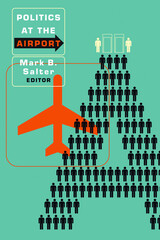 Politics at the Airport
Mark B. Salter
University of Minnesota Press, 2008 Establishes the airport as a crucial site in the rise of the surveillance state Few sites are more symbolic of both the opportunities and vulnerabilities of contemporary globalization than the international airport. Politics at the Airport brings together leading scholars to examine how airports both shape and are shaped by current political, social, and economic conditions. Focusing on the ways that airports have become securitized, the essays address a wide range of practices and technologies—from architecture, biometric identification, and CCTV systems to “no-fly lists” and the privatization of border control—now being deployed to frame the social sorting of safe and potentially dangerous travelers. This provocative volume broadens our understanding of the connections among power, space, bureaucracy, and migration while establishing the airport as critical to the study of politics and global life.Contributors: Peter Adey, Colin J. Bennett, Gillian Fuller, Francisco R. Klauser, Gallya Lahav, David Lyon, Benjamin J. Muller, Valérie November, Jean Ruegg.
 Politics by Formula: How Congressional Policymaking Creates Disparities
Leah Rosenstiel
University of Chicago Press A clear-eyed study that reveals how politics shapes and often distorts important federal programs, driving inequalities across states. From Medicaid to Section 8 Housing Choice Vouchers, a large percentage of the annual US federal budget (approximately $1 trillion) is distributed through grants-in-aid, a policy tool that allocates aid to state and local governments rather than to individual Americans. When members of Congress use grants-in-aid to fund healthcare, housing, and other forms of support, they are not solely determining how much assistance one person receives. Instead, they can allot certain localities larger grants, which carry big implications for the quality of public services available to citizens living in different states. Many reasonably assume that these assistance programs distribute funding to states impartially because they use statistical formulas based on population levels, poverty, and other characteristics that, ostensibly, measure need. However, in Politics by Formula, Leah Rosenstiel shows how this seemingly technocratic aspect of federal policymaking is deeply affected by both the structure of political institutions and the motivations of elected officials. Key congressional committees—and especially their leaders—design formulas to benefit their constituencies. Superficially neutral formulas can shield these political decisions from scrutiny, but formulas also constrain congressmembers. Drawing on formal modeling and quantitative and qualitative evidence, Rosenstiel elucidates how these dynamics shape whose and what needs are met and where.
Politics by Humans: Research on American Leadership
James David Barber
Duke University Press James David Barber's research on leadership, particularly the phenomenon of the American presidency, has become legendary for both its insight and wit. Politics by Humans presents some of this most original and seminal products of his scholarship.
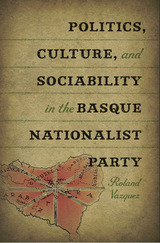 Politics, Culture, and Sociability in the Basque Nationalist Party
Roland Vazquez
University of Nevada Press, 2010 Until now, social scientists studying Spanish politics have focused on party systems, regime transition, and election analysis, and anthropologists studying Spain have largely neglected its political parties. This book is a pathbreaking work of political anthropology and an ethnographic study of the Basque Nationalist Party (PNV). Author Roland Vazquez studies Basque nationalism as not merely a political phenomenon but as a cultural and social one as well. He examines the forces that have shaped the Basque political panorama, the nature of Basque political campaigns, Basque cultural and social movements both inside and outside the explicitly partisan milieu, and the role of other parties in the Basque Country. The study is enhanced by extensive interviews and broad fieldwork among Basque contacts of diverse backgrounds and loyalties. The result is a vivid portrait of political life in the contemporary Basque Country, of the tensions between various nationalist parties and philosophies, and of the way politics are influenced by Basque notions of community, social connections, and national identity. The book also serves as a model for studies of other political and nationalist movements and the cultural and social ties and values that drive them.
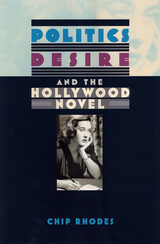 Politics, Desire, and the Hollywood Novel
Chip Rhodes
University of Iowa Press, 2008 The story of what happens when a serious writer goes to Hollywood has become a cliché: the writer is paid well but underappreciated, treated like a factory worker, and forced to write bad, formulaic movies. Most fail, become cynical, drink to excess, and at some point write a bitter novel that attacks the film industry in the name of high art. Like many too familiar stories, this one neither holds up to the facts nor helps us understand Hollywood novels. Instead, Chip Rhodes argues, these novels tell us a great deal about the ways that Hollywood has shaped both the American political landscape and American definitions of romance and desire.
Rhodes considers how novels about the film industry changed between the studio era of the 1930s and 1940s and the era of deregulated film making that has existed since the 1960s. He asserts that Americans are now driven by cultural, rather than class, differences and that our mainstream notion of love has gone from repressed desire to “abnormal desire” to, finally, strictly business.
Politics, Desire, and the Hollywood Novel pays close attention to six authors—Nathanael West, Raymond Chandler, Budd Schulberg, Joan Didion, Bruce Wagner, and Elmore Leonard—who have toiled in the film industry and written to tell about it. More specifically, Rhodes considers both screenplays and novels with an eye toward the different formulations of sexuality, art, and ultimately political action that exist in these two kinds of storytelling.
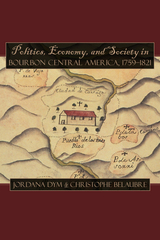 Politics, Economy, and Society in Bourbon Central America, 1759-1821
Jordana Dym
University Press of Colorado, 2007 Politics, Economy, and Society in Bourbon Central America, 1759-1821 examines how the Spanish policies known broadly as the Bourbon Reforms affected Central American social, economic, and political institutions. Although historians have devoted significant attention to the purpose and impact of these reforms in Spain and some of Spain's other New World colonies, this book is the first to explore their impact on Central America.
These reforms profoundly changed aspects of Central America's politics and society; however, these essays reveal that changes in the region were shaped both internally and externally and that they weakened the region's ties to metropolitan Spain as often as they reinforced them. Contributors focus on specific policy changes and their consequences as well as transformations throughout the region for which no direct Bourbon inspiration appears to be responsible. Together they demonstrate that whether or not the Crown achieved its primary goals of centralization and control, its policies nevertheless provided opportunities for evident, often subtle, and occasionally unintentional shifts in the colonial government's relationship to its constituent populations. Contributors include Christophe Belaubre, Michel Bertrand, Jordana Dym, Jorge H. González, Timothy Hawkins, Sajid Alfredo Herrera, Gustavo Palma, Eugenia Rodriguez, Doug Tompson, and Stephen Webre.
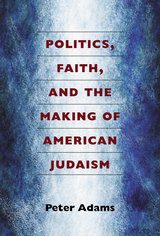 Politics, Faith, and the Making of American Judaism
Peter Adams
University of Michigan Press, 2014 In 1862, in the only instance of a Jewish expulsion in America, General Ulysses S. Grant banished Jewish citizens from the region under his military command. Although the order was quickly revoked by President Lincoln, it represented growing anti-Semitism in America. Convinced that assimilation was their best defense, Jews sought to Americanize by shedding distinctive dress, occupations, and religious rituals. American Jews recognized the benefit and urgency of bridging the divide between Reform and Orthodox Judaism to create a stronger alliance to face the challenges ahead. With Grant’s 1868 presidential campaign, they also realized they could no longer remain aloof from partisan politics. As they became a growing influence in American politics, both political parties courted the new Jewish vote. Once in office, Grant took notice of the persecution of Jews in Romania and Russia, and he appointed more Jews to office than any president before him. Indeed, Simon Wolf, a Washington lawyer who became one of Grant’s closest advisers, was part of a new generation of Jewish leaders to emerge in the post–Civil War era—thoroughly Americanized, politically mature, and committed to the modernized Judaism of the Reform movement. In Politics, Faith, and the Making of American Judaism, Peter Adams recounts the history of the American Jewish Community’s assimilation efforts, organization, and political mobilization in the late 19th century, as political and cultural imperatives crafted a new, American brand of Judaism.
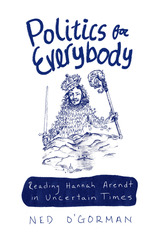 Politics for Everybody: Reading Hannah Arendt in Uncertain Times
Ned O'Gorman
University of Chicago Press, 2020 In this age of nearly unprecedented partisan rancor, you’d be forgiven for thinking we could all do with a smaller daily dose of politics. In his provocative and sharp book, however, Ned O’Gorman argues just the opposite: Politics for Everybody contends that what we really need to do is engage more deeply with politics, rather than chuck the whole thing out the window. In calling for a purer, more humanistic relationship with politics—one that does justice to the virtues of open, honest exchange—O’Gorman draws on the work of Hannah Arendt (1906–75). As a German-born Jewish thinker who fled the Nazis for the United States, Arendt set out to defend politics from its many detractors along several key lines: the challenge of separating genuine politics from distorted forms; the difficulty of appreciating politics for what it is; the problems of truth and judgment in politics; and the role of persuasion in politics. O’Gorman’s book offers an insightful introduction to Arendt’s ideas for anyone who wants to think more carefully
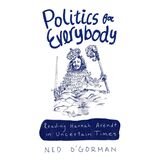 Politics for Everybody: Reading Hannah Arendt in Uncertain Times
Ned O'Gorman
University of Chicago Press, 2020 This is an auto-narrated audiobook edition of this book. In this age of nearly unprecedented partisan rancor, you’d be forgiven for thinking we could all do with a smaller daily dose of politics. In his provocative and sharp book, however, Ned O’Gorman argues just the opposite: Politics for Everybody contends that what we really need to do is engage more deeply with politics, rather than chuck the whole thing out the window. In calling for a purer, more humanistic relationship with politics—one that does justice to the virtues of open, honest exchange—O’Gorman draws on the work of Hannah Arendt (1906–75). As a German-born Jewish thinker who fled the Nazis for the United States, Arendt set out to defend politics from its many detractors along several key lines: the challenge of separating genuine politics from distorted forms; the difficulty of appreciating politics for what it is; the problems of truth and judgment in politics; and the role of persuasion in politics. O’Gorman’s book offers an insightful introduction to Arendt’s ideas for anyone who wants to think more carefully
 Politics for People: Finding a Responsible Public Voice
David Mathews
University of Illinois Press, 1999 A must for anyone angry at being shut out of the political system. David Mathews points out that many Americans, making no secret of their anger at being shut out of the political system, are looking for ways to take that system back. Because of their low opinion of "politics as usual," Mathews believes, some people are trying to create a politics relevant to their everyday lives. These efforts give us a richer understanding of political life and of a much-neglected subject: the public. In Politics for People, Mathews describes how people become politically engaged, how they build civic communities, and how they generate political energy or public will. He argues that political discussion is the doorway into politics, and he makes a case for leavening partisan debate with more public dialogue. He then explains what a democratic citizenry must do if representative government is to perform effectively, and he shows how officials might work with, and not just for, the public.
Politics, Gender, and the Mexican Novel, 1968-1988: Beyond the Pyramid
By Cynthia Steele
University of Texas Press, 1992 The student massacre at Tlatelolco in Mexico City on October 2, 1968, marked the beginning of an era of rapid social change in Mexico. In this illuminating study, Cynthia Steele explores how the writers of the next two decades responded to the massacre and to the social crisis it signaled in terms of political change and gender identity.
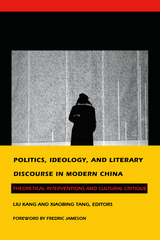 Politics, Ideology, and Literary Discourse in Modern China: Theoretical Interventions and Cultural Critique
Kang Liu and Xiaobing Tang, eds.
Duke University Press, 1993 This collection of essays addresses the perception that our understanding of modern China will be enhanced by opening the literature of China to more rigorous theoretical and comparative study. In doing so, the book confronts the problematic and complex subject of China's literary, theoretical, and cultural responses to the experience of the modern. With chapters by writers, scholars, and critics from mainland China, Hong Kong, and the United States, this volume explores the complexity of representing modernity within the Chinese context. Addressing the problem of finding a proper language for articulating fundamental issues in the historical experience of twentieth-century China, the authors critically re-examine notions of realism, the self/subject, and modernity and draw on perspectives from feminist criticism, ideological analysis, and postmodern theory. Among the many topics explored are subjectivity in Chinese cultural theory, Chinese gender relations, the viability of a Lacanian approach to Chinese identity, the politics of subversion in Chinese reportage, and the ambivalent status of the icon of paternity since Mao. At the same time this book offers a probing look into the transformation that Chinese culture as well as the study of that culture is currently undergoing, it also reconfirms private discourse as an ideal site for an investigation into a real and imaginary, private and collective encounter with history. Contributors. Liu Kang, Xiaobing Tang, Liu Zaifu, Stephen Chan, Lydia H. Liu, Wendy Larson, Theodore Huters, David Wang, Tonglin Lu, Yingjin Zhang, Yuejin Wang, Li Tuo, Leo Ou-fan Lee
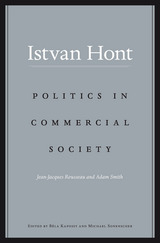 Politics in Commercial Society: Jean-Jacques Rousseau and Adam Smith
Istvan Hont
Harvard University Press, 2015 Scholars normally emphasize the contrast between the two great eighteenth-century thinkers Jean-Jacques Rousseau and Adam Smith. Rousseau is seen as a critic of modernity, Smith as an apologist. Istvan Hont, however, finds significant commonalities in their work, arguing that both were theorists of commercial society and from surprisingly similar perspectives.
In making his case, Hont begins with the concept of commercial society and explains why that concept has much in common with what the German philosopher Immanuel Kant called unsocial sociability. This is why many earlier scholars used to refer to an Adam Smith Problem and, in a somewhat different way, to a Jean-Jacques Rousseau Problem. The two problems—and the questions about the relationship between individualism and altruism that they raised—were, in fact, more similar than has usually been thought because both arose from the more fundamental problems generated by thinking about morality and politics in a commercial society. Commerce entails reciprocity, but a commercial society also entails involuntary social interdependence, relentless economic competition, and intermittent interstate rivalry. This was the world to which Rousseau and Smith belonged, and Politics in Commercial Society is an account of how they thought about it.
Building his argument on the similarity between Smith’s and Rousseau’s theoretical concerns, Hont shows the relevance of commercial society to modern politics—the politics of the nation-state, global commerce, international competition, social inequality, and democratic accountability.
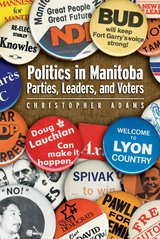 Politics in Manitoba: Parties, Leaders, and Voters
Christopher Adams
University of Manitoba Press, 2008 Politics in Manitoba is the first comprehensive review of the Manitoba party system that combines history and contemporary public opinion data to reveal the political and voter trends that have shaped the province of Manitoba over the past 130 years. The book details the histories of the Progressive Conservatives, the Liberals, and the New Democratic Party from 1870 to 2007. Adams looks in particular at the enduring influence of political geography and political culture, as well as the impact of leadership, campaign strategies, organizational resources, and the media on voter preferences. Adams also presents here for the first time public opinion data based on more than 25,000 interviews with Manitobans, conducted between 1999 and 2007. He analyzes voter age, gender, income, education, and geographic location to determine how Manitobans vote. In the process Adams dispels some commonly held beliefs about party supporters and identifies recurring themes in voter behaviour.
 Politics in Rhodesia: White Power in an African State
Larry W. Bowman
Harvard University Press, 1973 In November 1965 the white Rhodesian government headed by Prime Minister Ian D. Smith unilaterally declared itself independent. Ties with Britain which stretched back to the nineteenth century were severed, and Rhodesia, because of the nature of her decision and the orientation of her domestic racial policy, became the pariah of the international community.
Seven years later, no nation in the world had formally recognized the rebel Rhodesian government. The United Nations, for the first time in its history, voted to impose mandatory economic sanctions in an effort to force Rhodesia to renounce her action. And yet, white Rhodesia survived. Less than one-quarter million white Rhodesians continued to dominate five million Africans and to fend off all internal and international pressures for change.
Larry W. Bowman’s comprehensive analysis of Rhodesian society and politics, from the arrival of Europeans in 1890 to the present, shows that the political crises starting in the 1960s were firmly rooted in choices and patterns of interaction established much earlier. The author concentrates on the period from the beginning of the Central African Federation in 1953 to the Pearce Commission’s rejection in May 1972 of the attempt by the British and Rhodesian governments to resolve their differences. He challenges the widely held view that there existed during the 1950s and 1960s a viable possibility of serious interracial cooperation leading to a working multiracial or African nationalist government. His conclusion is that the white system is solidly entrenched, reflecting over eighty years of persistent growth and elaboration coupled with British indifference, and that change is unlikely to come about except through violence.
Bowman’s material is unique, for it was gathered during a two-year stay in Rhodesia when critical events were taking place; his documents, interviews, and research cannot be duplicated. His study includes a close examination of the internal workings of the Rhodesian Front Party which has governed Rhodesia since 1962.
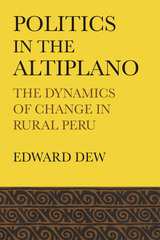 Politics in the Altiplano: The Dynamics of Change in Rural Peru
By Edward Dew
University of Texas Press, 1969 The department of Puno in southern Peru is an area oriented to livestock and agricultural production, peopled by an Indian peasant mass and a dominant minority of culturally Westernized mestizos. A small but growing hybrid group, the cholos, bridged the cultural gap and collaborated with dissident merchant elements within the mestizo group to challenge the economic, social, and political order of the altiplano (high plateau) system. Politics in the Altiplano analyzes the sources of conflict and political change in the plural society as it underwent socioeconomic development through a period of recurring natural disasters. In the period under study (1956–1966), a prolonged drought precipitated a series of crises. The mismanagement of American aid, sent to the suffering peasants, became a national cause célèbre. As migration to Peru’s coastal cities reached large-scale proportions, several peasant movements were launched in the department. To rechannel local discontent, an autonomous development corporation was created for Puno by the Peruvian Congress. This, plus the institution of local elections in 1963, provided ample opportunity for the coalition of dissident mestizos, cholos, and peasants to pursue their “revolutionary” goals. A rivalry between two major towns, Puno (the department’s capital) and Juliaca (the commercial center), furthered the conflict between conservative mestizos and the peasant-cholo movement. Juliaca’s attempt to secede from the department in November 1965 set off a series of violent strikes and counterstrikes in both cities. Intervention from the national level by government troops put an end to the crisis for the time being. But the continued need for land reform in the department, combined with institutionalized means for political participation, kept the peasants mobilized and the atmosphere of conflict alive.
Politics In The Andes: Identity, Conflict, Reform
Jo-Marie Burt
University of Pittsburgh Press, 2004
The Andean region is perhaps the most violent and politically unstable in the Western Hemisphere. Politics in the Andes is the first comprehensive volume to assess the persistent political challenges facing Bolivia, Colombia, Ecuador, Peru, and Venezuela.
Arguing that Andean states and societies have been shaped by common historical forces, the contributors' comparative approach reveals how different countries have responded variously to the challenges and opportunities presented by those forces. Individual chapters are structured around themes of ethnic, regional, and gender diversity; violence and drug trafficking; and political change and democracy.
Politics in the Andes offers a contemporary view of a region in crisis, providing the necessary context to link the often sensational news from the area to broader historical, political, economic, and social trends.
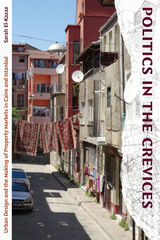 Politics in the Crevices: Urban Design and the Making of Property Markets in Cairo and Istanbul
Sarah El-Kazaz
Duke University Press, 2023 In Politics in the Crevices, Sarah El-Kazaz takes readers into the world of urban planning and design practices in Istanbul and Cairo. In this transnational ethnography of neighborhoods undergoing contested rapid transformations, she reveals how the battle for housing has shifted away from traditional political arenas onto private crevices of the city. She outlines how multiple actors—from highly capitalized international NGOs and corporations to city dwellers, bureaucrats, and planning experts—use careful urban design to empower conflicting agendas, whether manipulating property markets to protect affordable housing or corner luxury real estate. El-Kazaz shows that such contemporary politicizations of urban design stem from unresolved struggles at the heart of messy transitions from the welfare state to neoliberalism, which have shifted the politics of redistribution from contested political arenas to design practices operating within market logics, ultimately relocating political struggles onto the city’s most intimate crevices. In so doing, she raises critical questions about the role of market reforms in redistributing resources and challenges readers to rethink neoliberalism and the fundamental ways it shapes cities and polities.
 Politics in the Parish: The Political Influence of Catholic Priests
Gregory Allen Smith
Georgetown University Press, 2008 For well over a century the Catholic Church has articulated clear positions on many issues of public concern, particularly economics, capital punishment, foreign affairs, sexual morality, and abortion. Yet the fact that some of the Church's positions do not mesh well with the platforms of either of the two major political parties in the U.S. may make it difficult for Americans to look to Catholic doctrine for political guidance. Scholars of religion and politics have long recognized the potential for clergy to play an important role in shaping the voting decisions and political attitudes of their congregations, yet these assumptions of political influence have gone largely untested and undemonstrated. Politics in the Parish is the first empirical examination of the role Catholic clergy play in shaping the political views of their congregations. Gregory Allen Smith draws from recent scholarship on political communication, and the comprehensive Notre Dame Study of Parish Life, as well as case studies he conducted in nine parishes in the mid-Atlantic region, to investigate the extent to which and the circumstances under which Catholic priests are influential in shaping the politics of their parishioners. Smith is able to verify that clergy do exercise political influence, but he makes clear that such influence is likely to be nuanced, limited in magnitude, and exercised indirectly by shaping parishioner religious attitudes that in turn affect political behavior. He shows that the messages that priests deliver vary widely, even radically, from parish to parish and priest to priest. Consequently, he warns that scholars should exercise caution when making any global assumptions about the political influence that Catholic clergy affect upon their congregations.
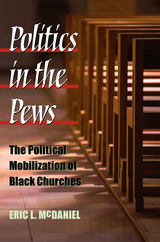 Politics in the Pews: The Political Mobilization of Black Churches
Eric L. McDaniel
University of Michigan Press, 2008 "Politics in the Pews probes the internal dynamics of political decision making within the Black church."
---William E. Nelson, Jr., Research Professor, Department of African American and African Studies, Ohio State University As Eric McDaniel demonstrates in his study of Black congregations in the U.S., a church's activism results from complex negotiations between the pastor and the congregation. The church's traditions, its institutional organization, and its cultural traditions influence the choice to make politics part of the church's mission. The needs of the local community and opportunities to vote, lobby, campaign, or protest are also significant factors. By probing the dynamics of churches as social groups, McDaniel opens new perspectives on civil rights history and the evangelical politics of the twenty-first century. Politics in the Pews contributes to a clearer understanding of the forces that motivate any organization, religious or otherwise, to engage in politics. Eric L. McDaniel is Assistant Professor in the Department of Government at the University of Texas at Austin.
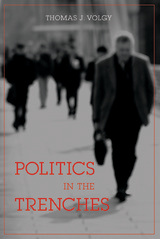 Politics in the Trenches: Citizens, Politicians, and the Fate of Democracy
Thomas J. Volgy
University of Arizona Press, 2001 Ask most Americans what they think of politics and you'll likely get an earful. With suspicion and distrust of public servants running high, many citizens seem dispirited by the very process that has made the United States a showcase for democracy.
Now ask Tom Volgy. This former mayor of a major western city, who is also a political scientist, contends that most elected officials are the very opposite of what the public thinks: honest, hardworking people whose real work goes unnoticed by most of their constituents and the media.
Volgy has interviewed more than 300 elected officials—mayors, city council members, legislators—from all over the United States to offer a decidedly contrarian view of politics. He explores the lives and working conditions of elected officials at the local level— the area of democracy closest to the public— to show that officeholders are for the most part average citizens, not the slick lawyers or political pros we usually imagine them to be. Most are motivated by a sense of civic duty, and they often work for token salaries, yet once elected they give up their personal lives and fall prey to every conceivable brickbat of public and media outrage.
In Politics in the Trenches, Volgy shows what really happens behind the scenes of government. He contrasts perception with reality regarding the rewards and perks of office. He examines the process of experimentation in the political laboratory and shows how the news media distort it. He provides a case study of homelessness to illustrate the system's constraints and limitations. And he offers a chapter on a typical week in office that will be an eye-opener for most readers.
Although admittedly there are many flaws in the democratic political process, observes Volgy, all are correctable as long as citizens believe in the essential worth of the system itself. His book offers a fresh perspective on democratic governance and tackles tough issues such as campaign finance reform, urging citizens to understand the process before they condemn its players out of hand. More than that, this is a call to action, warning us that we could lose true democracy if we don't get involved.
Politics in the United Nations System
Lawrence S. Finkelstein, ed.
Duke University Press, 1988 Politics in the United Nations reflects the predominant discord and occasional convergence among the members of the UN system as they view the international problems of our times through lenses of their geographic, historical, ideological, religious, and ethnic diversity. The contributors to this book describe how, since the United Nations was founded more than forty years ago, the UN system has changed to accommodate the varied interests of its members.
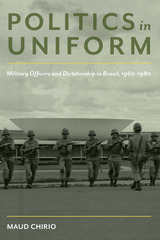 Politics in Uniform: Military Officers and Dictatorship in Brazil, 1960-80
Maud Chirio
University of Pittsburgh Press, 2018 Between 1964 and 1985, Brazil lived under the control of a repressive, anticommunist regime, where generals maintained all power. Respect for discipline and the absence of any and all political activity was demanded of lower-ranking officers, while their commanders ran the highest functions of state. Despite these circumstances, dozens of young captains, majors, and colonels believed that they too deserved to participate in the exercise of power. For two decades they carried on a clandestine political life that strongly influenced the regime's evolution. This book tells their story. It is history viewed from below, that pays attention to the origins of these actors, their career paths, their words, and their memories, as recounted not only in traditionally available material but also in numerous personal interviews and unpublished civilian and military archives. This behind-the-scenes political life presents a new perspective on the nature and the internal operations of the Brazilian dictatorial military state.
This book is a translation, with expanded material for English-language readers, of Maud Chirio's original Portuguese-language work, A política nos quartéis: Revoltas e protestos de oficiais na ditadura militar brasileira, which was awarded the Thomas E. Skidmore Prize by the Brazilian National Archives and Brazilian Studies Association.
 Politics in War: The Bases of Political Community in South Vietnam
Allan E. Goodman
Harvard University Press, 1973 "Internal war does not create politics or processes of government. This is likely to be the most tragic aspect of the war in Vietnam. When the guns are silent, the political analyst will find essentially the same political forces and governmental institutions intact as when the conflict began."
Politics in War deals mainly with the years 1967-1970 but bears on the problems South Vietnam faces now that American forces are no longer active. The book provides an understanding of Vietnamese politics, the forces underlying it, and the bases upon which political community and a future political settlement might be achieved.
Mr. Goodman has based his analysis on first-hand research. He conducted over 300 interviews with Vietnamese political leaders and government officials. His field work in South Vietnam encompassed three years and he presents materials from such sources as South Vietnam's National Assembly, its Ministry of Interior, and the U.S. Department of State's Vietnam Working Group.
Politics in War presents the untold story of how the Vietnamese saw the period of deepest American involvement. Goodman supplies background material on the Thieu government, its motivations, and its response to the people.
Students of politics who have been concerned about what the Vietnam involvement meant to America can now better assess what the last decade has meant to the Vietnamese.
 Politics is for People
Shirley Williams
Harvard University Press, 1981 If we are to enhance the quality of life, a bold new approach to politics is needed that takes into consideration the economic realities of the 1980s. Shirley Williams, a founder of the new British Social Democratic Party, former Labourite and government minister, outlines her blueprint for action in this forthright and intelligent book.
Traditional institutions in both capitalist and communist systems are cracking under the stresses of advanced industrialism, Williams contends. The sturdy structures once responsible for economic abundance, emergent class interests, and political responses are now in disrepair. Even the impressive postwar economic and social achievements are jeopardized by scarce energy and the unmet educational needs of high technology. Policymakers and citizens in the West can no longer assume that full employment, or a wide range of social services, or good industrial relations are achievable unless there is a quantum leap in our political thinking.
What Williams wants and is working toward is a government that is limited, accountable, and able to be superseded when it forfeits popular support. The welfare state, furthermore, needs to be reformed to allow for more participation. She calls for the devolution of power and decentralization in government, big business, and unions. In three sweeping proposals, she suggests a ten year plan to bring the welfare state into the future, a Marshall Plan to assist the Third World, and greater disarmament after a period of successful detente.
Williams' words ring with harsh truths and tangible needs. She challenges us with her own declaration of intent: "The old politics is dying. The battle to decide what the new politics will be like is just beginning. It is possible, just possible, that it will be a politics for people."
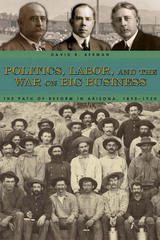 Politics, Labor, and the War on Big Business: The Path of Reform in Arizona, 1890-1920
David R. Berman
University Press of Colorado, 2012 Politics, Labor, and the War on Big Business details the rise, fall, and impact of the anticorporate reform effort in Arizona during the Progressive reform era, roughly 1890-1920. Drawing on previously unexamined archival files and building on research presented in his previous books, author David R. Berman offers a fresh look at Progressive heritage and the history of industrial relations during Arizona's formative period. In the 1890s, once-heavily courted corporations had become, in the eyes of many, outside "money interests" or "beasts" that exploited the wealth of the sparsely settled area. Arizona's anticorporate reformers condemned the giant corporations for mistreating workers, farmers, ranchers, and small-business people and for corrupting the political system. During a thirty-year struggle, Arizona reformers called for changes to ward off corporate control of the political system, increase corporate taxation and regulation, and protect and promote the interests of working people. Led by George W.P. Hunt and progressive Democrats, Arizona's brand of Progressivism was heavily influenced by organized labor, third parties, and Socialist activists. As highly powerful railroad and mining corporations retaliated, conflict took place on both political levels and industrial backgrounds, sometimes in violent form. Politics, Labor and the War on Big Business places Arizona's experience in the larger historical discussion of reform activity of the period, considering issues involving the role of government in the economy and the possibility of reform, topics highly relevant to current debates.
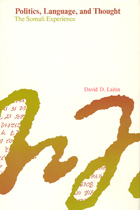 Politics, Language, and Thought: The Somali Experience
David D. Laitin
University of Chicago Press, 1977 When the Somali Republic received independence, its parliamentary government decided to adopt three official languages: English, Italian, and Arabic—all languages of foreign contact. Since the vast majority of the nation's citizens spoke a single language, Somali, which then had no written form, this decision made governing exceedingly difficult. Selecting any one language was equally problematic, however, because those who spoke the official language would automatically become the privileged class.
Twelve years after independence, a military government was able to settle the acrimonious controversy by announcing that Somali would be the official language and Latin the basic script. It was hoped that this choice would foster political equality and strengthen the national culture. Politics, Language, and Thought is an exploration of how language and politics interrelate in the Somali Republic. Using both historical and experimental evidence, David D. Laitin demonstrates that the choice of an official language may significantly affect the course of a country's political development.
Part I of Laitin's study is an attempt to explain why the parliamentary government was incapable of reaching agreement on a national script and to assess the social and political consequences of the years of nondecision. Laitin shows how the imposition of nonindigenous languages produced inequalities which eroded the country's natural social basis of democracy.
Part 2 attempts to relate language to political thought and political culture. Analyzing interviews and role-playing sessions among Somali bilingual students, Laitin demonstrates that the impact of certain political concepts is quite different when expressed in different languages. He concludes that the implications of choosing a language are far more complex than previously thought, because to change the language of a people is to change the ways they think and act politically.
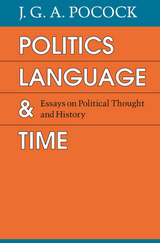 Politics, Language, and Time: Essays on Political Thought and History
J. G. A. Pocock
University of Chicago Press, 1989 In his first essay, "Languages and Their Implications," J. G. A. Pocock announces the emergence of the history of political thought as a discipline apart from political philosophy. Traditionally, "history" of political thought has meant a chronological ordering of intellectual systems without attention to political languages; but it is through the study of those languages and of their changes, Pocock claims, that political thought will at last be studied historically.
Pocock argues that the solution has already been approached by, first, the linguistic philosophers, with their emphasis on the importance of language study to understanding human thought, and, second, by Thomas Kuhn's The Structure of Scientific Revolutions, with its notion of controlling intellectual paradigms. Those paradigms within and through which the scientist organizes his intellectual enterprise may well be seen as analogous to the worlds of political discourse in which political problems are posed and political solutions are proffered. Using this notion of successive paradigms, Pocock demonstrates its effectiveness by analyzing a wide range of subjects, from ancient Chinese philosophy to Machiavelli, Hobbes, and Burke.
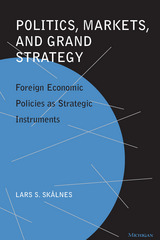 Politics, Markets, and Grand Strategy: Foreign Economic Policies as Strategic Instruments
Lars S. Skalnes
University of Michigan Press, 2000 Why do states sometimes discriminate in favor of certain states and at other times choose to pursue nondiscriminatory policies? In answering these questions, Lars S. Skålnes stresses the international political importance of foreign economic policy, arguing that trade, foreign investment, and foreign aid policies are strategic instruments great powers use to manage political and military relations with allies and adversaries.
Skålnes explains changes in foreign economic policy in terms of shifting strategic assessments regarding the importance of military support from allies. When states need military support from their allies to meet threats to their security, they will adopt discriminatory foreign economic policies in an attempt to strengthen alliance relations. When states can go it alone without military support, by contrast, they will not pursue foreign economic policies that discriminate in favor of either allies or other countries. Discriminatory policies, Skalnes argues, are important strategic instruments for several reasons. First, they can be used to tie countries to a military alliance. Second, they are useful as signals of intention. Third, discriminatory policies may strengthen an ally militarily by increasing the economic resources available for military purposes.
Skålnes provides detailed accounts of the grand strategies of Germany (1879-1914), France (1887-1914), Great Britain (1919-1939), and the United States (1945-1967).
Politics, Markets, and Grand Strategy will be important reading for scholars and students in the fields of national security studies, international political economy, and economic history, and to economists working on problems associated with foreign investment and trade generally and customs union theory and discriminatory trade agreements specifically.
Lars S. Skålnes is Associate Professor of Political Science, University of Oregon.
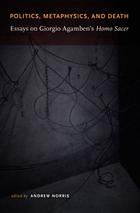 Politics, Metaphysics, and Death: Essays on Giorgio Agamben's Homo Sace
Andrew Norris, ed.
Duke University Press, 2005 The Italian philosopher Giorgio Agamben is having an increasingly significant impact on Anglo-American political theory. His most prominent intervention to date is the powerful reassessment of sovereignty and the politics of life and death laid out in his multivolume Homo Sacer project. Agamben argues that in both the modern world and the ancient, politics inevitably involves a sovereign decision that bans some individuals from the political and human communities. For Agamben, the Nazi concentration camps—in which some inmates are reduced to a form of living death—are not a political aberration but instead the place where this essential political decision about life most clearly reveals itself. Engaging specifically with Homo Sacer, the essays in this collection draw out and contend with the wide-ranging implications of Agamben’s radical and controversial interpretation of modern political life. The contributors analyze Agamben’s thought from the perspectives of political theory, philosophy, jurisprudence, and the history of law. They consider his work not only in relation to that of his major interlocutors—Hannah Arendt, Michel Foucault, Carl Schmitt, Walter Benjamin, and Martin Heidegger—but also in relation to the thought of Plato, Pindar, Heraclitus, Descartes, Kafka, Bataille, and Derrida. The essayists’ approaches are varied, as are their ultimate evaluations of the cogency and accuracy of Agamben’s arguments. This volume also includes an original essay by Agamben in which he considers the relation of Benjamin’s “Critique of Violence” to Schmitt’s Political Theology. Politics, Metaphysics, and Death is a necessary, multifaceted exposition and evaluation of the thought of one of today’s most important political theorists. Contributors: Giorgio Agamben, Andrew Benjamin, Peter Fitzpatrick, Anselm Haverkamp, Paul Hegarty, Andreas Kalyvas, Rainer Maria Kiesow , Catherine Mills, Andrew Norris, Adam Thurschwell, Erik Vogt, Thomas Carl Wall
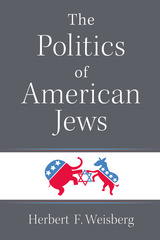 The Politics of American Jews
Herbert F. Weisberg
University of Michigan Press, 2019 Jewish voting is distinctive and paradoxical. Stereotypes about the voting habits of American Jews include that they vote at unusually high levels, that they’re liberal, that they vote for Democratic candidates without regard to their self-interest, and that Israel is their most important issue. Not only are all of those claims wrong, but they obscure aspects of Jews’ voting behavior that are much more interesting.
The Politics of American Jews uncovers new perspectives on Jews’ political choices by analyzing the unprecedented amount of survey data that is now available, including surveys that permit contrasting the voting of Jews with that of comparable non-Jews. The data suggest several mysteries about Jewish voting. While more Jews are Democrats than are liberals, there has not been a previous exploration of why more politically conservative Jews are not Republicans.
A fresh picture of Jews’ political behaviors shows that Jews are no longer politically monolithic. They vote on the basis of their self-interest and their values, but not all Jews share the same self-interest or the same values. While most Jews have incorporated being Democratic and liberal into their political DNA, growing divisions in their ranks suggest a mutation could occur.
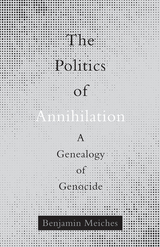 The Politics of Annihilation: A Genealogy of Genocide
Benjamin Meiches
University of Minnesota Press, 2019 How did a powerful concept in international justice evolve into an inequitable response to mass suffering? For a term coined just seventy-five years ago, genocide has become a remarkably potent idea. But has it transformed from a truly novel vision for international justice into a conservative, even inaccessible term? The Politics of Annihilation traces how the concept of genocide came to acquire such significance on the global political stage. In doing so, it reveals how the concept has been politically contested and refashioned over time. It explores how these shifts implicitly impact what forms of mass violence are considered genocide and what forms are not. Benjamin Meiches argues that the limited conception of genocide, often rigidly understood as mass killing rooted in ethno-religious identity, has created legal and political institutions that do not adequately respond to the diversity of mass violence. In his insistence on the concept’s complexity, he does not undermine the need for clear condemnations of such violence. But neither does he allow genocide to become a static or timeless notion. Meiches argues that the discourse on genocide has implicitly excluded many forms of violence from popular attention including cases ranging from contemporary Botswana and the Democratic Republic of Congo, to the legacies of colonial politics in Haiti, Canada, and elsewhere, to the effects of climate change on small island nations. By mapping the multiplicity of forces that entangle the concept in larger assemblages of power, The Politics of Annihilation gives us a new understanding of how the language of genocide impacts contemporary political life, especially as a means of protesting the social conditions that produce mass violence.
The Politics of Appalachian Rhetoric
Amanda E. Hayes
West Virginia University Press, 2018 In exploring the ways that Appalachian people speak and write, Amanda E. Hayes raises the importance of knowing and respecting communication styles within a marginalized culture. Diving deep into the region’s historical roots—especially those of the Scotch-Irish and their influence on her own Appalachian Ohio—Hayes reveals a rhetoric with its own unique logic, utility, and poetry. Hayes also considers the headwinds against Appalachian rhetoric, notably ideologies about poverty and the biases of the school system. She connects these to challenges that Appalachian students face in the classroom and pinpoints pedagogical and structural approaches for change. Throughout, Hayes blends conventional scholarship with autobiography, storytelling, and language, illustrating Appalachian rhetoric’s validity as a means of creating and sharing knowledge.
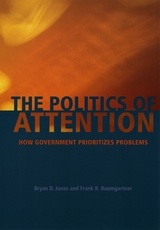 The Politics of Attention: How Government Prioritizes Problems
Bryan D. Jones and Frank R. Baumgartner
University of Chicago Press, 2005 On any given day, policymakers are required to address a multitude of problems and make decisions about a variety of issues, from the economy and education to health care and defense. This has been true for years, but until now no studies have been conducted on how politicians manage the flood of information from a wide range of sources. How do they interpret and respond to such inundation? Which issues do they pay attention to and why? Bryan D. Jones and Frank R. Baumgartner answer these questions on decision-making processes and prioritization in The Politics of Attention.
Analyzing fifty years of data, Jones and Baumgartner's book is the first study of American politics based on a new information-processing perspective. The authors bring together the allocation of attention and the operation of governing institutions into a single model that traces public policies, public and media attention to them, and governmental decisions across multiple institutions.
The Politics of Attention offers a groundbreaking approach to American politics based on the responses of policymakers to the flow of information. It asks how the system solves, or fails to solve, problems rather than looking to how individual preferences are realized through political action.
The Politics of Automobile Insurance Reform: Ideas, Institutions, and Public Policy in North America
Edward L. Lascher Jr.
Georgetown University Press, 1999 American state and Canadian provincial governments have dealt with rapidly rising auto insurance rates in different ways over the last two decades, a difference many attribute to variances in political pressure exerted by interest groups such as trial attorneys and insurance companies. Edward L. Lascher, Jr., argues that we must consider two additional factors: the importance of politicians’ beliefs about the potential success of various solutions and the role of governmental institutions. Using case studies from both sides of the border, Lascher shows how different explanations of the problem and different political structures affect insurance reform. In his conclusion, Lascher moves beyond auto insurance to draw implications for regulation and policymaking in other areas.
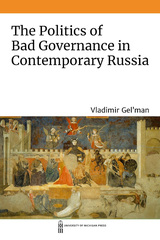 The Politics of Bad Governance in Contemporary Russia
Vladimir Gel'man
University of Michigan Press, 2022 In this book, Vladimir Gel’man considers bad governance as a distinctive politico-economic order that is based on a set of formal and informal rules, norms, and practices quite different from those of good governance. Some countries are governed badly intentionally because the political leaders of these countries establish and maintain rules, norms, and practices that serve their own self-interests. Gel’man considers bad governance as a primarily agency-driven rather than structure-induced phenomenon. He addresses the issue of causes and mechanisms of bad governance in Russia and beyond from a different scholarly optics, which is based on a more general rationale of state-building, political regime dynamics, and policy-making. He argues that although these days, bad governance is almost universally perceived as an anomaly, at least in developed countries, in fact human history is largely a history of ineffective and corrupt governments, while the rule of law and decent state regulatory quality are relatively recent matters of modern history, when they emerged as side effects of state-building. Indeed, the picture is quite the opposite: bad governance is the norm, while good governance is an exception. The problem is that most rulers, especially if their time horizons are short and the external constraints on their behavior are not especially binding, tend to govern their domains in a predatory way because of the prevalence of short-term over long-term incentives. Contemporary Russia may be considered as a prime example of this phenomenon. Using an analysis of case studies of political and policy changes in Russia after the Soviet collapse, Gel’man discusses the logic of building and maintaining the politico-economic order of bad governance in Russia and paths of its possible transformation in a theoretical and comparative perspective.
 The Politics of Beginning: The Origin of Private Authority in the Process of Translation
Alejandro Esguerra
University of Michigan Press, 2025 The Politics of Beginning traces the formation of the Forest Stewardship Council (FSC), now the most authoritative private organization for forestry certification. It starts with recounting the highly politicized forest politics of the late 1980s, when activists protested human rights abuses and deforestation while experimenting with sustainable forestry practices. The book then follows the people who became the founding members of the Forest Stewardship Council. By using live audio recordings of the FSC founding assembly in 1993, this book provides an in-depth analysis of a constitutional moment for private authority in world politics.
To explore how timber merchants, Indigenous communities, and social and environmental NGOs engaged in private institution-making, Alejandro Esguerra works with the concept of translation developed in Actor-Network Theory—a process in which knowledge about governance is continuously recontextualized—and introduces it to International Relations theory. He develops a dramaturgical methodology with metaphors of theatre such as stage, script, and performance. This methodology can be used to analyze the ways in which activists and others translate knowledge about governance and the practices of inclusion and exclusion that appear during this process. The environmental crisis requires a transformation in the ways societies value and govern human–nature relations, and The Politics of Beginning reveals the conditions under which even formerly antagonistic actors start developing a common political project.
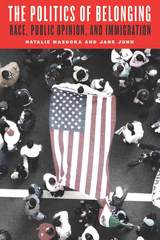 The Politics of Belonging: Race, Public Opinion, and Immigration
Natalie Masuoka and Jane Junn
University of Chicago Press, 2013 The United States is once again experiencing a major influx of immigrants. Questions about who should be admitted and what benefits should be afforded to new members of the polity are among the most divisive and controversial contemporary political issues.
Using an impressive array of evidence from national surveys, The Politics of Belonging illuminates patterns of public opinion on immigration and explains why Americans hold the attitudes they do. Rather than simply characterizing Americans as either nativist or nonnativist, this book argues that controversies over immigration policy are best understood as questions over political membership and belonging to the nation. The relationship between citizenship, race, and immigration drive the politics of belonging in the United States and represents a dynamism central to understanding patterns of contemporary public opinion on immigration policy. Beginning with a historical analysis, this book documents why this is the case by tracing the development of immigration and naturalization law, institutional practices, and the formation of the American racial hierarchy. Then, through a comparative analysis of public opinion among white, black, Latino, and Asian Americans, it identifies and tests the critical moderating role of racial categorization and group identity on variation in public opinion on immigration.
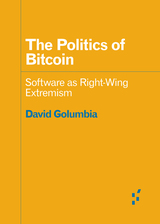 The Politics of Bitcoin: Software as Right-Wing Extremism
David Golumbia
University of Minnesota Press, 2016 Since its introduction in 2009, Bitcoin has been widely promoted as a digital currency that will revolutionize everything from online commerce to the nation-state. Yet supporters of Bitcoin and its blockchain technology subscribe to a form of cyberlibertarianism that depends to a surprising extent on far-right political thought. The Politics of Bitcoin exposes how much of the economic and political thought on which this cryptocurrency is based emerges from ideas that travel the gamut, from Milton Friedman, F.A. Hayek, and Ludwig von Mises to Federal Reserve conspiracy theorists. Forerunners: Ideas First is a thought-in-process series of breakthrough digital publications. Written between fresh ideas and finished books, Forerunners draws on scholarly work initiated in notable blogs, social media, conference plenaries, journal articles, and the synergy of academic exchange. This is gray literature publishing: where intense thinking, change, and speculation take place in scholarship.
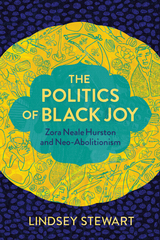 The Politics of Black Joy: Zora Neale Hurston and Neo-Abolitionism
Lindsey Stewart
Northwestern University Press, 2021 During the antebellum period, slave owners weaponized southern Black joy to argue for enslavement, propagating images of “happy darkies.” In contrast, abolitionists wielded sorrow by emphasizing racial oppression. Both arguments were so effective that a political uneasiness on the subject still lingers. In The Politics of Black Joy, Lindsey Stewart wades into these uncomfortable waters by analyzing Zora Neale Hurston’s uses of the concept of Black southern joy.
Stewart develops Hurston’s contributions to political theory and philosophy of race by introducing the politics of joy as a refusal of neo-abolitionism, a political tradition that reduces southern Black life to tragedy or social death. To develop the politics of joy, Stewart draws upon Zora Neale Hurston’s essays, Beyoncé’s Lemonade, and figures across several disciplines including Frederick Douglass, W. E. B. Du Bois, Toni Morrison, Angela Davis, Saidiya Hartman, Imani Perry, Eddie Glaude, and Audra Simpson. The politics of joy offers insights that are crucial for forming needed new paths in our current moment. For those interested in examining popular conceptions of Black political agency at the intersection of geography, gender, class, and Black spirituality, The Politics of Black Joy is essential reading.
 The Politics of Breast Cancer
Maureen Hogan Casamayou
Georgetown University Press, 2001 Between 1990 and 1993, breast cancer activism became a significant political movement. The issue began to receive extensive media attention, and federal funding for breast cancer research jumped dramatically. Describing the origins of this surge in interest, Maureen Hogan Casamayou attributes it to the emergence of politically potent activism among breast cancer survivors and their supporters. Exploring the creation and development of the National Breast Cancer Coalition (NBCC), she shows how many of its key leaders were mobilized by their own traumatic experiences with the disease and its treatments. Casamayou details the NBCC’s meteoric rise and impressive lobbying efforts, explaining how—in contrast to grassroots movements founded by dedicated individuals—the coalition grew from the simultaneous efforts of a network of women who invested their time, energy, money, and professional skills in the fight for increased funding for breast cancer research. This multiple leadership—or collective entrepreneurialism, says Casamayou—was crucial to the NBCC’s success framing the issue in the minds of the public and policymakers alike.
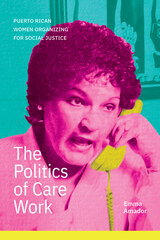 The Politics of Care Work: Puerto Rican Women Organizing for Social Justice
Emma Amador
Duke University Press, 2025 In The Politics of Care Work, Emma Amador tells the story of Puerto Rican women’s involvement in political activism for social and economic justice in Puerto Rico and the United States throughout the twentieth century. Amador focuses on the experiences and contributions of Puerto Rican social workers, care workers, and caregivers who fought for the compensation of reproductive labor in society and the establishment of social welfare programs. These activists believed conflicts over social reproduction and care work were themselves high-stakes class struggles for women, migrants, and people of color. In Puerto Rico, they organized for women’s rights, socialism, labor standards, and Puerto Rican independence. They continued this work in the United States by advocating for migrant rights, participating in the civil rights movement, and joining Puerto Rican-led social movements. Amador shows how their relentless efforts gradually shifted the field of social work toward social justice and community-centered activism. The profound and enduring impact of their efforts on Puerto Rican communities underscores the crucial role of Puerto Rican women’s caregiving labor and activism in building and sustaining migrant communities.
 The Politics of Change in Palestine: State-Building and Non-Violent Resistance
Michael Broning
Pluto Press, 2011 This book contradicts the dominant myth that incompetent, corrupt, and uncompromising Palestinian decision-makers are responsible for the lasting stalemate in the Middle-East Peace Process. It highlights recent political developments in Palestine that fundamentally redefine important parameters of the Israeli-Palestinian conflict.
Contrary to public perception, new political trends in the Palestinian Territories bolster prospects for the realisation of Palestinian national aspirations. Michael Bröning identifies key indicators which fundamentally question dominant Israeli narratives and pose an unprecedented strategic challenge to the Israeli leadership. These include the re-invention of Hamas, the reform of the Fatah movement, Palestinian Prime Minister Salam Fayyad’s state-building efforts and the surge of non-violent resistance against Israel.
This persuasive book forces us to reconsider the perceived wisdom that the Palestinians are powerless to influence events as they struggle for peace.
 The Politics of Collecting: Race and the Aestheticization of Property
Eunsong Kim
Duke University Press, 2024 In The Politics of Collecting, Eunsong Kim traces how racial capitalism and colonialism situated the rise of US museum collections and conceptual art forms. Investigating historical legal and property claims, she argues that regimes of expropriation—rather than merit or good taste—are responsible for popular ideas of formal innovation and artistic genius. In doing so, she details how Marcel Duchamp’s canonization has more to do with his patron’s donations to museums than it does the quality of Duchamp’s work, and she uncovers the racialized and financialized logic behind the Archive of New Poetry’s collecting practices. Ranging from the conception of philanthropy devised by the robber barons of the late nineteenth century to ongoing digitization projects, Kim provides a new history of contemporary art that accounts for the complicated entanglement of race, capital, and labor behind storied art institutions and artists. Drawing on history, theory, and economics, Kim challenges received notions of artistic success and talent and calls for a new vision of art beyond the cultural institution.
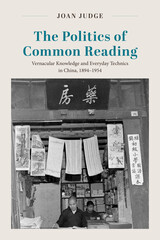 The Politics of Common Reading: Vernacular Knowledge and Everyday Technics in China, 1894–1954
Joan Judge
University of Chicago Press, 2025 Examines the transformation of vernacular knowledge during a pivotal period of modern Chinese history, 1894 to 1954.
What did common readers read in the midst of the revolutions that punctuated China’s long Republic (1894–1954)? How did they manage the often-unprecedented challenges of the era? What did they know and how did they know it?
In The Politics of Common Reading, Joan Judge traces the unfolding of a consequential politics of accommodation that engaged commoners as knowers rather than as an unenlightened mass. A response to the institutional failures of the era, this politics was enacted through an informal knowledge infrastructure comprised of low-budget publishers, rustic bookstalls, and a piecemeal national network. As yet unstudied, this infrastructure produced and circulated up to ten times the number of books as official, mainstream channels.
A corpus of some five hundred of these cheap collections of recipes and techniques serves as the basis for this book. Judge focuses on four challenges common readers faced: how to cure an opium addiction, avoid an electric shock, prevent a cholera infection, and graft a plant. She further draws on government, archival, periodical, and fiction materials in devising composites of individual common readers so that we can better know them: details of the crises they faced, the remedies they tried, and the knowledge they relied on as they concocted cures and applied technologies. She argues that the acts of conciliation and assemblage these readers engaged in shaped the broader epistemic terrain from which historical change was actualized in China’s century of revolution.
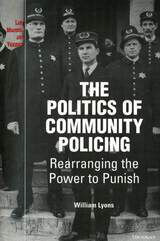 The Politics of Community Policing: Rearranging the Power to Punish
William Lyons
University of Michigan Press, 2002 In this in-depth examination of community policing in Seattle, William T. Lyons, Jr. explores the complex issues associated with the establishment and operation of community policing, an increasingly popular method for organizing law enforcement in this country.
Stories about community policing appeal to a nostalgic vision of traditional community life. Community policing carries with it the image of a safe community in which individual citizens and businesses are protected by police they know and who know them and their needs. However, it also carries an image of community based in partnerships that exclude the least advantaged, strengthen the police, and are limited to targeting those disorders feared by more powerful parts of the community and most amenable to intervention by professional law enforcement agencies.
The author argues that the politics of community policing are found in the construction of competing and deeply contested stories about community and the police in environments characterized by power inbalances. Community policing, according to the author, colonizes community life, increasing the capacity of the police department to shield itself from criticism, while manifesting the potential for more democratic forms of social control as evidenced by police attention to individual rights and to impartial law enforcement.
This book will be of interest to sociologists and political scientists interested in the study of community power and local politics as well as criminologists interested in the study of police.
William T. Lyons, Jr. is Assistant Professor of Political Science, University of Akron. He previously worked for the Seattle Police Department.
The Politics of Compassion and Transformation: And Transformation
Dick Simpson
Ohio University Press, 1989 In our time, we require a religion, ethics, and politics adequate to confront the global crises we face. In our scientific era of “progress,” we might expect to look with confidence to the “scientific” disciplines of political science, sociology, and economics to solve the problems of our civilization. We might also look to the older disciplines of religion and ethics to determine our values and to tell us what we ought to do. But the sad truth is that the dominant paradigms, methods, and conclusions of the social sciences and humanities are inadequate to this task. We need a new “politics of compassion and transformation.”
Politics of Contemporary European Cinema
Mike Wayne
Intellect Books, 1995 How does contemporary European Cinema reflect the drive for political and economic integration and recent trends in globalisation, if at all? This book is a valuable excursion into the politics of European cinema and extensively addresses questions like this.
Mike Wayne identifies some key themes pertinent to a study of the contemporary cultural and political dynamics of European cinema from the mid-1980's, including the fall of the Berlin wall and the end of the Soviet Empire.
Throughout the book, issues are raised that question European culture and the nature of national cinema, including;
• The cultural relationship with Hollywood;
• Debates over cultural plurality and diversity;
• The disintegration of nation states along the eastern flank;
• Postcolonial travels and the hybridisation of the national formation.
The Politics of Corporate Social Responsibility: The Rise of a Global Business Norm
Ursula Mühle
Campus Verlag, 2010 Bringing together the fields of sociology, political science, and management and organization studies, Ursula Mühle offers in this unique volume an authoritative overview of corporate social responsibility (CSR). Mühle first considers the origins of CSR during the 1970s, highlighting the various approaches to CSR and explaining its early shortcomings. She then turns to the United Nations Global Compact and the Global Reporting Initiative to investigate why, since the mid-1990s, CSR has been on the rise. Finally, Mühle employs several case studies as well as interviews with business executives and politicians to illustrate why businesses worldwide now view CSR as a key component to their success. The Politics of Corporate Social Responsibility will be welcomed by scholars and CSR practitioners alike.
The Politics of Corruption: Organized Crime in an American City
John A. Gardiner
Russell Sage Foundation, 1970 Discusses actual corrupt practices in one small city, showing both the mechanisms of corruption and the fundamental questions they raise, the answers to which will apply in many cities. He describes the background and conditions that made it possible for a local syndicate to take over an Eastern industrial center, "Wincanton." He discusses the many factors which permitted the take-over, stressing the citizens' lack of concern about links between petty gambling and the undermining of their local government.
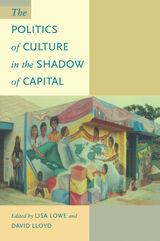 The Politics of Culture in the Shadow of Capital
Lisa Lowe and David Lloyd, eds.
Duke University Press, 1997 Global in scope, but refusing a familiar totalizing theoretical framework, the essays in The Politics of Culture in the Shadow of Capital demonstrate how localized and resistant social practices—including anticolonial and feminist struggles, peasant revolts, labor organizing, and various cultural movements—challenge contemporary capitalism as a highly differentiated mode of production. Reworking Marxist critique, these essays on Asia, Latin America, the Caribbean, North America, and Europe advance a new understanding of "cultural politics" within the context of transnational neocolonial capitalism. This perspective contributes to an overall critique of traditional approaches to modernity, development, and linear liberal narratives of culture, history, and democratic institutions. It also frames a set of alternative social practices that allows for connections to be made between feminist politics among immigrant women in Britain, women of color in the United States, and Muslim women in Iran, Egypt, Pakistan, and Canada; the work of subaltern studies in India, the Philippines, and Mexico; and antiracist social movements in North and South America, the Caribbean, and Europe. These connections displace modes of opposition traditionally defined in relation to the modern state and enable a rethinking of political practice in the era of global capitalism. Contributors. Tani E. Barlow, Nandi Bhatia, Dipesh Chakrabarty, Chungmoo Choi, Clara Connolly, Angela Davis, Arturo Escobar, Grant Farred, Homa Hoodfar, Reynaldo C. Ileto, George Lipsitz, David Lloyd, Lisa Lowe, Martin F. Manalansan IV, Aihwa Ong, Pragna Patel, José Rabasa, Maria Josefina Saldaña-Portillo, Jaqueline Urla
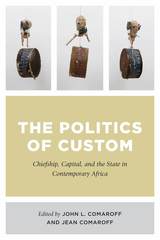 The Politics of Custom: Chiefship, Capital, and the State in Contemporary Africa
Edited by John L. Comaroff and Jean Comaroff
University of Chicago Press, 2018 How are we to explain the resurgence of customary chiefs in contemporary Africa? Rather than disappearing with the tide of modernity, as many expected, indigenous sovereigns are instead a rising force, often wielding substantial power and legitimacy despite major changes in the workings of the global political economy in the post–Cold War era—changes in which they are themselves deeply implicated.
This pathbreaking volume, edited by anthropologists John L. Comaroff and Jean Comaroff, explores the reasons behind the increasingly assertive politics of custom in many corners of Africa. Chiefs come in countless guises—from university professors through cosmopolitan businessmen to subsistence farmers–but, whatever else they do, they are a critical key to understanding the tenacious hold that “traditional” authority enjoys in the late modern world. Together the contributors explore this counterintuitive chapter in Africa’s history and, in so doing, place it within the broader world-making processes of the twenty-first century.
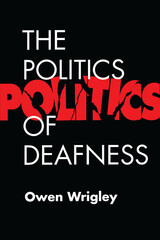 The Politics of Deafness
Owen Wrigley
Gallaudet University Press, 1997 The Politics of Deafness embarks upon a post-modern examination of the search for identity in deafness and its relationship to the prevalent hearing culture that has marginalized Deaf people. Author Owen Wrigley plainly states his intention to disrupt “normal” thought about the popularly considered condition of deafness as a physical deficiency. From his decade of experience working and living in the Deaf community in Thailand, he uses wide-ranging examples to go beyond disputing conventional theorists for their interpretation of deafness as the lack of a sensory function. By calling attention to the different lingual potential created by the instant visual expression of cyberspace, he explodes orthodox conceptualization of the nature of language as serially ordered and dependent upon sound.
In bold style, this provocative work poses the relationship of the bodies physical and mental of Deaf people as subject to a form of “colonialism” by the dominant Hearing culture. It proceeds to expose and attack presumptions and practices that derive from and descend upon deaf bodies. Related analysis also addresses tensions little noted in the current literature on deafness and on the popular move to reconstitute Deafness as a global culture.
Through displacement of logistical anchors, ironic stances, and disconcerting perspectives, The Politics of Deafness practices a form of de-naturalization to demand space within and between the normalizing frames of daily lives. By doing so, it offers an insightful and intriguing perspective on the meanings of Deafness, the politics of Deaf identity, and what it costs to be “unusual.”
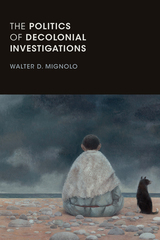 The Politics of Decolonial Investigations
Walter D. Mignolo
Duke University Press, 2021 In The Politics of Decolonial Investigations Walter D. Mignolo provides a sweeping examination of how coloniality has operated around the world in its myriad forms from the sixteenth century to the twenty-first. Decolonial border thinking allows Mignolo to outline how the combination of the self-fashioned narratives of Western civilization and the hegemony of Eurocentric thought served to eradicate all knowledges in non-European languages and praxes of living and being. Mignolo also traces the geopolitical origins of racialized and gendered classifications, modernity, globalization, and cosmopolitanism, placing them all within the framework of coloniality. Drawing on the work of theorists and decolonial practitioners from the Global South and the Global East, Mignolo shows how coloniality has provoked the emergence of decolonial politics initiated by delinking from all forms of Western knowledge and subjectivities. The urgent task, Mignolo stresses, is the epistemic reconstitution of categories of thought and praxes of living destituted in the very process of building Western civilization and the idea of modernity. The overcoming of the long-lasting hegemony of the West and its distorted legacies is already underway in all areas of human existence. Mignolo underscores the relevance of the politics of decolonial investigations, in and outside the academy, to liberate ourselves from canonized knowledge, ways of knowing, and praxes of living.
The Politics of Deconstruction: Jacques Derrida and the Other of Philosophy
Edited by Martin McQuillan
Pluto Press, 2007 Jacques Derrida has had a huge influence on contemporary political theory and political philosophy. Derrida's thinking has inspired Slavoj Zizek, Richard Rorty, Ernesto Laclau, Judith Butler and many more contemporary theorists. This book brings together a first class line up of Derrida scholars to develop a deconstructive approach to politics. Deconstruction examines the internal logic of any given text or discourse. It helps us analyze the contradictions inherent in all schools of thought,and as such it has proved revolutionaty in political analysis,particularly ideology critique. This book is ideal for all students of political theory,and anyone looking for an accessible guide to Derrida's thinking and how it can be used as a radical tool for political analysis.
Politics of Democratic Inclusion
Christina Wolbrecht
Temple University Press, 2005 The issue of political participation has been central to American politics since the founding of the United States. The Politics of Democratic Inclusion addresses the ways traditionally underrepresented groups have and have not achieved political incorporation, representation, and influence—or "democratic inclusion"—in American politics. Each chapter provides a "state of the discipline" essay that addresses the politics of diversity from a range of perspectives and in a variety of institutional arenas. Taken together, the essays in The Politics of Democratic Inclusion evaluate and advance our understanding of the ways in which the structure, processes, rules, and context of the American political order encourage, mediate, and hamper the representation and incorporation of traditionally disadvantaged groups.
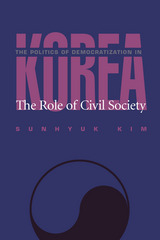 The Politics Of Democratization In Korea: The Role of Civil Society
Sunhyuk Kim
University of Pittsburgh Press, 2000
What role did civil society play in Korea's recent democratization? How does the Korean case compare with cases from other regions of the world? What is the current status of Korean democratic consolidation? What are the prospects for Korean democracy?
In December 1997, for the first time in the history of South Korea (hereafter Korea), an opposition candidate was elected to the presidency. Korea became the first new democracy in Asia where a horizontal transfer of power occurred through the electoral process. Sunhyuk Kim's study of democratization in Korea argues that the momentum for political change in Korea has consistently emanated from oppositional civil society rather than from the state. He develops a civil society paradigm and utilizes Korea’s three authoritarian breakdowns (only two of which resulted in democratic transitions) to illustrate the past and present influences of Korean civil society groups on authoritarian breakdowns, democratic transitions, and post-transition democratic consolidations.
One of the first systematic attempts to apply a civil society framework to a democratizing country in East Asia, The Politics of Democratization in Korea will be of use to political scientists and advanced undergraduate and graduate students working in comparative politics, political theory, East Asian politics, and the politics of democratization.
 The Politics of Denial: Israel and the Palestinian Refugee Problem
Nur Masalha
Pluto Press, 2003 The 1948 war ended in the expulsion of hundreds of thousands of Palestinians from their villages and homes. Israeli settlers moved in to occupy their land and the Palestinian refugees found themselves in refugee camps, or in neighbouring Arab countries. Today there are nearly four million Palestinian refugees -- and they want the right to go home. Their problem is the greatest and most enduring refugee problem in the world.
Since 1948 Israeli refugee policy has become a classic case of denial: the denial that Zionist "transfer committees" had operated between 1937 and 1948; denial of any wrong-doing or any historical injustice; denial of the "right of return"; denial of restitution of property and compensation; and indeed denial of any moral responsibility or culpability for the creation of the refugee problem.
The aim of this book is to analyze Israeli policies towards the Palestinian refugees as they evolved from the 1948 catastrophe (or nakba) to the present. It is the first volume to look in detail at Israeli law and policy surrounding the refugee question. Drawing on extensive primary sources and previously classified archive material, Masalha discusses the 1948 exodus; Israeli resettlement schemes since 1948; Israeli approaches to compensation and restitution of property; Israeli refugee policies towards the internally displaced (‘present absentees’); and Israeli refugee policies during the Madrid and Oslo negotiations.
Masalha asks what rights Palestinians possess under international law? How can a refugee population be compensated, and will they ever be able to return to their homes? Masalha questions the official Israeli position that the only solution to the problem is resettlement of the refugees in Arab states or elsewhere. This book is a valuable resource for anyone interested in the subject that lies at the heart of the ongoing conflict in the Middle East.
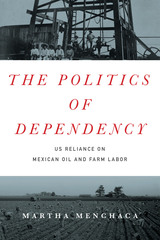 The Politics of Dependency: US Reliance on Mexican Oil and Farm Labor
By Martha Menchaca
University of Texas Press, 2016 The United States and Mexico trade many commodities, the most important of which are indispensable sources of energy—crude oil and agricultural labor. Mexican oil and workers provide cheap and reliable energy for the United States, while US petro dollars and agricultural jobs supply much-needed income for the Mexican economy. Mexico’s economic dependence on the United States is well-known, but The Politics of Dependency makes a compelling case that the United States is also economically dependent on Mexico. Expanding dependency theory beyond the traditional premise that weak countries are dominated by powerful ones, Martha Menchaca investigates how the United States and Mexico have developed an asymmetrical codependency that disproportionally benefits the United States. In particular, she analyzes how US foreign policy was designed to enable the US government to help shape the development of Mexico’s oil industry, as well as how migration from Mexico to the United States has been regulated by the US Congress to ensure that American farmers have sufficient labor. This unprecedented dual study of energy sectors that are usually examined in isolation reveals the extent to which the United States has become economically dependent on Mexico, even as it remains the dominant partner in the relationship. It also exposes the long-term effects of the agricultural policies of NAFTA, which led to the unemployment of millions of agricultural workers in Mexico, a large percentage of whom relocated to the United States.
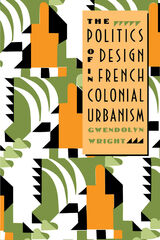 The Politics of Design in French Colonial Urbanism
Gwendolyn Wright
University of Chicago Press, 1991 Politics and culture are at once semi-autonomous and intertwined. Nowhere is this more revealingly illustrated than in urban design, a field that encompasses architecture and social life, traditions and modernization. Here aesthetic goals and political intentions meet, sometimes in collaboration, sometimes in conflict. Here the formal qualities of art confront the complexities of history. When urban design policies are implemented, they reveal underlying aesthetic, cultural, and political dilemmas with startling clarity.
Gwendolyn Wright focuses on three French colonies—Indochina, Morocco, and Madagascar—that were the most discussed, most often photographed, and most admired showpieces of the French empire in the early twentieth century. She explores how urban policy and design fit into the French colonial policy of "association," a strategy that accepted, even encouraged, cultural differences while it promoted modern urban improvements that would foster economic development for Western investors. Wright shows how these colonial cities evolved, tracing the distinctive nature of each locale under French imperialism. She also relates these cities to the larger category of French architecture and urbanism, showing how consistently the French tried to resolve certain stylistic and policy problems they faced at home and abroad.
With the advice of architects and sociologists, art historians and geographers, colonial administrators sought to exert greater control over such matters as family life and working conditions, industrial growth and cultural memory. The issues Wright confronts—the potent implications of traditional norms, cultural continuity, modernization, and radical urban experiments—still challenge us today.
Politics of Development: Perspectives on Twentieth-Century Asia
Robert Scalapino
Harvard University Press, 1989 The renowned political scientist Robert Scalapino traces the evolution of Asian countries in our century, seeking to determine the precise mix of culture, experience, scale, timing, leadership, and policy that shapes individual developing nations. Blending discussions of political, cultural, and economic events, Scalapino provides scenarios for the future that give grounds for hope but that also underscore the dangerous potential for racial conflict and religious fanaticism. General readers as well as students of Asia will find this book rich in wisdom and insight.
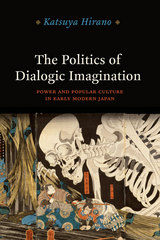 The Politics of Dialogic Imagination: Power and Popular Culture in Early Modern Japan
Katsuya Hirano
University of Chicago Press, 2013 In The Politics of Dialogic Imagination, Katsuya Hirano seeks to understand why, with its seemingly unrivaled power, the Tokugawa shogunate of early modern Japan tried so hard to regulate the ostensibly unimportant popular culture of Edo (present-day Tokyo)—including fashion, leisure activities, prints, and theater. He does so by examining the works of writers and artists who depicted and celebrated the culture of play and pleasure associated with Edo’s street entertainers, vagrants, actors, and prostitutes, whom Tokugawa authorities condemned to be detrimental to public mores, social order, and political economy.
Hirano uncovers a logic of politics within Edo’s cultural works that was extremely potent in exposing contradictions between the formal structure of the Tokugawa world and its rapidly changing realities. He goes on to look at the effects of this logic, examining policies enacted during the next era—the Meiji period—that mark a drastic reconfiguration of power and a new politics toward ordinary people under modernizing Japan. Deftly navigating Japan’s history and culture, The Politics of Dialogic Imaginationprovides a sophisticated account of a country in the process of radical transformation—and of the intensely creative culture that came out of it.
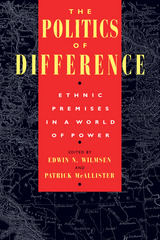 The Politics of Difference: Ethnic Premises in a World of Power
Edited by Edwin N. Wilmsen and Patrick McAllister
University of Chicago Press, 1996 According to most social scientists, the advent of a global media village and the rise of liberal democratic government would diminish ethnic and national identity as a source of political action. Yet the contemporary world is in the midst of an explosion of identity politics and often violent ethnonationalism.
This volume examines cases ranging from the well-publicized ethnonationalism of Bosnia and post-Apartheid South Africa to ethnic conflicts in Belgium and Sri Lanka. Distinguished international scholars including John Comaroff, Stanley J. Tambiah, and Ernesto Laclau argue that continued acceptance of imposed ethnic terms as the most appropriate vehicle for collective self-identification and social action legitimizes the conditions of inequality that give rise to them in the first place.
This ambitious attempt to explain the inadequacies of current approaches to power and ethnicity forges more realistic alternatives to the volatile realities of social difference.
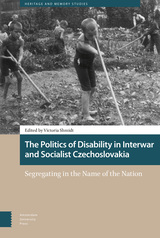 The Politics of Disability in Interwar and Socialist Czechoslovakia: Segregating in the Name of the Nation
Victoria Shmidt
Amsterdam University Press, 2019 By focusing on the politics of disability as a pillar of Czechoslovak identity, The Politics of Disability in Interwar and Socialist Czechoslovakia: Segregating in the Name of the Nation reflects upon the vicissitudes of nation building over the twentieth century that led to extreme forms of institutional violence against minorities, mainly the Roma, such as forced sterilization. The authors trace the intersectionality of ethnicity and disability, which proliferated across diverse realms of public life, positioning the continuities and ruptures of interrogating propaganda and racial science during the interwar and post-war periods as establishing and reinforcing the border between a healthy Czech majority and a disabled Roma minority. The book critically revises this border that remains observable but unapproachable until it operates as a part of constructing the authenticity of a nation.
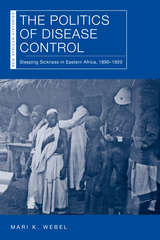 The Politics of Disease Control: Sleeping Sickness in Eastern Africa, 1890–1920
Mari K. Webel
Ohio University Press, 2019 A history of epidemic illness and political change, The Politics of Disease Control focuses on epidemics of sleeping sickness (human African trypanosomiasis) around Lake Victoria and Lake Tanganyika in the early twentieth century as well as the colonial public health programs designed to control them. Mari K. Webel prioritizes local histories of populations in the Great Lakes region to put the successes and failures of a widely used colonial public health intervention—the sleeping sickness camp—into dialogue with African strategies to mitigate illness and death in the past. Webel draws case studies from colonial Burundi, Tanzania, and Uganda to frame her arguments within a zone of vigorous mobility and exchange in eastern Africa, where African states engaged with the Belgian, British, and German empires. Situating sleeping sickness control within African intellectual worlds and political dynamics, The Politics of Disease Control connects responses to sleeping sickness with experiences of historical epidemics such as plague, cholera, and smallpox, demonstrating important continuities before and after colonial incursion. African strategies to mitigate disease, Webel shows, fundamentally shaped colonial disease prevention programs in a crucial moment of political and social change.
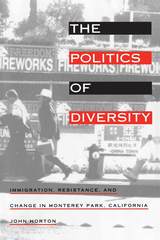 The Politics of Diversity: Immigration, Resistance, and Change in Monterey Park, California
John Horton
Temple University Press, 1995 Advertised in Asia as "The Chinese Beverly Hills," this small city minutes east of downtown Los Angeles, became by the late 1970s a regional springboard for a new type of Chinese immigration—suburban and middle class with a diversified and globally-oriented economy. Freed from the isolation of old Chinatowns, new immigrants now confronted resistance from more established Anglo, Asian American, and Latino neighbors, whose opposition took the form of interconnected "English Only" and slow-growth movements. In The Politics of Diversity, a multiethnic team of researches employ ethnography, interviewing, and exit polls to capture the process of change as newcomers and established residents come to terms with the meaning of diversity and identity in their everyday lives. The result is an engaging grass-roots account of immigration and change: the decline of the loyal old-boy Anglo network; the rise of women, minorities, and immigrants in the political scene; and a transformation of ethnic and American identities.
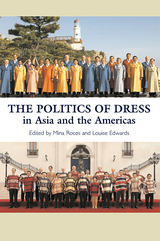 The Politics of Dress in Asia and the Americas: In Asia and the Americas
Edited by Mina Roces and Louise Edwards
Sussex Academic Press, 2022 This book explores the ways in which dress has been influential in the political agendas and self-representations of politicians in a variety of regimes, from democratic to authoritarian. Arguing that dress is part of 'hard core' politics, the book - now in paperback - shows how dress has been crucial to the constructions of nationhood and national identities in both Asia and the Americas. Since dress has been a marker of identity and status, chapters engage with the gendering of the politics of dress, discussing how women have become bearers and wearers of 'national tradition' and how men's and women's dress reflect their political positions in the nation-state. It examines the magical power of cloth, the meanings of batik and design, the holy status of uncut cloth vs. cut cloth, and the quaint combination of non-Western with Western attire. This collection of pioneering essays fills a vacuum in the largely Eurocentric field of dress studies, demanding that attention be paid to Asia and the Americas as major sites of vestimentary creativity.
 The Politics of Early Language Teaching: Hungarian in the Primary Schools of the Late Dual Monarchy
Ágoston Berecz
Central European University Press, 2014 Disseminating knowledge of the state language to the non-Magyar half of the citizenry was a policy priority of the government of the Hungarian Kingdom between the 1870s and the First World War. Drawing on a wide array of sources, The Politics of Early Language Teaching provides an in-depth look at how Hungarian was taught to ethnic Romanian and German children in the south-eastern tracts of the Habsburg Empire. The monograph covers the ever-harshening legislation from the period, reconsidering the role of state supervision and exploring the contemporary methodological debates as well as taking a closer look at classroom practices. Not only does the book throw much light in comparative mode on one of Europe s great early experiments in linguistic engineering; but it provides many new insights into Dualist Hungary s competing national ideologies and the limits of their efficacy on the ground.
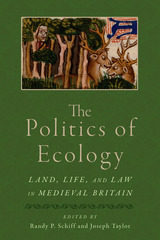 The Politics of Ecology: Land, Life, and Law in Medieval Britain
Edited by Randy P. Schiff and Joseph Taylor
Ohio State University Press, 2016 If medieval literary studies is, like so many fields, currently conditioned by an ecological turn that dislodges the human from its central place in materialist analysis, then why now focus on the law? Is not the law the most human, if not indeed the human, institution? In proposing that all life in medieval Britain, whether animal or vegetable, was subject to the same legal machine that enabled claims on land, are we not ignoring the ecocritical demand that we counteract human exceptionalism and reframe the past with inhuman eyes?
This volume, edited by Randy P. Schiff and Joseph Taylor, presents a diverse and stimulating group of interconnected essays that respond to these questions by infusing biopolitical material and theory into ecocentric studies of medieval life. The Politics of Ecology: Land, Life, and Law in Medieval Britain pursues the political power of sovereign law as it disciplines and manages various forms of natural life, and discloses the literary biopolitics played out in texts that work out the fraught interactions of life and law, in all its forms. Contributors to this volume explore such issues as legal networks and death, Arthurian bare life, Chaucerian medical biopolitics, the biopolitics of fur, ecologies of sainthood, arboreal political theology, conservation and political ecology, and geographical melancholy.
Bringing together both established and rising critical voices, The Politics of Ecology creates a place for cutting-edge medievalist ecocriticism focused on the intersections of land, life, and law in medieval English, French, and Latin literature.
 Politics of Emotion/Power of Affect
Edited by Susanne Witzgall and Marietta Kesting
Diaphanes, 2021 In the past decade the relevance of emotion and affect in societal dynamics and power relations has increasingly become the focus for scientists and artists. Across disciplines they are breaking down the opposition of cognition and feeling, and emphasizing the central meaning of emotions and affective atmospheres for personal judgement, decision-making and the realm of politics. The present publication can be seen as an enhancing contribution to these discourses. It particularly focusses on artistic positions, which are brought into dialogue with philosophical, gender-theoretical or neuro- and social-scientific approaches. It addresses the ambivalent political dimensions of anxiety, hope, and empathy, as well as the relationship between emotion and habit or the power of (media-)technical affective processes. The publication is the result of the sixth annual programme of the cx centre for interdisciplinary studies of the Academy of Fine Arts Munich.
With contributions by Marie-Luise Angerer, Ben Anderson, Jace Clayton, Keren Cytter, Antonio Damasio, Cécile B. Evans, Karianne Fogelberg, Deborah Gould, Susanna Hertrich, Serhat Karakayali, Marietta Kesting, Carolyn Pedwell, and Susanne Witzgall.
The Politics of Ethnicity
Michael Walzer, Edward T. Kantowicz, John Higham, and Mona Harrington
Harvard University Press, 1982 The monumental Harvard Encyclopedia of American Ethnic Groups is the most authoritative single source available on the history, culture, and distinctive characteristics of ethnic groups in the United States. The Dimensions of Ethnicity series is designed to make this landmark scholarship available to everyone in a series of handy paperbound student editions. Selections in this series will include outstanding articles that illuminate the social dynamics of a pluralistic nation or masterfully summarize the experience of key groups.
Written by the best-qualified scholars in each field, Dimensions of Ethnicity will reflect the complex interplay between assimilation and pluralism that is a central theme of the American experience.
The Politics of Ethnicity and the Crisis of the Peloponnesian League
Peter Funke
Harvard University Press, 2009 The crisis of Spartan power in the first half of the fourth century has been connected to Spartan inability to manage the hegemony built on the ruins of the Athenian Empire, or interpreted as a result of the unexpected annihilation of the Spartan army by the Boeotians at Leuktra. The present book offers a new perspective, suggesting that the crisis that finally brought down Sparta was in important ways a result of centrifugal impulses within the Peloponnesian League, accompanied by a general awakening of ethnicity in various areas of the Peloponnese.
A series of regional case studies is combined with thematic contributions focusing on topics such as the relationship of religious cults and ethnicity and of democracy and ethnicity, the use of archaeological evidence for ethnic phenomena, and comparative approaches based on social anthropology.
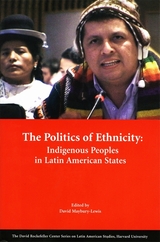 The Politics of Ethnicity: Indigenous Peoples in Latin American States
Edited by David Maybury-Lewis
Harvard University Press, 2002 The indigenous people of the hemisphere have resisted a five-hundred-year assault, fighting to maintain their cultural identities. During this time, authorities in the Americas have insisted that the toleration of indigenous societies and cultures would undermine their respective states. In recent years, however, the nations of the Americas have started to reverse themselves. They are altering their constitutions and proclaiming themselves multiethnic. Why is this happening now? The Politics of Ethnicity: Indigenous Peoples in Latin American States, edited by David Maybury-Lewis, helps us understand the reasons and history behind these times of transition.
The book provides a valuable overview of current problems facing indigenous peoples in their relation with national states in Latin America, from the highlands of Mexico to the jungles of Brazil. The traditional, sometimes centuries old, relations between states and indigenous peoples are now changing and being rediscussed. The collection, authored by U.S. and Latin American anthropologists using interdisciplinary approaches, enables the reader to understand these recent developments in a comparative framework. An ambitious and quite thorough collection, it is brought together skillfully by one of the discipline’s maître penseurs.
Politics Of Everyday Fear
Brian Massumi
University of Minnesota Press, 1993 The contemporary consumer is bombarded with fear-inducing images and information. This media shower of imagery is equaled only by the sheer quantity of fear-assuaging products offered for our consumption. The contributors address questions raised by the saturation of social space by capitalized fear.
The Politics of Evolution: Morphology, Medicine, and Reform in Radical London
Adrian Desmond
University of Chicago Press, 1990 Looking for the first time at the cut-price anatomy schools rather than genteel Oxbridge, Desmond winkles out pre-Darwinian evolutionary ideas in reform-minded and politically charged early nineteenth-century London. In the process, he reveals the underside of London intellectual and social life in the generation before Darwin as it has never been seen before.
"The Politics of Evolution is intellectual dynamite, and certainly one of the most important books in the history of science published during the past decade."—Jim Secord, Times Literary Supplement
"One of those rare books that not only stakes out new territory but demands a radical overhaul of conventional wisdom."—John Hedley Brooke, Times Higher Education Supplement
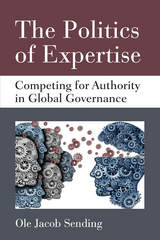 The Politics of Expertise: Competing for Authority in Global Governance
Ole Jacob Sending
University of Michigan Press, 2015 Experts dominate all facets of global governance, from accounting practices and antitrust regulations to human rights law and environmental conservation. In this study, Ole Jacob Sending encourages a critical interrogation of the role and power of experts by unveiling the politics of the ongoing competition for authority in global governance.
Drawing on insights from sociology, political science, and institutional theory, Sending challenges theories centered on particular actors’ authority, whether it is the authority of so-called epistemic communities, the moral authority of advocacy groups, or the rational-legal authority of international organizations. Using in-depth and historically oriented case studies of population and peacebuilding, he demonstrates that authority is not given nor located in any set of particular actors. Rather, continuous competition for recognition as an authority to determine what is to be governed, by whom, and for what purpose shapes global governance in fundamental ways.
Advancing a field-based approach, Sending highlights the political stakes disguised by the technical language of professionals and thus opens a broader public debate over the key issues of our time.
 The Politics of Fame
Burns, Eric
Rutgers University Press, 2019 Celebrities can come from many different realms: film, music, politics, sports. But what do all these major celebrities have in common? What elevates them to the status of household names while their equally talented peers remain in relative obscurity? Is it just a question of charisma, or does fame depend more on the collective fantasies of fans than the actual accomplishments of celebrities?
In search of answers, cultural historian Eric Burns delves deep into the biographies of some of the most famous figures in American history, from Benjamin Franklin to Fanny Kemble, Elvis Presley to Gene Tierney, and Michael Jordan to Oprah Winfrey. Through these case studies, he considers the evolution of celebrity throughout the ages. More controversially, he questions the very status of fame in the twenty-first century, an era in which thousands of minor celebrities have seen their fifteen minutes in the spotlight.
The Politics of Fame is a provocative and entertaining look at the lives and afterlives of America’s most beloved celebrities as well as the mad devotion they inspired. It raises important questions about what celebrity worship reveals about the worshippers—and about the state of the nation itself
 The Politics of Fantasy: Magic, Children's Literature, and Fandom in Putin's Russia
Eliot Borenstein
University of Wisconsin Press, 2025 What happened when J. K. Rowling’s mega-blockbuster—born in the United Kingdom and launched to global heights by Hollywood and the full force of Western marketing—came knocking on President Putin’s door? The arrival of boy wizard and international star Harry Potter in a recently neoliberal Russia was enormously influential, but neither smooth nor uncontested. The franchise quickly became a lens that focused Russian ambitions and fears during an era characterized by both the hegemony of globalized popular culture and a nationalized conservative backlash.
With crisp, engaging prose, Eliot Borenstein leaps from Harry Potter into an exploration of the culture wars and moral panics sparked in Russia by Western-inspired children’s literature, extending back into the Soviet period and through the invasion of Ukraine. As cultural products pitched ostensibly to children, the Harry Potter books and films became the perfect objects for criticism, translation, adaptation, parody, attack, mimicry, and meme-making, allowing Russians to carve out their own space in the worldwide market of magical multiverses.
 Politics of Feeling in Songs of the Dutch Revolutionary Period
Renée Vulto
Amsterdam University Press, 2024 Politics of Feeling in Songs of the Dutch Revolutionary Period sheds new light on the intertwined history of music and politics by exploring Dutch political songs. In the emotionally charged climate of the Dutch revolutionary period at the close of the eighteenth century, songs became a powerful medium, speaking directly to people’s bodies to engage them in political action. Emphasizing the performative nature of the songs and the interplay between imagination and embodied expression in singing practices, this book shows how beyond merely creating communities, the songs were also instrumental in mobilizing, imagining, and affirming these collectives. It uncovers the diverse roles of these songs, showing how they were used both to polarize and to unite, to mourn and to celebrate. They were employed to imagine and to embody togetherness throughout the Dutch revolutionary period, thereby creating a fixed repertoire of feelings on which various political regimes of that time relied.
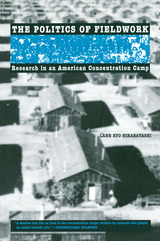 The Politics of Fieldwork: Research in an American Concentration Camp
Lane Ryo Hirabayashi
University of Arizona Press, 1999 During World War II, over thirty American anthropologists participated in empirical and applied research on more than 110,000 Japanese Americans subjected to mass removal and incarceration by the federal government. While that experience has been widely discussed, what has received little critical attention are the experiences of the Japanese and Japanese American field assistants who conducted extensive research within the camps. How did these field researchers carry out data collection in American-style concentration camps? What kinds of constraints and pressures did they face? How did they respond to practical, ethical, and political challenges?
In addressing these questions, author Lane Hirabayashi examines the case of the late Dr. Tamie Tsuchiyama. At the time an advanced doctoral student in anthropology, Tsuchiyama was hired in 1942 to conduct ethnographic fieldwork for the University of California at Berkeley's Japanese American Evacuation and Resettlement Study. Drawing from personal letters, ethnographic fieldnotes, reports, interviews, and other archival sources, The Politics of Fieldwork describes Tsuchiyama's experiences as a researcher at Poston, Arizona—a.k.a. the Colorado River Relocation Center. The book relates the daily life, fieldwork methodology, and politics of the residents and researchers at the Poston camp, as well as providing insight into the pressures that led to Tsuchiyama's ultimate resignation, in protest, from the JERS project in 1945.
Facilitating the critical analysis of Tsuchiyama's role in the JERS research are questions regarding the relationships between Japanese American research and the nature of "colonial science" that merit discussion in contemporary field research. A multidisciplinary synthesis of anthropological, historical, and ethnic studies perspectives, The Politics of Fieldwork is rich with lessons about the ethics and politics of ethnographic fieldwork.
The Politics of Fiscal Privilege in Provence, 1530s-1830s
Rafe Blaufarb
Catholic University of America Press, 2012 Rafe Blaufarb examines the interwoven problems of taxation and social privilege in this treatment of the contention over fiscal privilege between the seigneurial nobility and the tax-payers of Provence
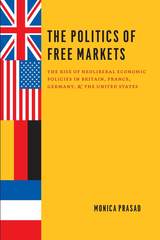 The Politics of Free Markets: The Rise of Neoliberal Economic Policies in Britain, France, Germany, and the United States
Monica Prasad
University of Chicago Press, 2006 The attempt to reduce the role of the state in the market through tax cuts, decreases in social spending, deregulation, and privatization—“neoliberalism”—took root in the United States under Ronald Reagan and in Britain under Margaret Thatcher. But why did neoliberal policies gain such prominence in these two countries and not in similarly industrialized Western countries such as France and Germany?
In The Politics of Free Markets, a comparative-historical analysis of the development of neoliberal policies in these four countries,Monica Prasad argues that neoliberalism was made possible in the United States and Britain not because the Left in these countries was too weak, but because it was in some respects too strong. At the time of the oil crisis in the 1970s, American and British tax policies were more punitive to business and the wealthy than the tax policies of France and West Germany; American and British industrial policies were more adversarial to business in key domains; and while the British welfare state was the most redistributive of the four, the French welfare state was the least redistributive. Prasad shows that these adversarial structures in the United States and Britain created opportunities for politicians to find and mobilize dissatisfaction with the status quo, while the more progrowth policies of France and West Germany prevented politicians of the Right from anchoring neoliberalism in electoral dissatisfaction.
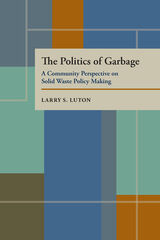 The Politics of Garbage: A Community Perspective on Solid Waste Policy Making
Larry S. Luton
University of Pittsburgh Press, 1996 Increased enviromental awareness, more demands on local governments, a newly invigorated citizen activism, and a decaying and overburdened infrastructure have made taking care of our garbage one of the major policy making challenges facing local communities. Luton uses the case study of Spokane WA to analyze the public administration and socio-political context of solid waste policy making. Luton’s thorough exploration of Spokane’s experience as opens a window onto contemporary issues of solid waste management as well as the complex social and political environment in which public administrators must operate. His integration of systems theory in the analysis adds to the book’s value as a teaching tool for courses on policy making, urban planning, public administration, and the environment. He examines the complex combination of ecological, political, social and relational dynamics that affect such policies, providing insight into inter-governmental public policy making.
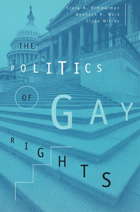 The Politics of Gay Rights
Edited by Craig A. Rimmerman, Kenneth D. Wald, and Clyde Wilcox
University of Chicago Press, 2000 Few issues in American politics inspire such passion as that of civil rights for gays and lesbians. In this group of original essays, scholars and activists writing from a number of different perspectives provide a comprehensive overview of this heated debate. Contributors thoroughly investigate the politics of the gay and lesbian movement, beginning with its political organizations and tactics. The essays also address the strategies and ideology of conservative opposition groups, such as the Christian Right. They focus on key issues for public policy, including gays and lesbians openly serving in the military, anti-discrimination laws, and the ongoing crisis of AIDS. The book ends with chapters that discuss the ways in which the political struggle for gay rights has played out in various arenas—in Congress, in the courts, in state and local governments, and in electoral politics.
Forcefully argued and accessibly written, this collection is an important contribution to the current discussion about civil rights for gays and lesbians.
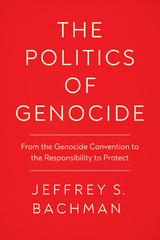 The Politics of Genocide: From the Genocide Convention to the Responsibility to Protect
Jeffrey S. Bachman
Rutgers University Press, 2022 Beginning with the negotiations that concluded with the unanimous adoption of the United Nations Convention on the Prevention and Punishment of the Crime of Genocide on December 9, 1948, and extending to the present day, the United States, Soviet Union/Russia, China, United Kingdom, and France have put forth great effort to ensure that they will not be implicated in the crime of genocide. If this were to fail, they have also ensured that holding any of them accountable for genocide will be practically impossible. By situating genocide prevention in a system of territorial jurisdiction; by excluding protection for political groups and acts constituting cultural genocide from the Genocide Convention; by controlling when genocide is meaningfully named at the Security Council; and by pointing the responsibility to protect in directions away from any of the P-5, they have achieved what can only be described as practical impunity for genocide. The Politics of Genocide is the first book to explicitly demonstrate how the permanent member nations have exploited the Genocide Convention to isolate themselves from the reach of the law, marking them as "outlaw states."
 The Politics of German Child Welfare from the Empire to the Federal Republic
Edward Dickinson
Harvard University Press, 1996 The model of the development of child welfare policy presented here illuminates the complexity of the struggles from which modern social policy emerged, and accounts for the ways in which similar policies could be adapted to changing political systems--monarchical, republican, or fascist. Following a period of policy innovation, rapid institutional expansion, and intensifying ideological conflict before the First World War, Dickinson shows, the period from 1918 to 1961 saw a succession of efforts to reconcile competing policy agendas within different political contexts: the corporatist-democratic compromise worked out in the early years of the Weimar Republic, which broke down in the economic and political crisis at the end of the 1920s; the disastrous Nazi synthesis of authoritarianism and racism; and a revitalized corporatist-democratic framework, stabilized on the basis of the antitotalitarian consensus and of psychotherapeutic theory and practice, after 1949.
Historians of modern Germany and of the welfare state will find this a challenging and illuminating approach to important theoretical and historical questions.
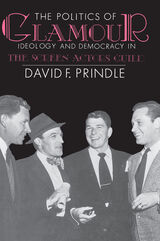 The Politics of Glamour: Ideology and Democracy in the Screen Actors Guild
David F. Prindle
University of Wisconsin Press, 1988 Rarely are the off-screen lives of actors examined for evidence of deep thinking or good citizenship. Still more rarely do the internal workings of labor unions attract public scrutiny. Nevertheless, as David Prindle shows in his examination of democracy in the Screen Actors Guild, this actors’ union has for over 50 years been an arena for idealistic, yet intense and hardboiled political maneuvering.
In The Politics of Glamour, readers become aware of the seriousness and political commitment displayed by people whom the general public has generally admired more for their artistic skills. After reading this account of politics among America’s screen royalty, no one could wonder about where Ronald Reagan, a former SAG president, received his political training.
Besides analyzing the politics of SAG, however, the author follows a good story wherever it leads. The reader can expect to learn something about the political economy of Hollywood and the American labor movement, the value of celebrity within the acting community, the impact of technological change, and even a bit of gossip.
|
|


